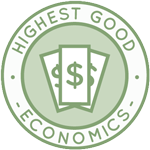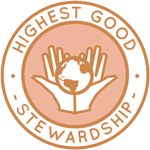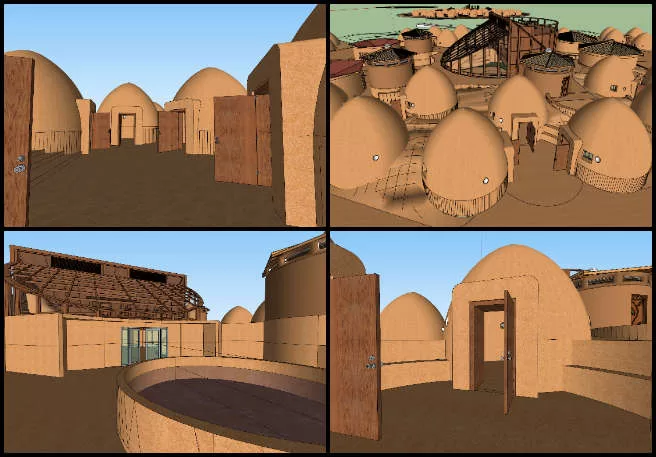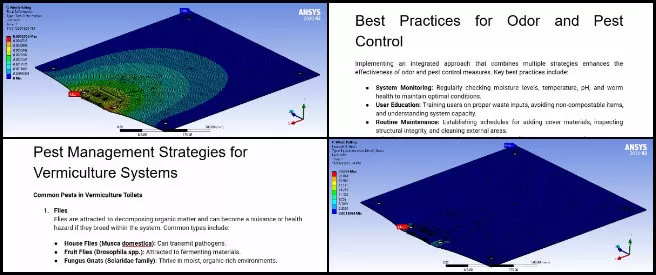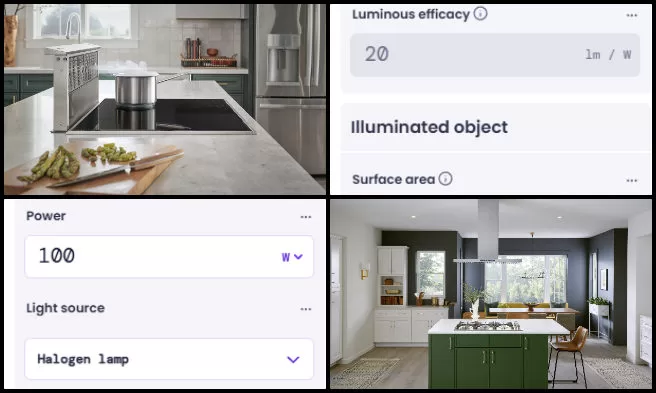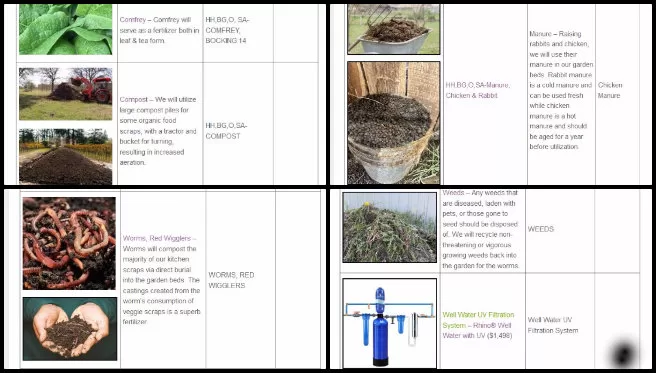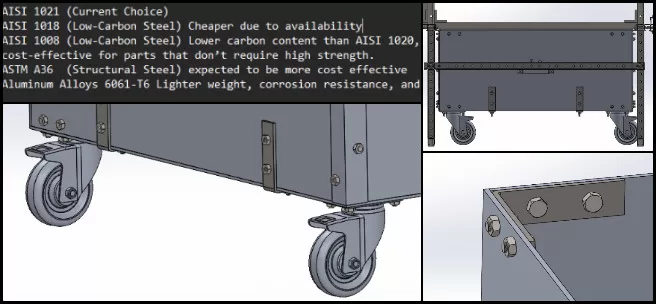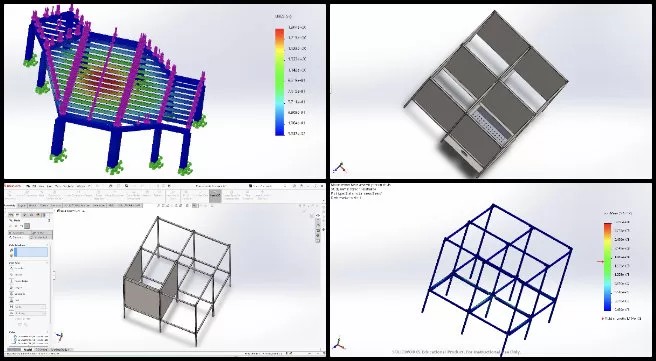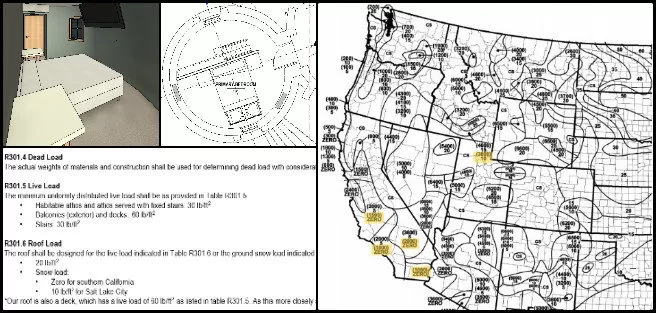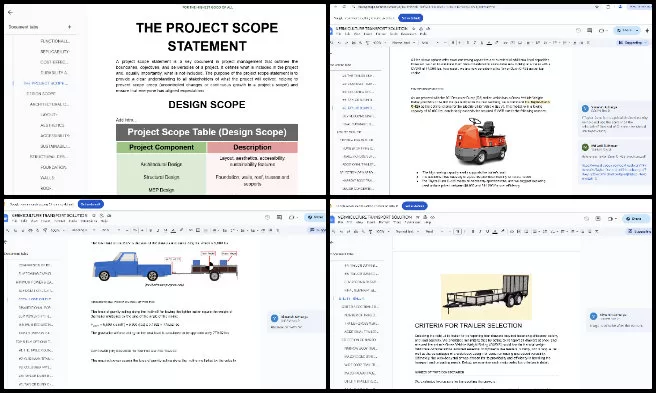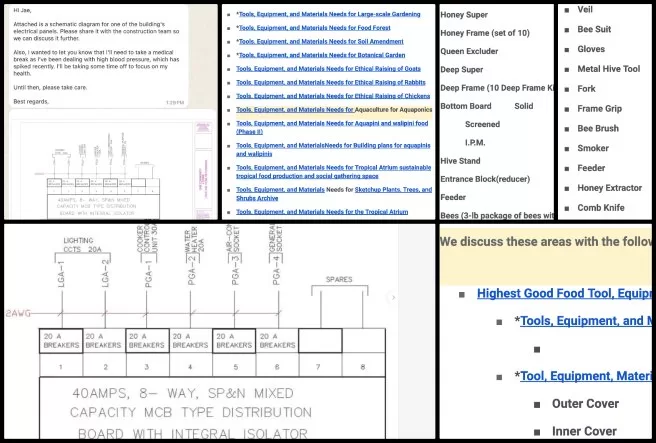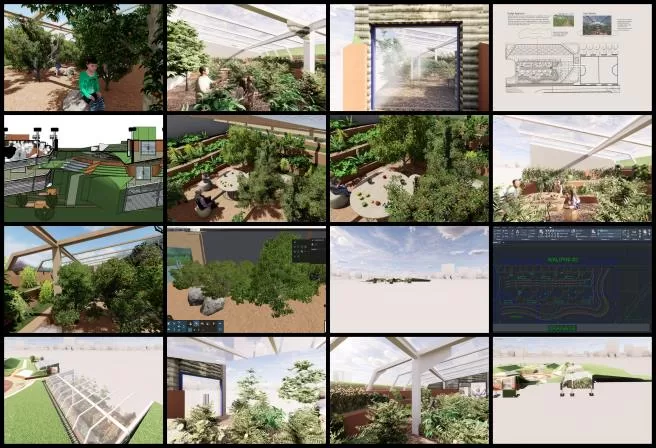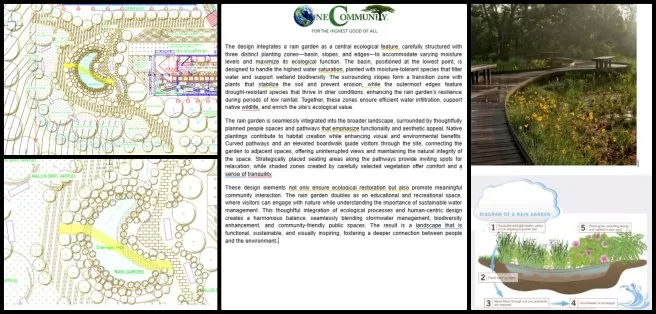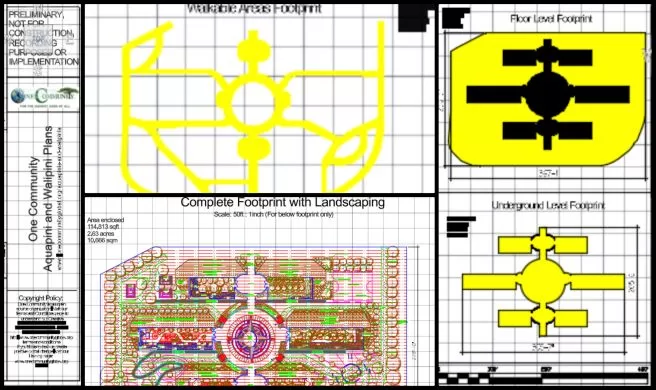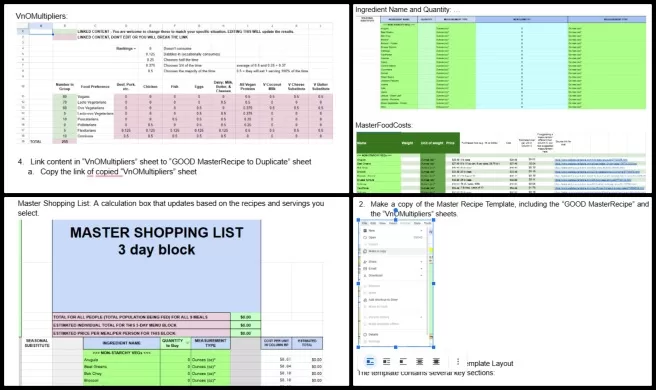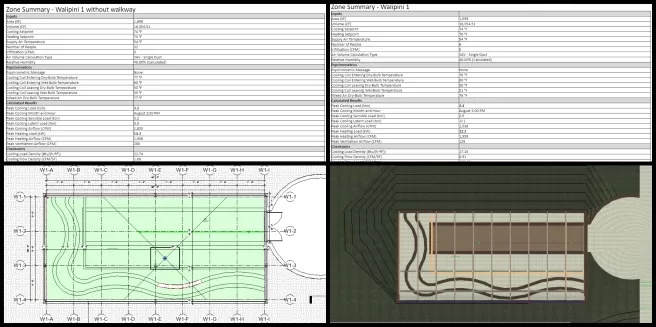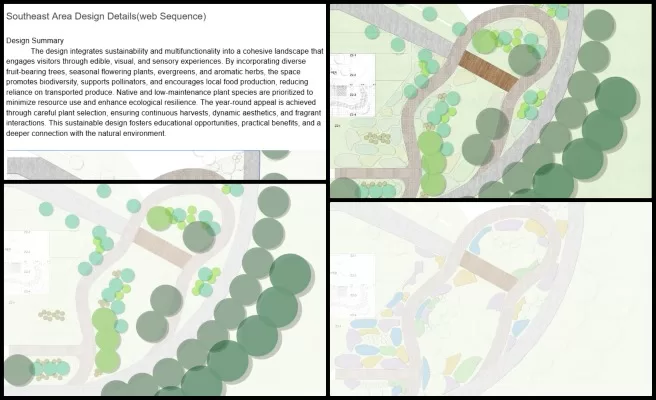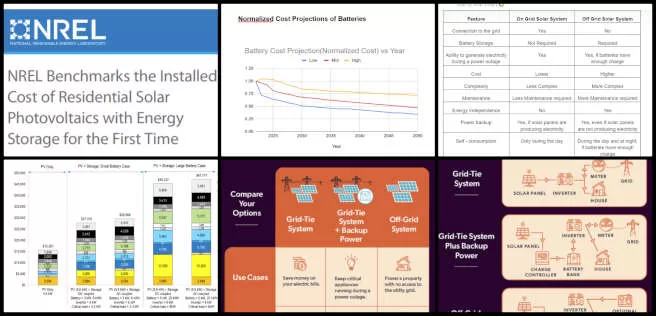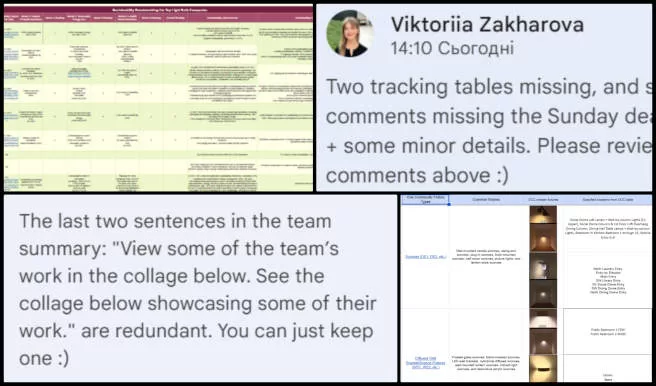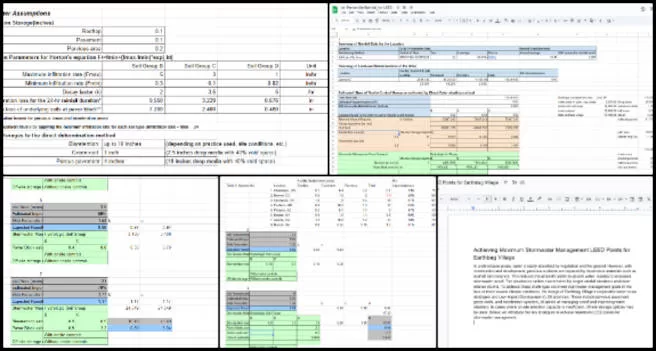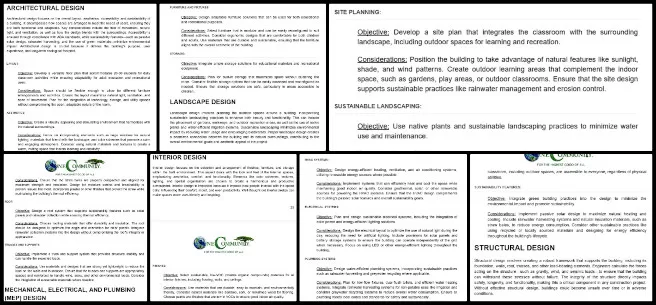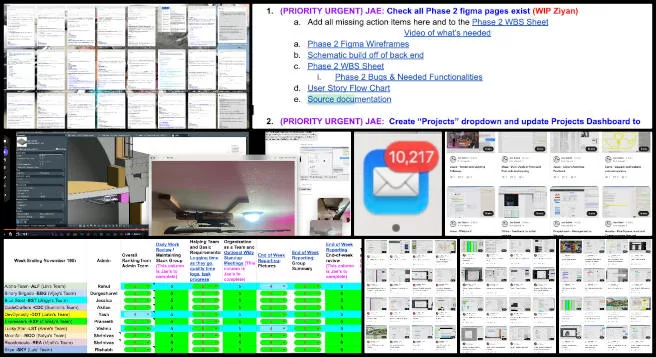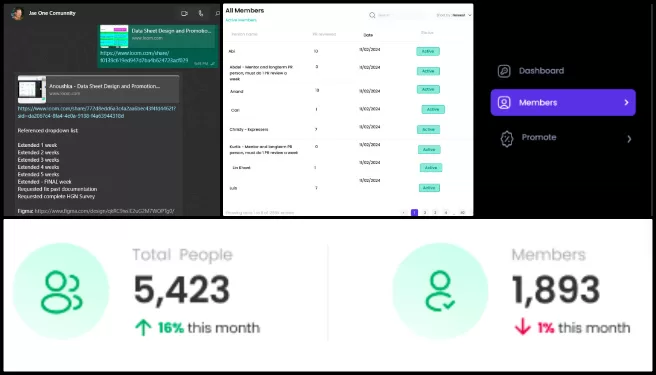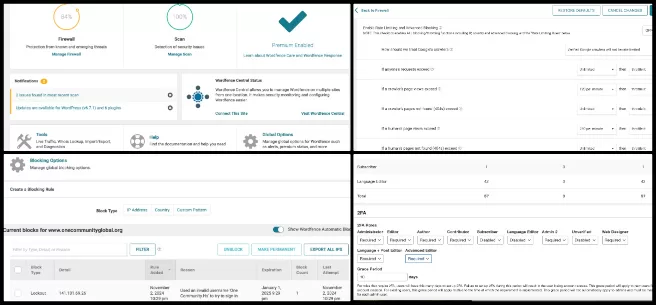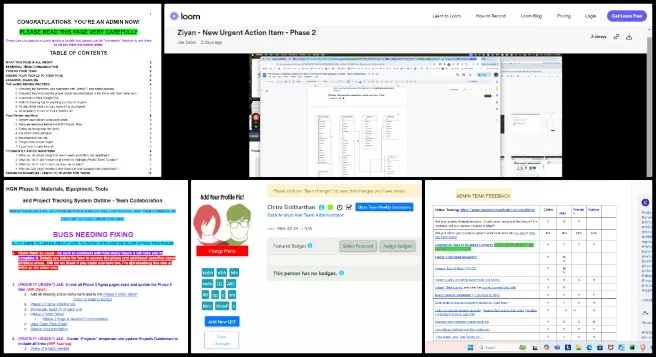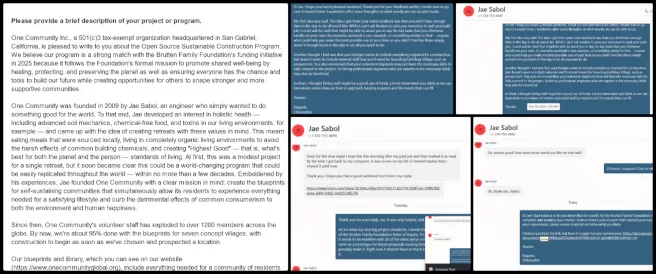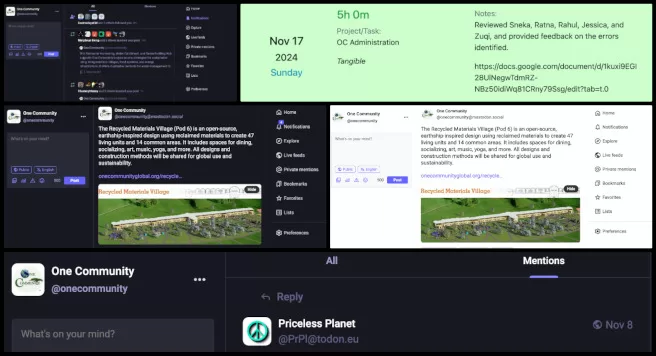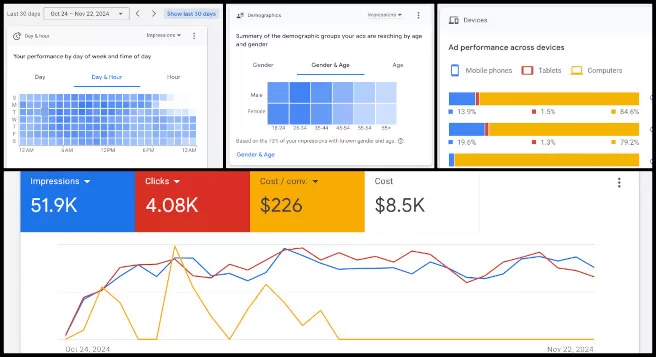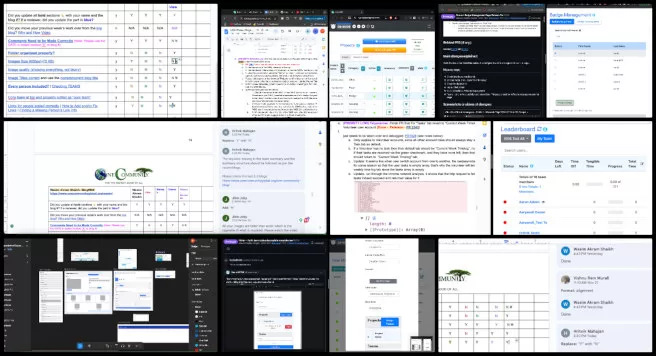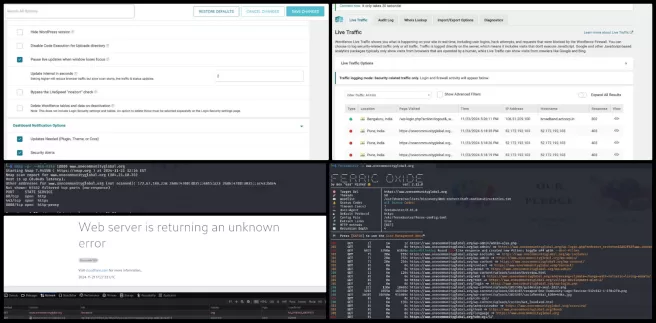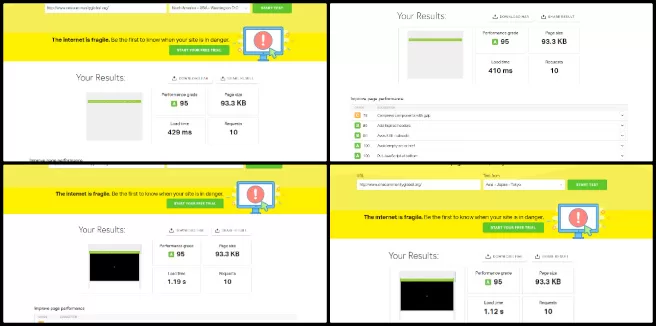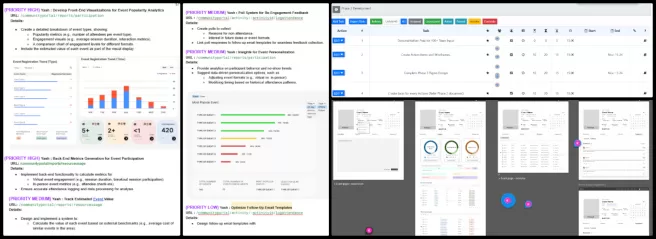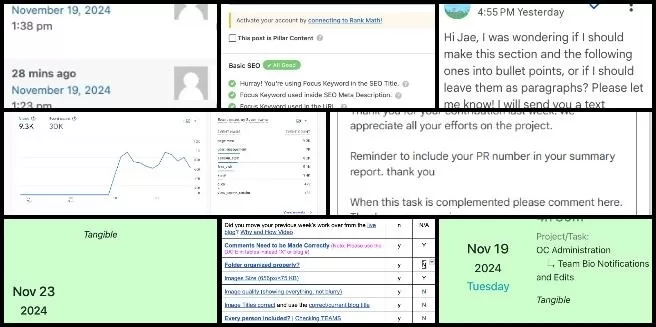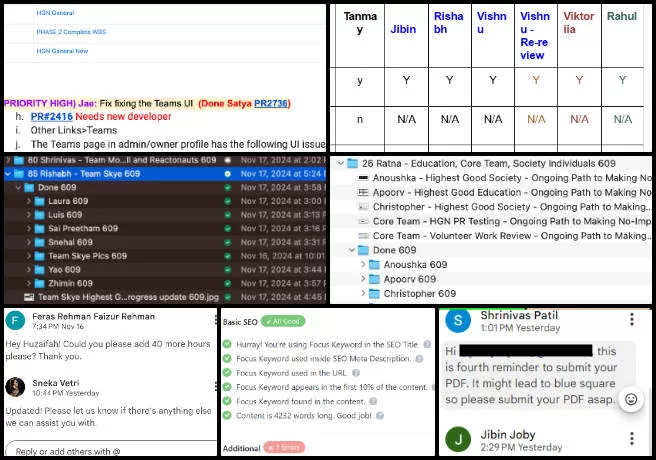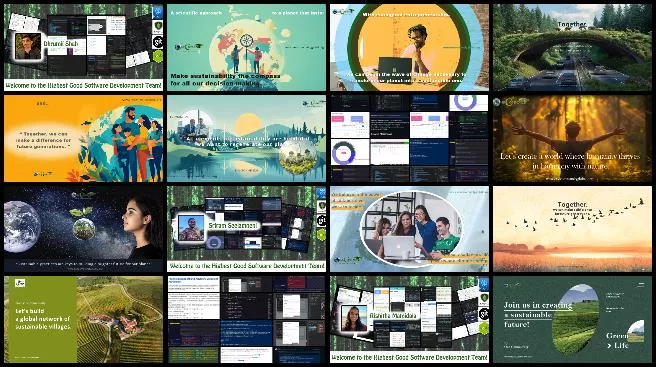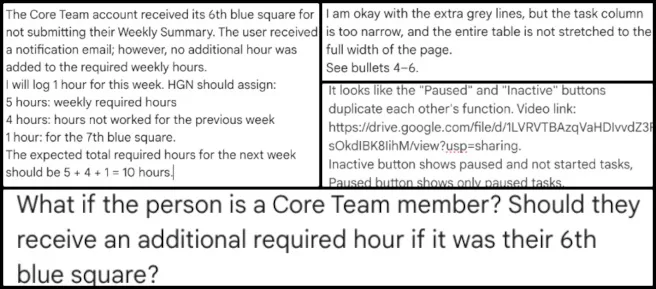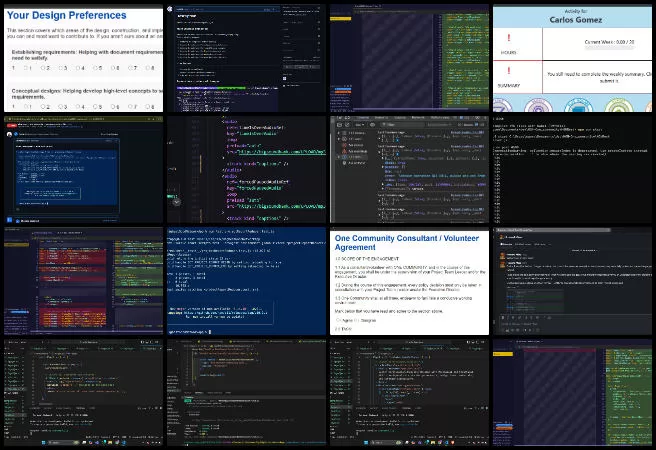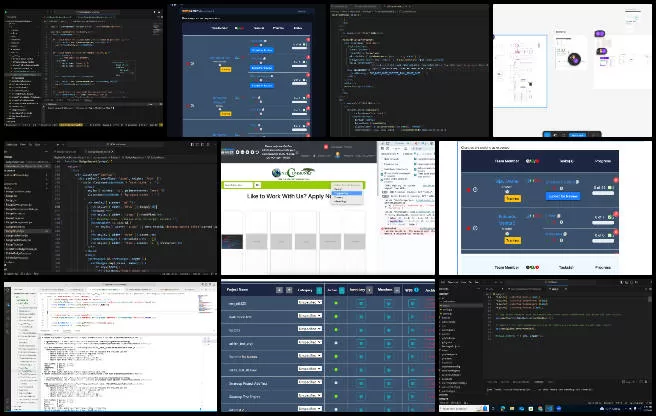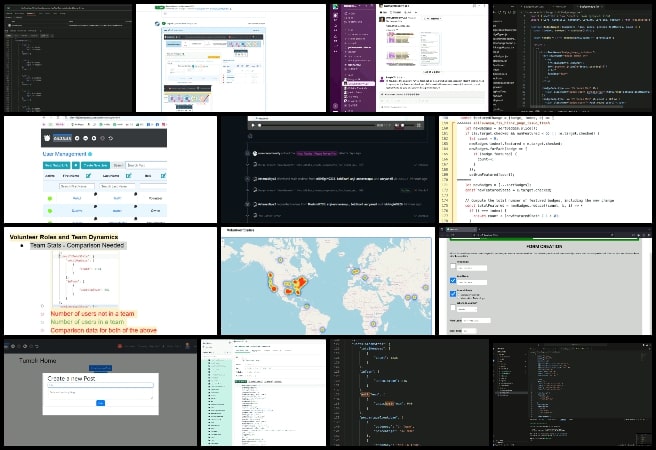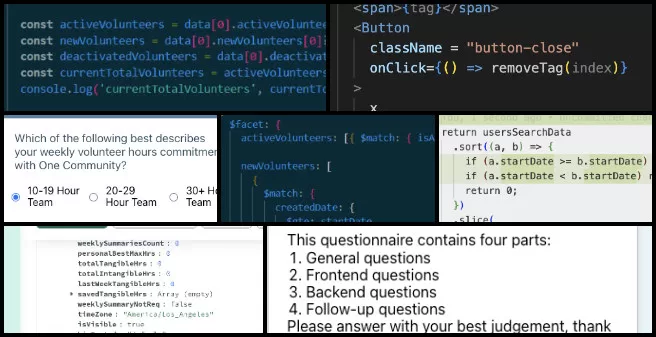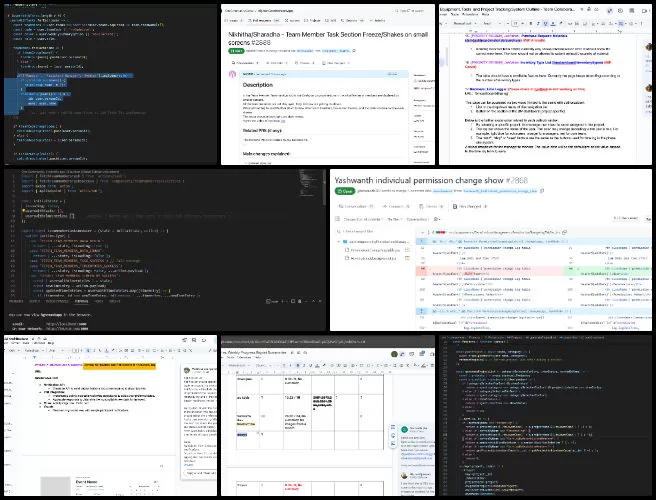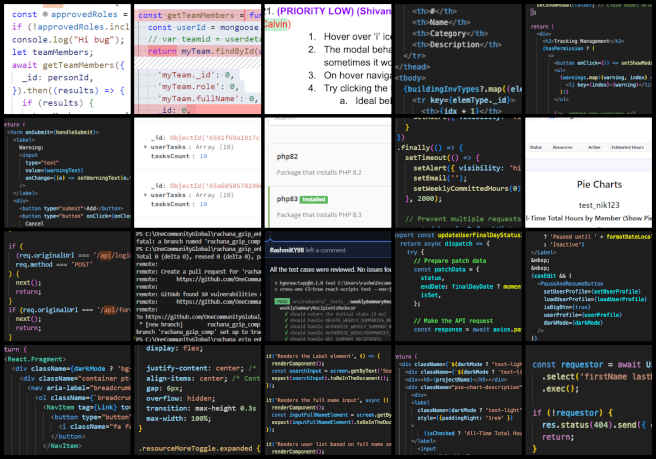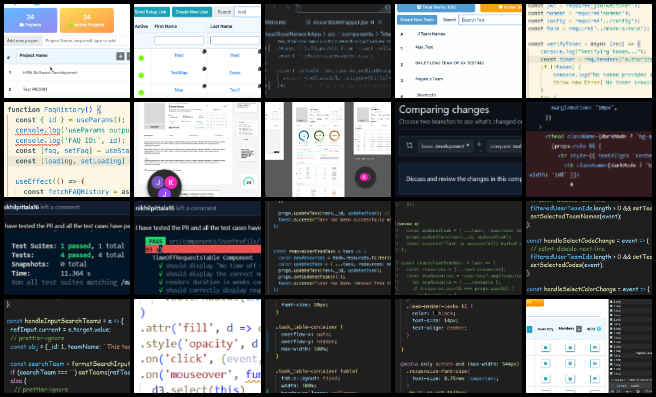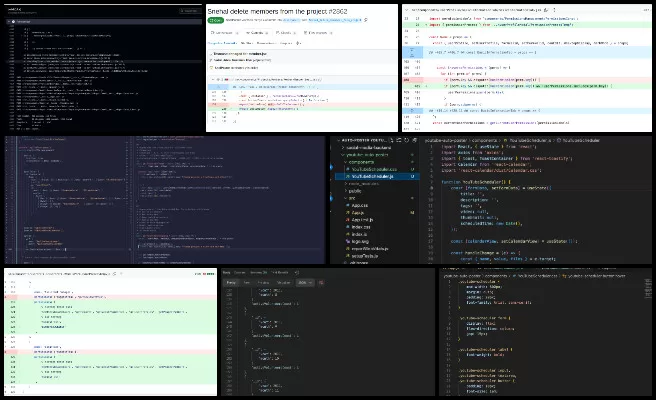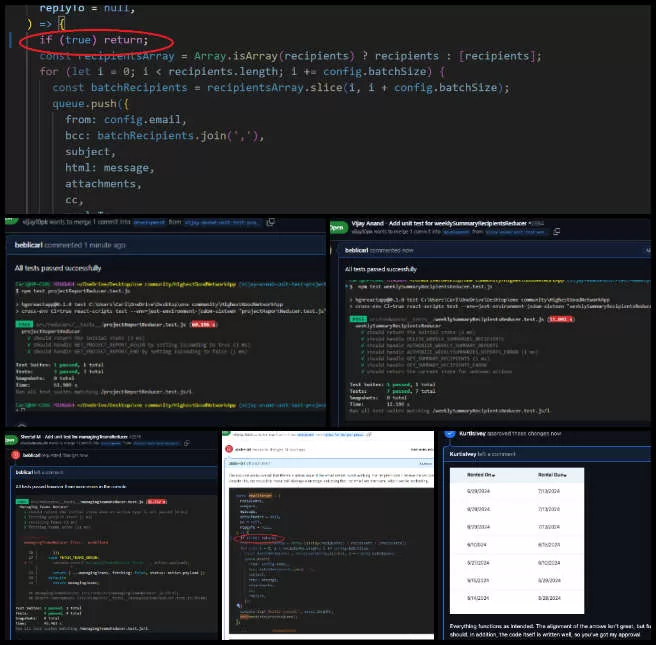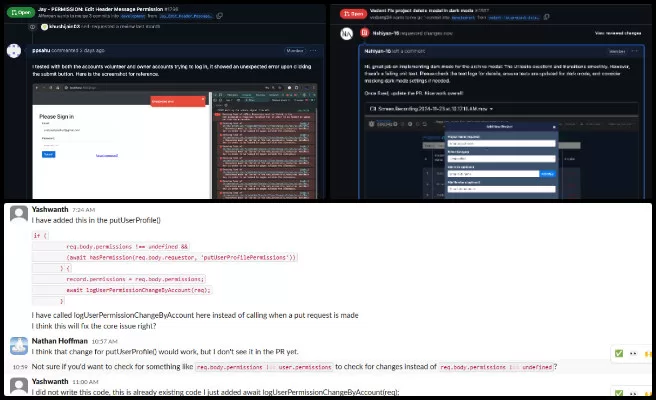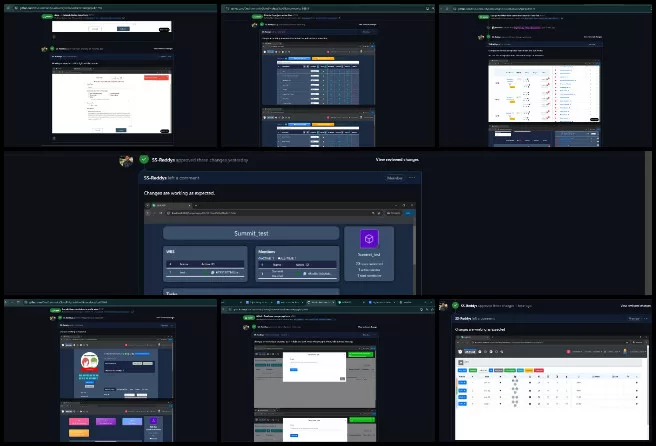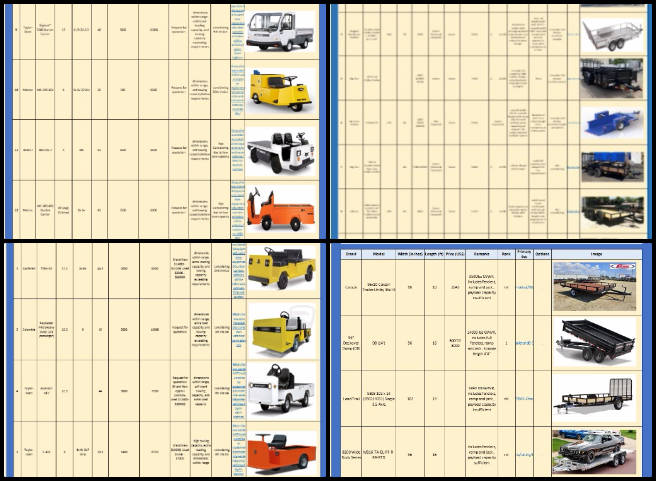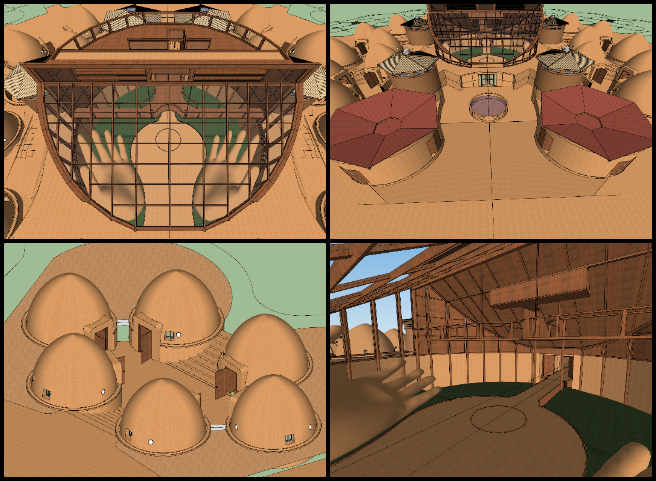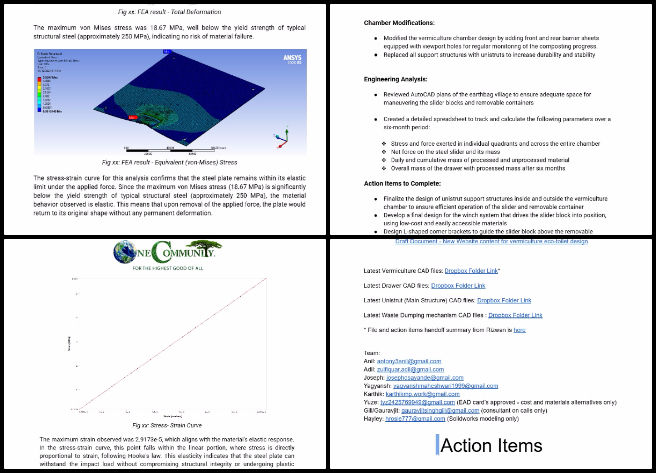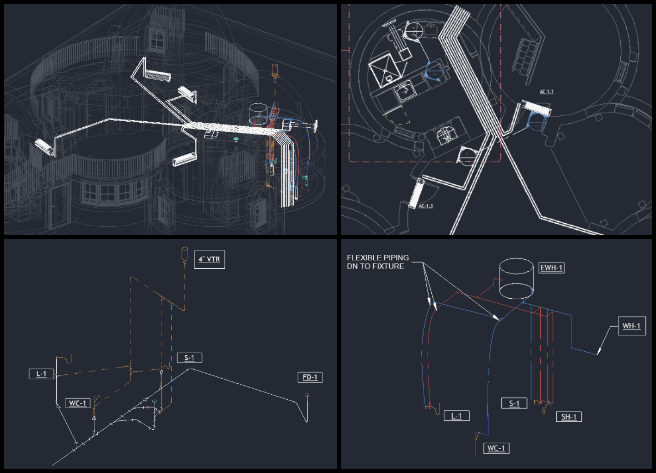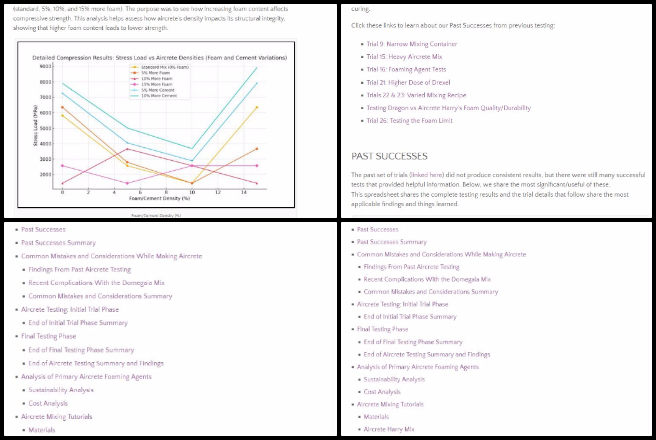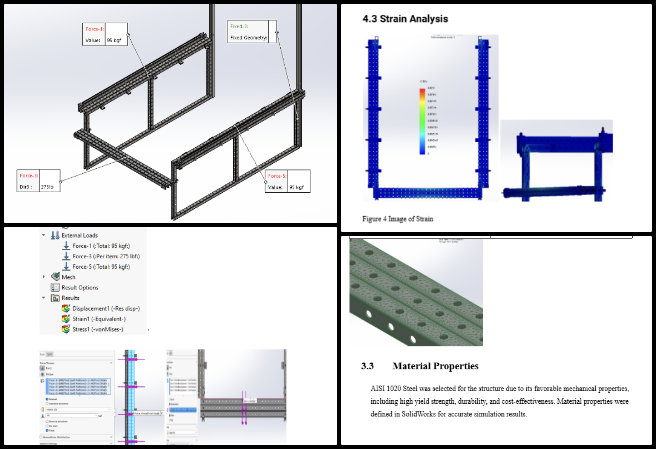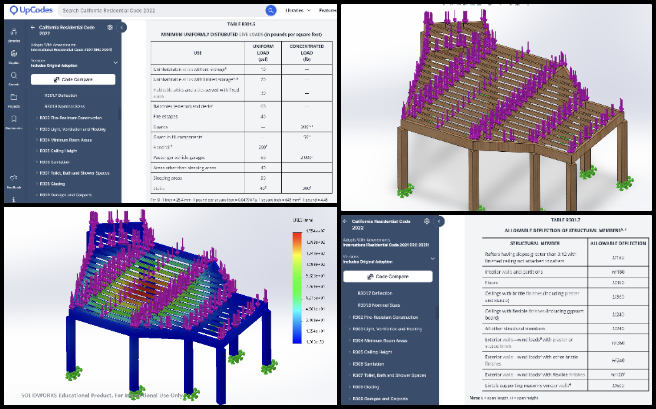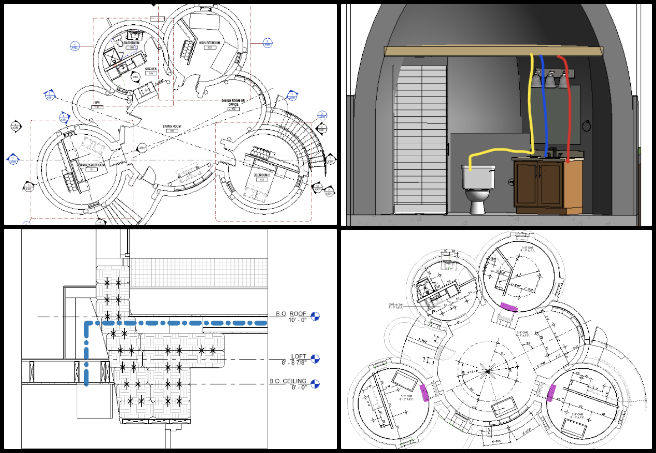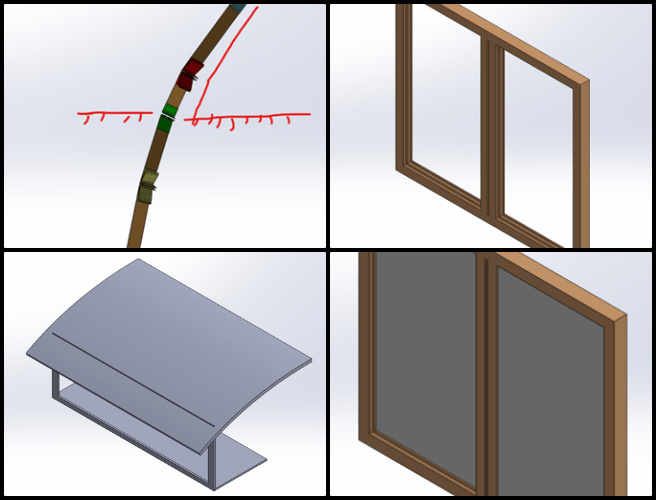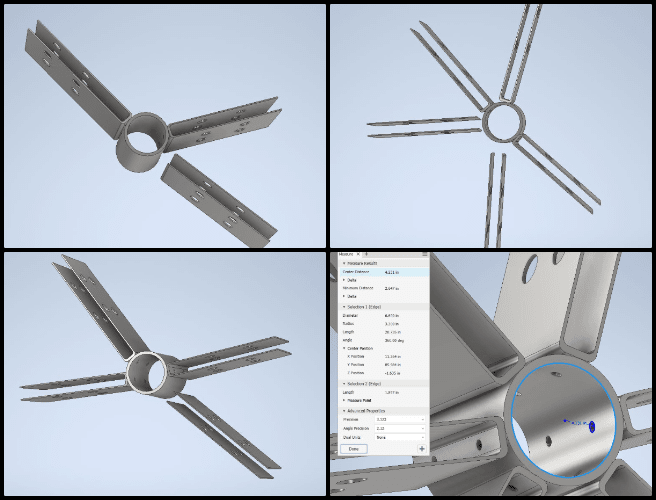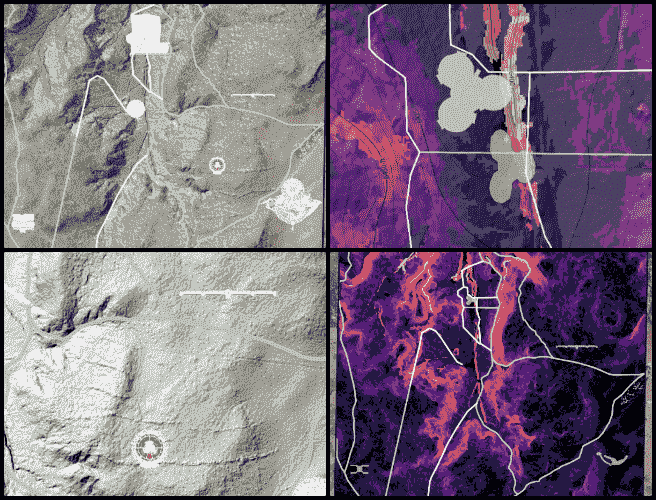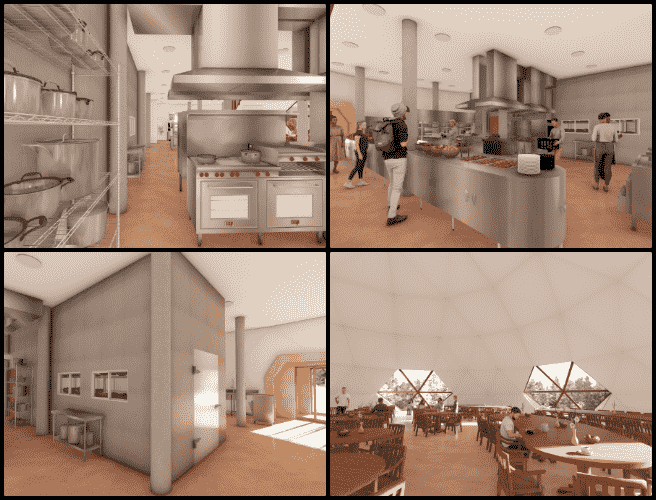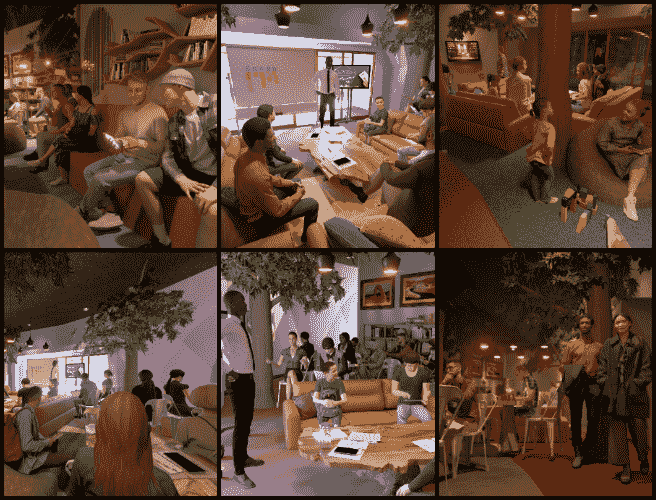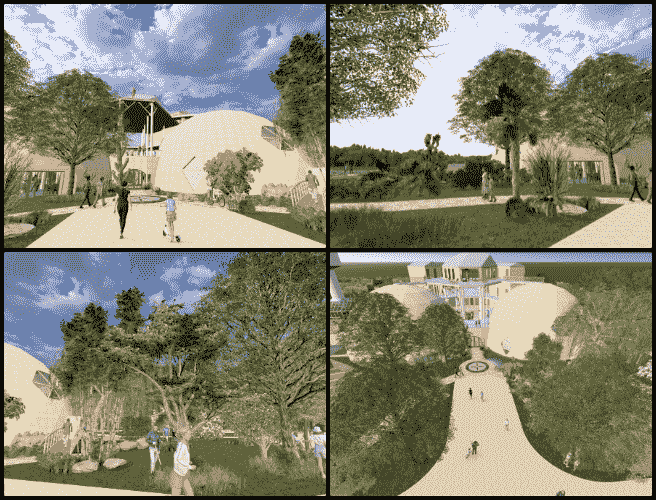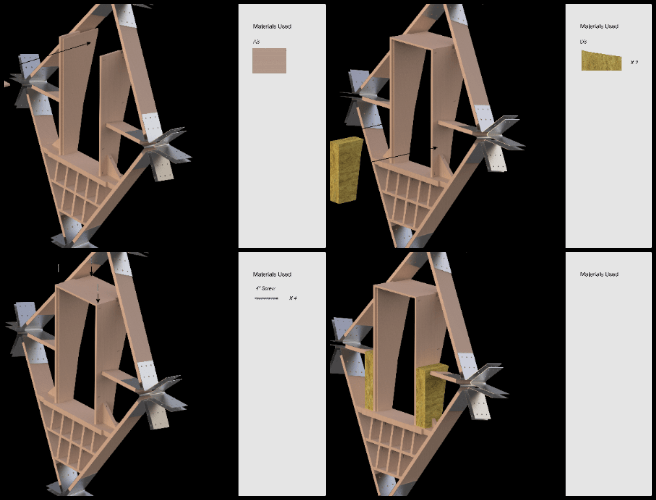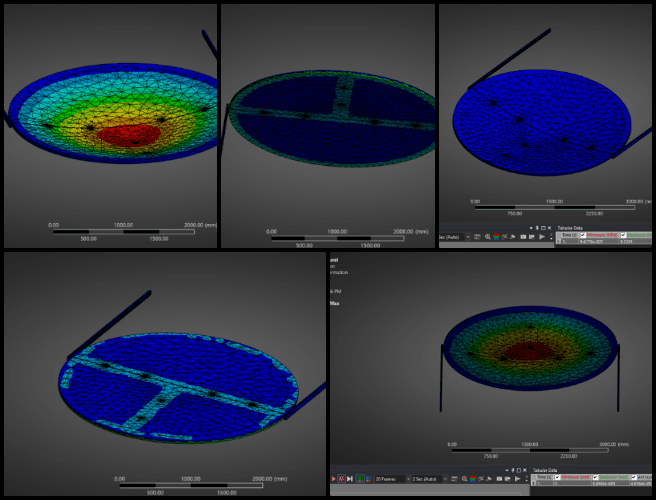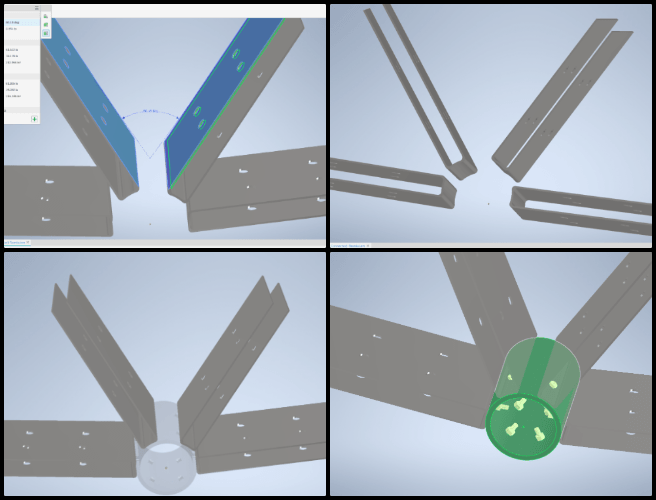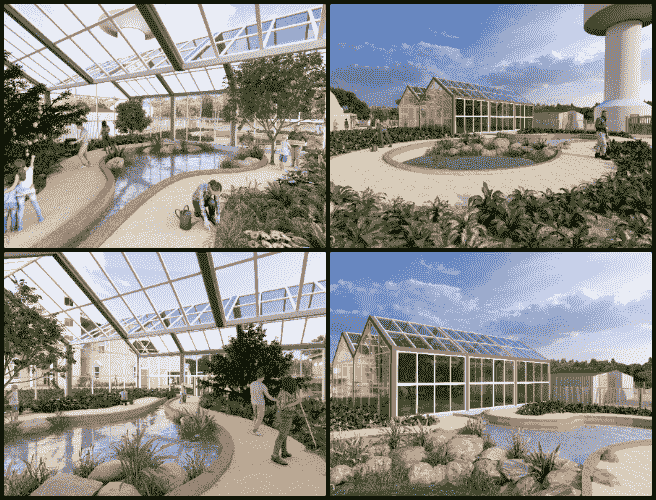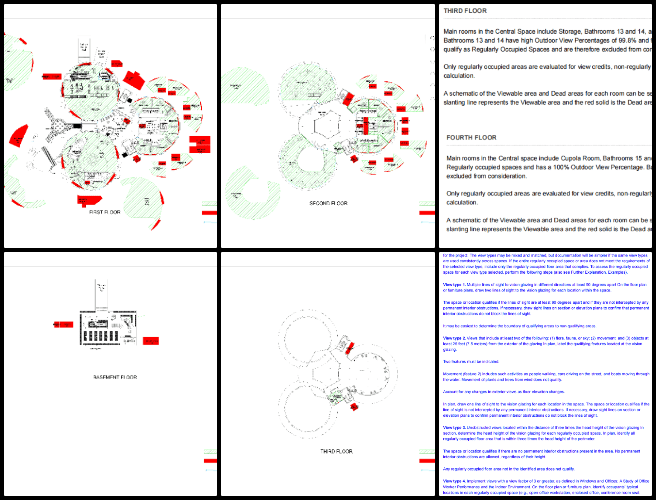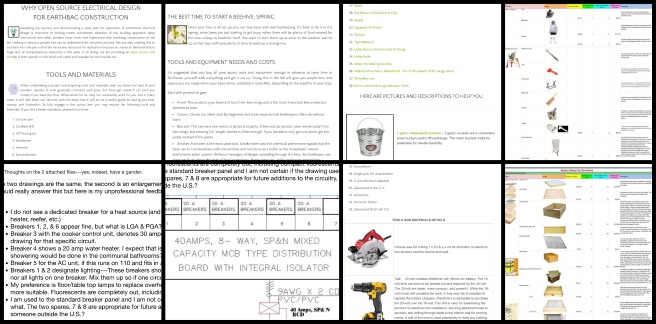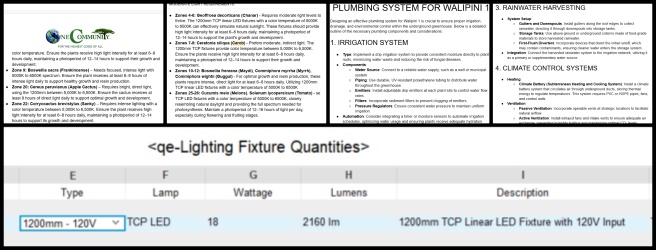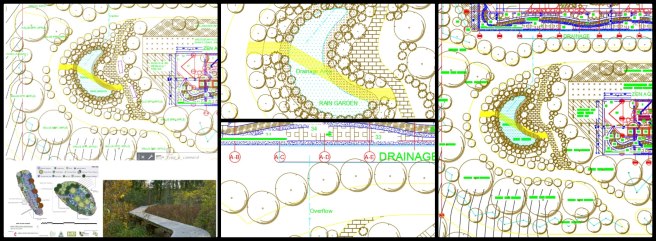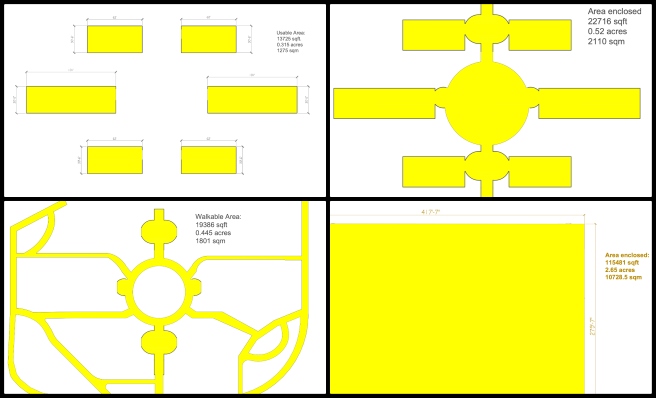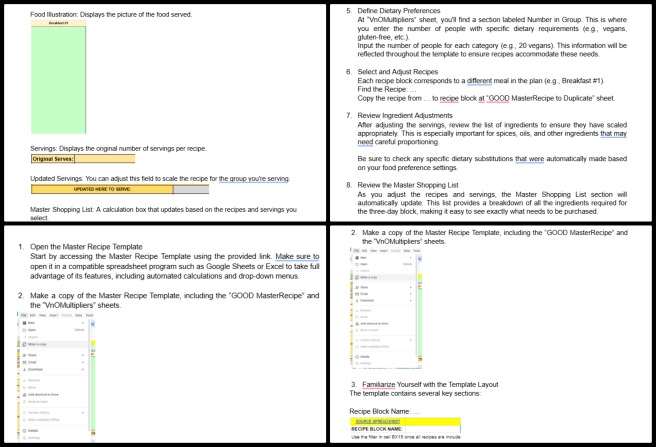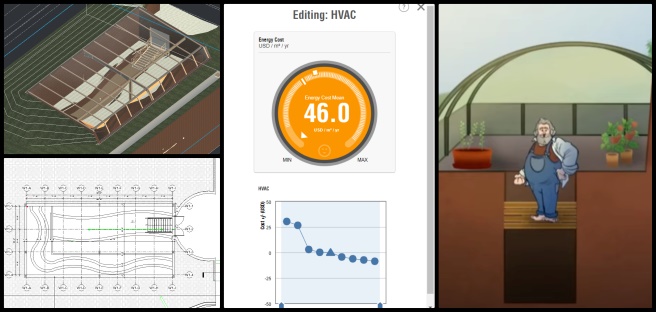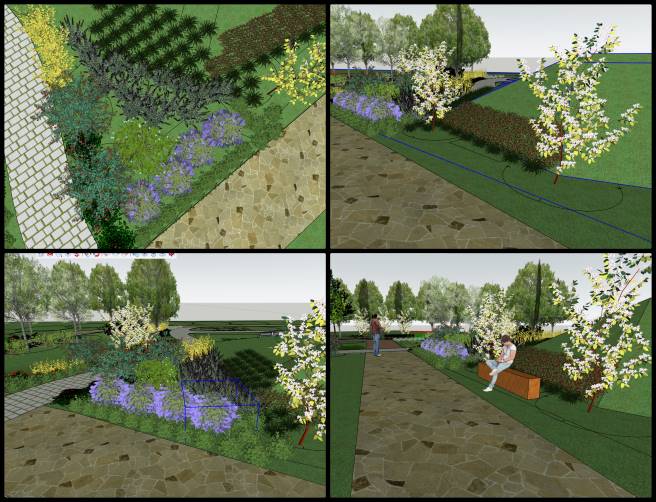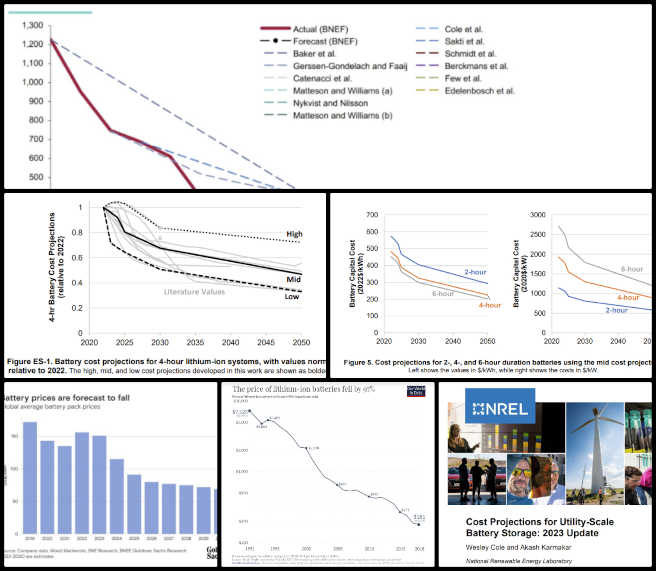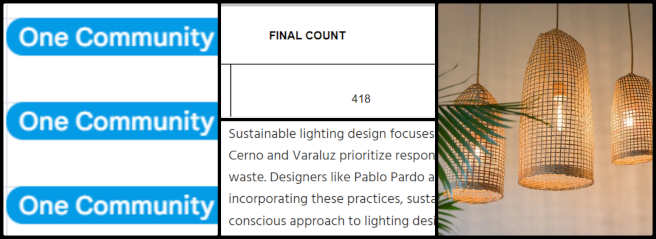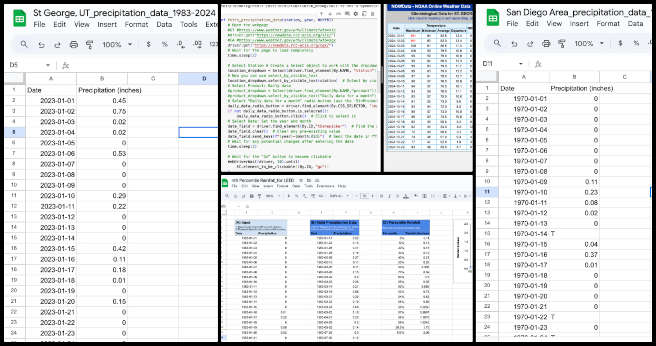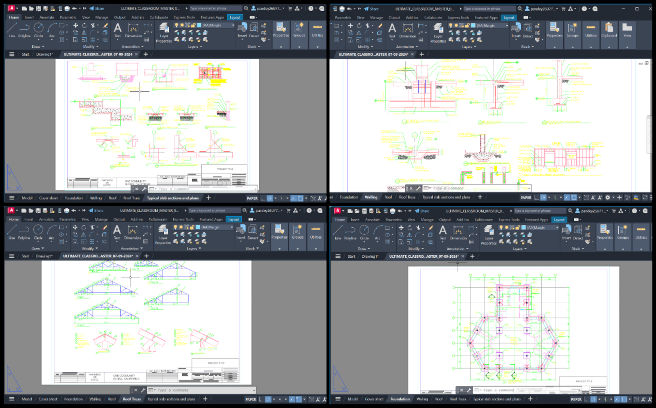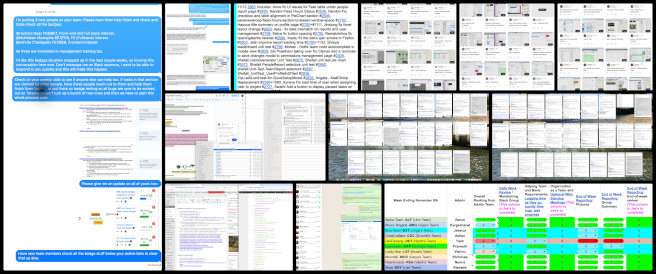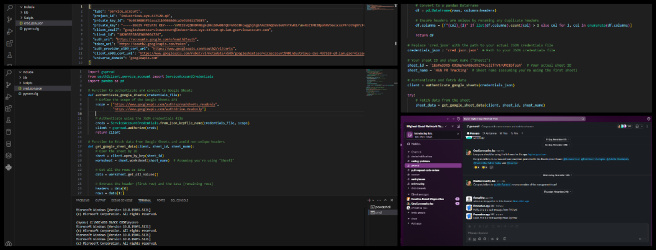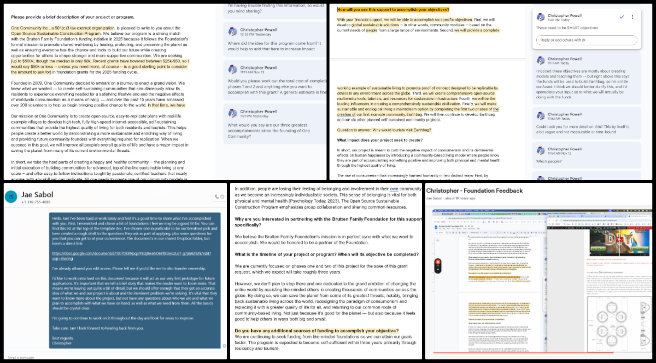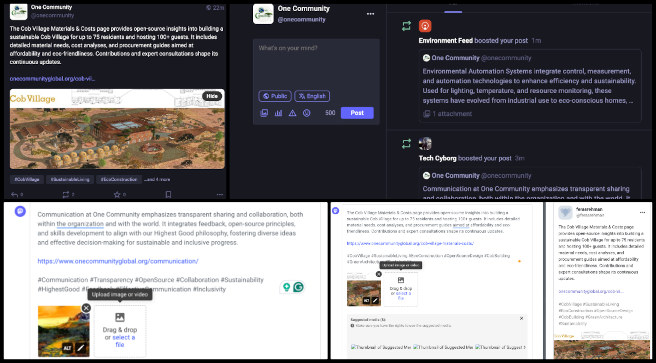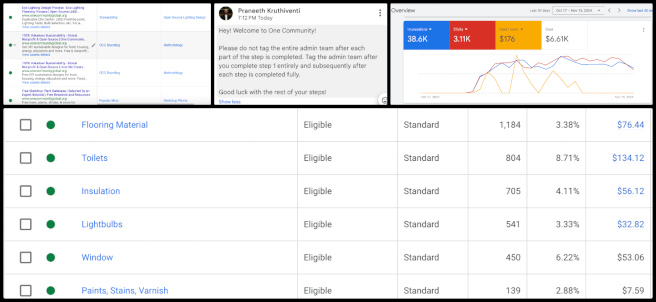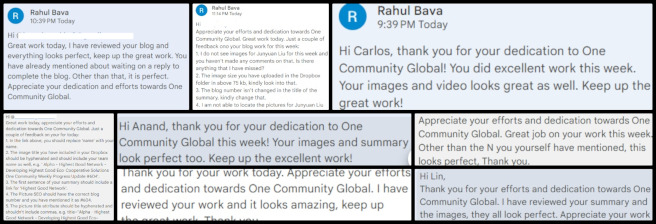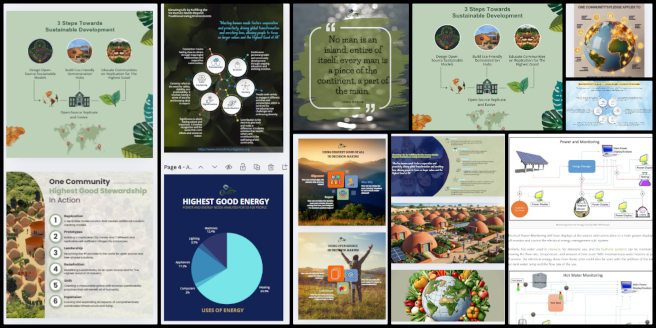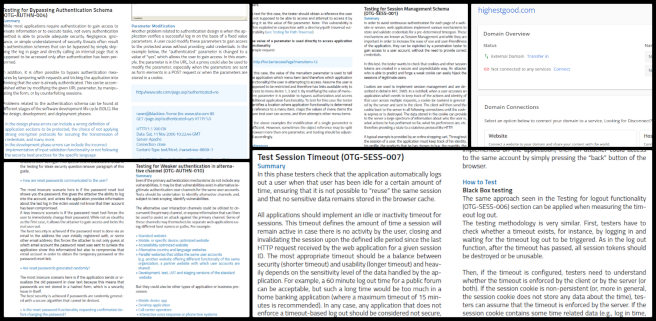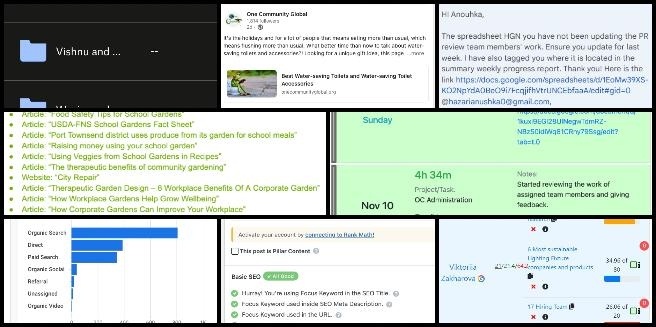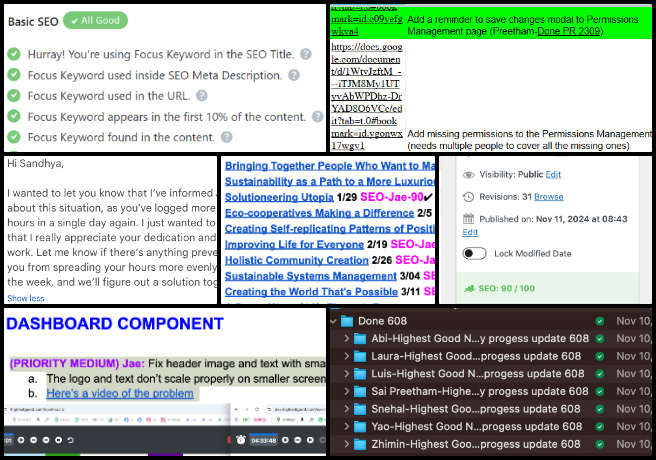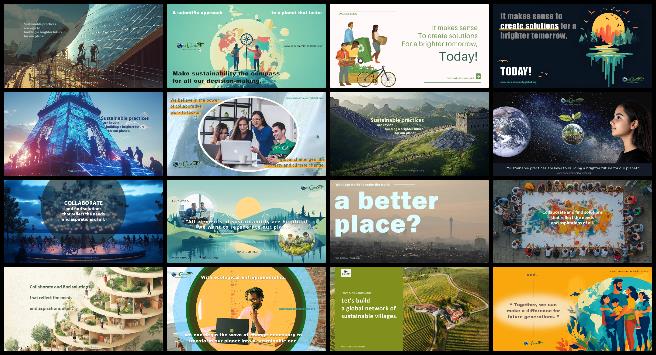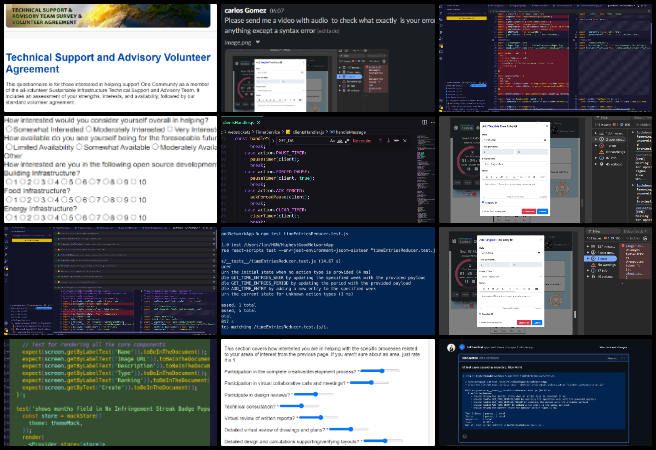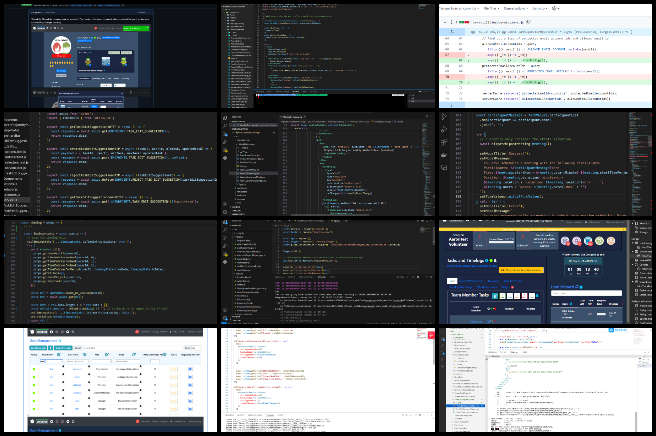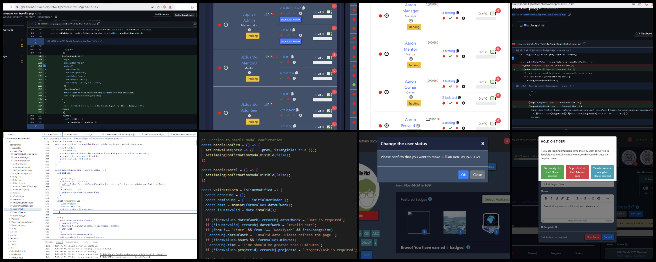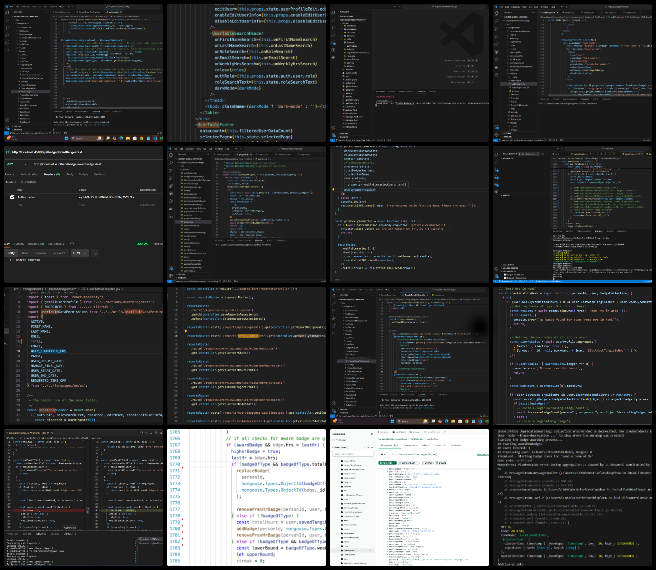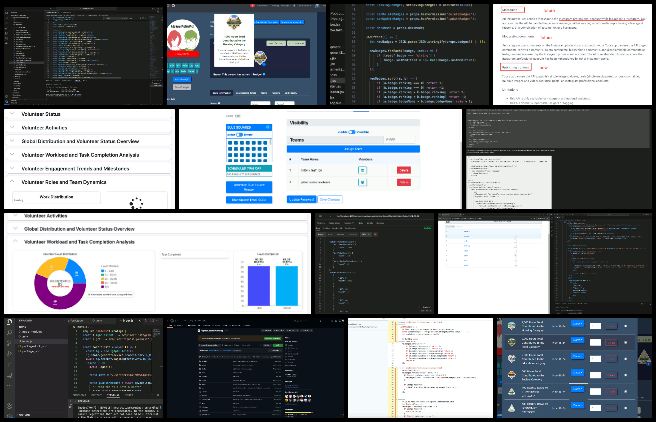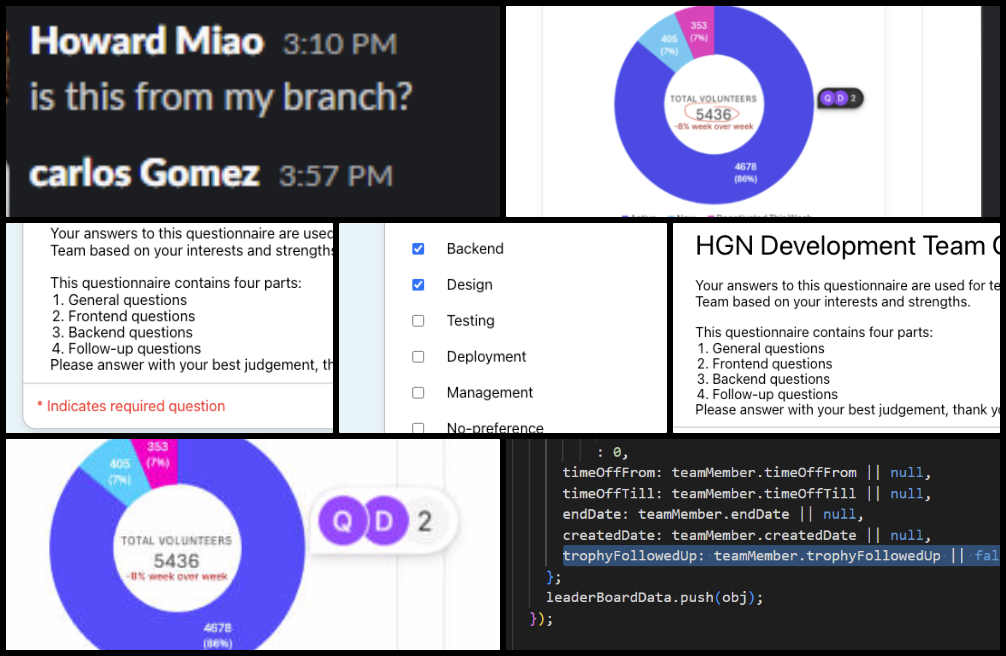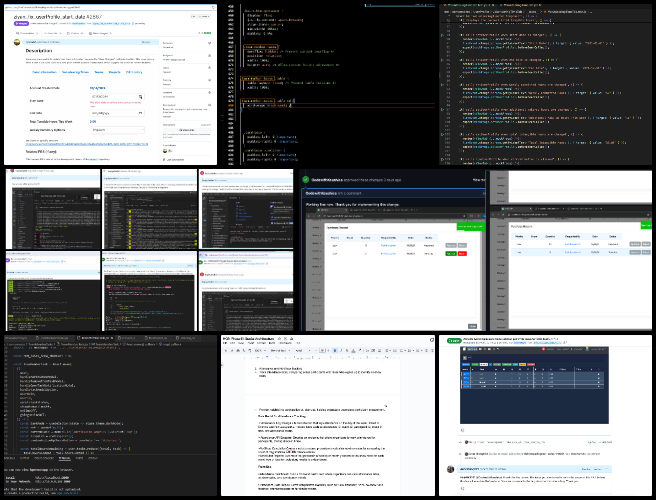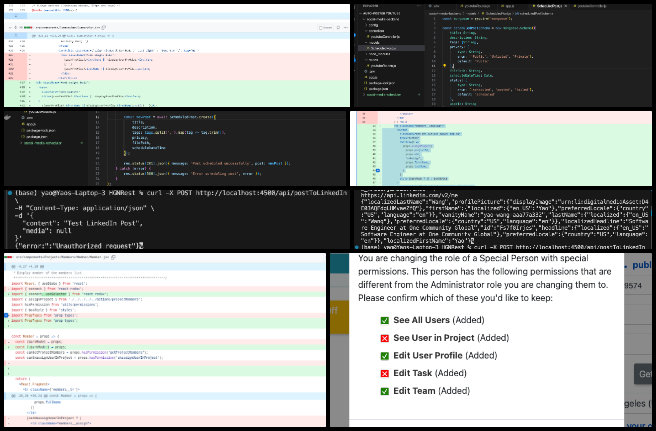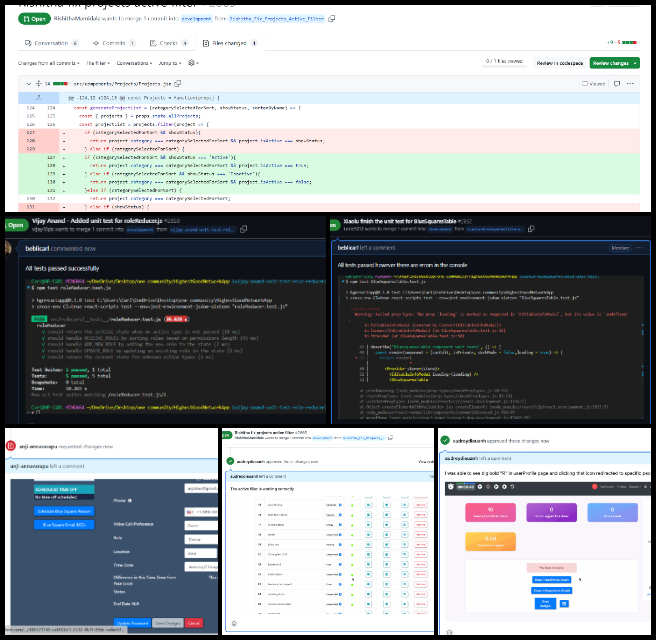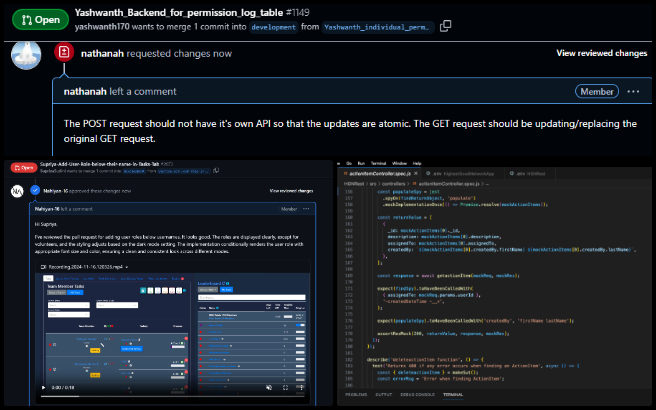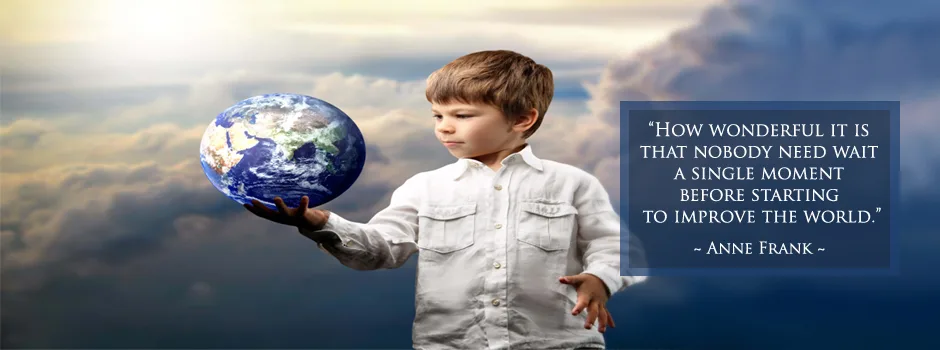
Cooperatively Building a World that Works for Everyone – One Community Weekly Progress Update #610
Posted on November 25, 2024 by One Community Hs
At One Community, we are cooperatively building a world that works for everyone to regenerate our planet and create positive change. Our all-volunteer team is focused on sustainable approaches to food, energy, housing, education, economics, and social architecture. By open sourcing and freely sharing sharing the complete process, we aim to build a self-replicating model that inspires a global collaboration of teacher/demonstration hubs, all for “The Highest Good of All.” Together, we are evolving sustainability and fostering global stewardship practices that promote fulfilled living and lasting impact.
- Here’s our project overview on cooperatively building a world that works for everyone
- Here’s our world-change methodology
- Here’s how this becomes self-replicating
- Here’s how we are open source and free-sharing all the do-it-yourself designs
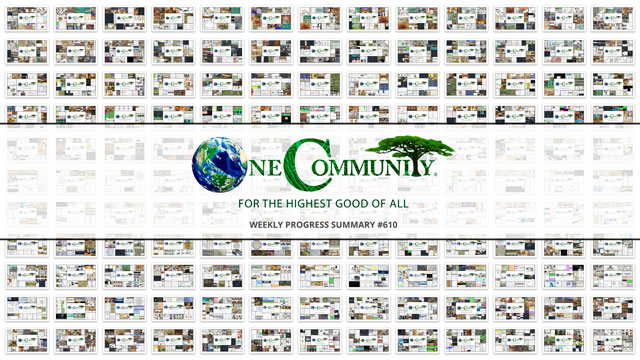
OUR MAIN OPEN SOURCE HUBS
Click on each icon to be taken to the corresponding Highest Good hub page.
One Community’s physical location will forward this movement as the first of many self-replicating teacher/demonstration communities, villages, and cities to be built worldwide essentially for cooperatively building a world that works for everyone. This is the November 25th, 2024 edition (#610) of our weekly progress update detailing our team’s development and accomplishments:
Cooperatively Building a
World that Works for Everyone
One Community Progress Update #610
DONATE | COLLABORATE | HELP WITH LARGE-SCALE FUNDING
CLICK HERE IF YOU’D LIKE TO RECEIVE AN EMAIL EACH WEEK WHEN WE RELEASE A NEW UPDATE
YOU CAN ALSO JOIN US THROUGH SOCIAL MEDIA
ONE COMMUNITY WEEKLY UPDATE DETAILS
HIGHEST GOOD HOUSING PROGRESS
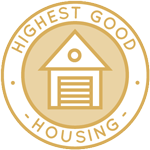 One Community is cooperatively building a world that works for everyone through Highest Good housing that is artistic and beautiful, more affordable, more space efficient, lasts longer, DIY buildable, and constructed with healthy and sustainable materials:
One Community is cooperatively building a world that works for everyone through Highest Good housing that is artistic and beautiful, more affordable, more space efficient, lasts longer, DIY buildable, and constructed with healthy and sustainable materials:
- Learn about cooperatively building a world that works for everyone: Our Upcoming Crowdfunding Campaign
- Learn about the different village models: 7 Sustainable Village Models
- Visit the open-source portals for the first two: Earthbag Village OS Hub | Straw Bale Village OS Hub
This week, Adil Zulfiquar (Engineer) continued working on the Vermiculture Toilet engineering and designing an ongoing path to making mainstream no-impact living; which is part of cooperatively building a world that works for everyone. His work centered on refining the vermiculture transportation report by incorporating changes suggested during multiple reviews. Backups were created for all referenced videos and PDF articles used in the report. Updates were made to the Excel lists that generate images for the report, and a backup was created for the website. A new safety section was added for operating the utility trailer, including pictorial illustrations. The report was further revised to enhance readability and presentation. The Earthbag Village is the first of 7 to be built as the housing component of One Community’s open source model for cooperatively building a world that works for everyone. See below for some of the pictures related to work.
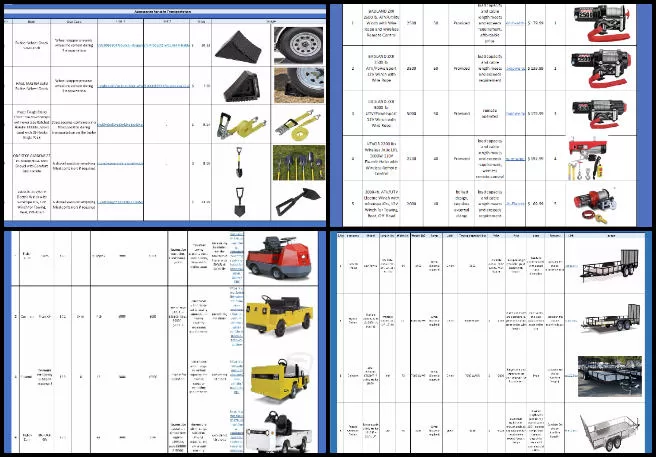
Akshit Sethi (Architectural Designer) continued working on updating the Earthbag Village SketchUp and AutoCAD layouts. Akshit worked on completing the base file for the SketchUp model of the EarthBag Village. His tasks included incorporating the atrium space, adjusting the ramp and door design to allow service vehicle entry, and integrating internal and external clusters. These updates established the foundational elements of the EarthBag Village model for further development. The Earthbag village is the first of 7 villages to be built as part of One Community’s open source model for cooperatively building a world that works for everyone. See his work in the collage below.
Anil Karathra (Mechanical Engineer) continued helping complete the Vermiculture Toilet engineering and designs. He focused on team activities, including managing weekly summaries and reviewing past work to ensure alignment with project goals; towards cooperatively building a world that works for everyone. Updates were made to the table of contents, bookmarks, and links, with formatting adjustments applied to the pest management section. The winch pull-out calculations document was revised with updated images and formatting, with a final review and touch-ups pending. Modifications were made to the hammer impact documentation based on recent feedback, and a new finite element analysis was conducted for the winch pull-out using a redesigned slider. The approach for cooperatively building a world that works for everyone enables the development of innovative solutions that are both environmentally friendly and effective. See below for some of the pictures related to the work.
Avery Hamilton (Mechanical Designer) continued working on finalizing the interior of the Earthbag Village 4-dome home design as a strategy for cooperatively building a world that works for everyone. Avery refined Revit schedules, finalized equipment layouts to align with project requirements, verified MEP system coordination with architectural plans, adjusted piping layouts for efficiency, and updated the Revit model with revised equipment specifications. He also created draft details for venting systems and prepared a mechanical and electrical coordination PDF to support interdisciplinary collaboration. The Earthbag village is the first of 7 villages to be built as part of One Community’s open source model for cooperatively building a world that works for everyone. See the work in the collage below.
Charles Gooley (Web Designer) continued working on the Aircrete Engineering and Research: Compression Testing, Mix Ratios, R-value, and More page. Charles updated the Aircrete Engineering and Research: Compression Testing, Mix Ratios, and R-value page, detailing the engineering steps, research, resources, and tools used to assess the safety of aircrete designs and structures. He identified sections in the related design document that need further clarification and expanded the content on the Tools and Equipment for Open Source Construction master page. Aircrete is an alternative we’re exploring for the Earthbag Village, a foundational part of One Community’s open-source model for cooperatively building a world that works for everyone. Take a look at some of the work in the images below.
Joseph Osayande (Mechanical Engineer) continued helping finish the Vermiculture Toilet engineering and design details. Joseph focused his efforts on cooperatively building a world that works for everyone; the drawer design was revised by adjusting its dimensions and fittings to align with the updated wall structure for improved compatibility within the chamber. Modifications to the Waste Removal System (WRS) included aligning the U-brackets with the updated drawer positioning. Finite Element Analysis (FEA) tests were planned to evaluate alternative unistrut materials for cost and performance. Research was also initiated to identify the most suitable material for the WRS, considering both performance and cost factors. The Earthbag Village is the first of 7 to be built as the housing component of One Community’s open source model for cooperatively building a world that works for everyone. See some of his work in the collage below.
Karthik Pillai (Mechanical Engineer) continued helping finish the Vermiculture Toilet engineering and helping with the Earthbag Village 4-dome home roof plan. For the vermiculture toilet will essentially promote cooperatively building a world that works for everyone Karthik worked on refining the roof joist design by testing various dimension combinations to reduce deflection to less than one inch. Simulation results showed a maximum deflection of 1.9 inches, leading to the identification of potential structural adjustments for optimization. Progress was also made on the vermiculture toilet design, with an assembly model developed to address coverage issues by minimizing structural gaps. Finite element analysis (FEA) is in progress to evaluate the assembly’s structural performance, focusing on ensuring functionality and reliability under operational conditions. The Earthbag Village is the first of 7 to be built as the housing component of One Community’s open source model for cooperatively building a world that works for everyone. See the work in the collage below.
Michaela Silva (Architect) continued working on finalizing the interior details for the Earthbag Village 4-dome home design. Michaela conducted structural research for the design of the 4-dome roof structure, reviewing live and dead load requirements from the California Residential Code and updating the building code sheet in Revit with the relevant sections. She also resolved a coordination issue between the mini-split and TV placement in the primary bedroom. The Earthbag Village is the first of 7 villages to be built as part of One Community’s open source model for cooperatively building a world that works for everyone. See her work in the collage below.
Vimarsh Acharya (Engineering Manager and Technical Reviewer) continued working on identifying sustainability-related arguments covering the Highest Good Lifestyle Considerations and sourcing quality research to support each one. The research support will definitely enhance cooperatively building a world that works for everyone. His work on reviewing the “Vermiculture Container Transport Solution” document involved implementing changes and addressing questions. The “Ultimate Classroom Structural Design” document is now in the final review stage. Earlier revisions, suggested by Jae and the user, were completed by Apoorv, and the current effort is directed toward rechecking and verifying the document for any remaining issues or uncertainties. The One Community model of combining forward-thinking education with sustainably built classrooms like this is an excellent example of cooperatively building a world that works for everyone. See the collage below for his work.
DUPLICABLE CITY CENTER PROGRESS
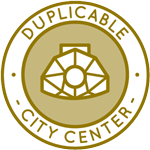 One Community is cooperatively building a world that works for everyone through a Duplicable and Sustainable City Center that is LEED Platinum certified/Sustainable, can feed 200 people at a time, provides laundry for over 300 people, is beautiful, spacious, and saves resources, money, and space:
One Community is cooperatively building a world that works for everyone through a Duplicable and Sustainable City Center that is LEED Platinum certified/Sustainable, can feed 200 people at a time, provides laundry for over 300 people, is beautiful, spacious, and saves resources, money, and space:
- Learn about this building and its function: Duplicable City Center Open Source Hub
This week, Adithya Bhalaji (Mechanical Engineer) continued exploring various types of dormer designs available in the market and studied commonly used materials for windows and dormer construction, focusing on their insulation properties for the dormer interior. He focused on creating part drawings for individual components of the second-floor dormer design. The designs will cooperatively building a world that works for everyone. This involved referencing stackups and dimensions from the first-floor dormer design and making design assumptions to accommodate the incline caused by the steep angle changes in the dome structure and stacked diamond assembly. Additionally, considerations were made for the attachment methods of these parts. As previous concept explorations required a fresh approach, the design process started with initial concept sketching and development before progressing to assembly creation. The current scope of work includes the overall dormer structure, with remaining tasks involving the addition of insulation, an already-designed window frame, and the outer enclosure, which are planned to be addressed in the near term. The Duplicable City Center represents a fundamental element of One Community’s open-source approach, dedicated to cooperatively building a world that works for everyone. View examples of this work in the pictures provided below.![]()
Arnob Mutsuddi (Mechanical Engineer) continued working on the Duplicable City Center’s structural engineering model and details. He worked on the Row 6 hub connector design, which progressed with continued efforts on angle alignment and middle ring integration. The design process included aligning four side struts with the middle ring and addressing the angle alignment between the side struts and the middle ring. Three side struts were fully aligned, and adjustments to the remaining alignments are still in progress. The Duplicable City Center is a foundational part of One Community’s open-source model, which excels in cooperatively building a world that works for everyone. This approach is integral to their mission of cooperatively building a world that works for everyone through innovative and scalable solutions. See some of this work in the pictures below.
Chris Blair (GIS Technician/Horticulturist) continued working with GIS data as part of One Community’s Permaculture Design that includes the location of the Duplicable City Center. He worked with GIS data as part of One Community’s Permaculture Design. Using accurately scaled footprints of the villages and city center, he analyzed and placed them in optimal locations on the property, taking into account level ground and solar aspect. He also created maps displaying the original village locations alongside proposed relocation suggestions. Within One Community’s open-source framework, the Duplicable City Center plays a central role in cooperatively building a world that works for everyone. The images below showcase some of this work.
Faeq Abu Alia (Architectural Engineer) continued his work on the Duplicable City Center kitchen. He worked on refining the Duplicable City Center kitchen model in SketchUp, addressing design issues and incorporating feedback to improve its overall quality. He enhanced the model by adding human figures to provide a realistic perspective. In Lumion, he adjusted materials, included additional human figures, and developed three walkthrough paths for the kitchen. Key shots were rendered to improve the visual presentation and ensure alignment with project requirements. The Duplicable City Center represents a fundamental element of One Community’s open-source approach, dedicated to cooperatively building a world that works for everyone. View examples of this work in the pictures provided below.
Jason Bao (Architectural Designer) continued working on producing renders for the Duplicable City Center library. He made adjustments and updates to previous renders based on feedback from the weekly report. New ceiling lights were added to both the SketchUp and Lumion models to enhance interior lighting, aligning with a referenced lighting case study. Disposable containers were removed from all scenes, and the sport night scene was re-rendered with updated lighting. Books on the library’s shelves were re-textured to increase visual diversity, and minor clipping issues were resolved before re-rendering parts of the reading scene. The library layout for the education scene was revised, repositioning the tutor to the inner side of the group and surrounding them with students. Additional adjustments included rearranging furniture, textures, and items to achieve a corrected look, followed by rendering for economic and permaculture design education scenes. Work also began on constructing the game night scene, which involved rearranging furniture, adding game-related assets, and making lighting adjustments. The Duplicable City Center is a foundational part of One Community’s open-source model, which excels in cooperatively building a world that works for everyone. This approach is integral to their mission of cooperatively building a world that works for everyone through innovative and scalable solutions. See some of this work in the pictures below.
Nika Gavran (Industrial Designer) continued her work on the Duplicable City Center dormer window installation plans. She focused on expanding the final document for the dormer window instructions, incorporating feedback received on the design and renders. She began implementing changes, including adjusting the roof of the dormer to have a greater slope. This involved researching the appropriate slope for the specific structure size and updating the CAD model accordingly. Additionally, Nika researched waterproof roofing solutions and started a new page with detailed descriptions for cutting the rock wool insulation. As a foundational component of One Community’s open-source strategy, the Duplicable City Center is designed for cooperatively building a world that works for everyone. The images below showcase some of this work.
Rudrani Sravya Mukkamala (Mechanical Engineer) focused on researching the structural components of a hydraulic elevator, covering aspects such as the framework, guide rails, and load-bearing elements. Simultaneously, she worked on developing a design plan, integrating insights from the research into preliminary sketches and diagrams. Cooperatively building a world that works for everyone is truly attainable through well-designed strategic planning. The type of hydraulic elevator was determined based on its intended usage and an evaluation of each system’s merits and demerits. This effort aimed to align the structural design with functional requirements. Within One Community’s open-source framework, the Duplicable City Center plays a central role in cooperatively building a world that works for everyone. The images below showcase some of this work.
Sanket Basannavar (Mechanical Engineer) continued working on the Duplicable City Center spa cover as part of the City Center Natural Pool and Eco-spa Designs. He identified a design defect in the spa cover, specifically a gap between the panels. The design was updated by incorporating rubber insulation material to eliminate the gap, and the thermal analysis was rerun, showing improved efficiency. Additionally, a report detailing the updated spa cover design was completed. Within One Community’s open-source framework, the Duplicable City Center plays a central role in cooperatively building a world that works for everyone. The images below showcase some of this work.
Tasmia Hasan (Design Engineer) continued her work on the structural engineering of the Duplicable City Center. She worked on adjusting the row one angle of the frame to achieve proper alignment. She calculated and applied 66.18 degrees for the intermediate angles and 56.99 degrees for the angles on the two sides. To simplify the process, she removed the screws and inner ring, enabling easier adjustments using the Direct function for precise modifications. As a foundational component of One Community’s open-source strategy, the Duplicable City Center is designed for cooperatively building a world that works for everyone. You can see examples of this work in the following images.
Umema Ali (Mechanical Design Engineer) continued working on the Duplicable City Center Engineering. She worked on the static structural analysis of a new dome structure, focusing on evaluating its performance under snow loads of 10 and 20 lbs. Using Inventor, she analyzed the displacement and stress values resulting from the application of a uniformly distributed load. The analysis aimed to assess the structural integrity of the dome under varying conditions, providing data on how the structure responds to these specific load scenarios. Within One Community’s open-source framework, the Duplicable City Center plays a central role in cooperatively building a world that works for everyone. The images below showcase some of this work.
Yancong E (Architectural Designer) continued working on the Duplicable City Center project. He updated the Outdoor View Floor Plan to align with the latest revisions, adjusting dead areas and recalculating viewable area percentages for each room. He revised the overall analysis description to ensure alignment with the website and conducted individual floor analyses to identify specific details and determine which rooms qualify for points. The Duplicable City Center represents a fundamental element of One Community’s open-source approach, dedicated to the ongoing path to making no-impact living mainstream. This innovative initiative aims to showcase how an ongoing path to making no-impact living mainstream can transform urban spaces into more sustainable and community-oriented environments. You can see examples of this work in the following images.
HIGHEST GOOD FOOD PROGRESS
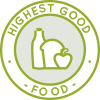 One Community is cooperatively building a world that works for everyone through Highest Good food that is more diverse, more nutritious, locally grown, and sustainable, and part of our open source botanical garden model to support and share biodiversity:
One Community is cooperatively building a world that works for everyone through Highest Good food that is more diverse, more nutritious, locally grown, and sustainable, and part of our open source botanical garden model to support and share biodiversity:
- Learn about the structures: Hoop House Hub | Aquapini & Walipini Open Source Hub
- See what we’ll be growing: Gardens & Hoop Houses | Large-scale Structures | Food Forest | TA
This week, the core team completed the review of the Apiary and portions of the Earthbag Tools, Equipment, and Material/Supplies lists. They also reviewed the electrical plan for the Earthbag Village, examining individual circuits and suggesting uniform wire gauges and appropriate breaker amperes. An electrical reassessment will be conducted for the 4-dome cluster. The Earthbag Village is the first of 7 to be built as the housing component of One Community’s open source model for cooperatively building a world that works for everyone. See below for some of the pictures related to this work.
Jay Nair (BIM Designer) continued working on Aquapini and Walipini Planting and Harvesting lighting and HVAC design. He focused on advancing the greenhouse design by resolving challenges encountered during the heat load analysis in Revit addressing software limitations and errors. Addressing the challenges is important in cooperatively building a world that works for everyone. Research into alternative methods for performing the analysis was undertaken to achieve accurate results aligned with the greenhouse’s requirements. A work breakdown structure (WBS) was developed for HVAC and plumbing designs to facilitate task assignments and project planning. Additionally, Jay reviewed resumes to evaluate candidates for mechanical engineering roles, prioritizing the selection of individuals with relevant expertise to support the design and analysis phases of the project. The Highest Good Food initiative is a key component of One Community’s open source plans, dedicated to cooperatively building a world that works for everyone and exemplifies the organization’s commitment through innovative design and implementation. Below are some of the images showcasing this work.
Junyi Shi (Landscape Architect) started working on developing a design for Walipini #2 as a part of Aquapini and Walipini Planting and Harvesting project. A project that can lead to cooperatively building a world that works for everyone Her work on the CAD design concentrated on integrating a people space function into the Walipini 2 fruit greenhouse. After analyzing and researching potential options, a design plan for the people space was selected. The CAD design was synchronized with the SketchUp model, beginning with sectional views and utilizing SketchUp and Enscape to create 3D representations for improved spatial visualization. Corrections were also made to errors in the original Lumion model, which included replacing incorrect tree species and fixtures with accurate ones, followed by rendering perspective images to showcase the updated design. The Highest Good Food initiative is essential to One Community’s open source plans, focused on promoting a sustainable approach to cooperatively building a world that works for everyone. Her contributions are highlighted in the collage below.
Purva Borkar (Landscape Architect) continued with her work on creating an outdoor merge of a food-producing ecosystem and people spaces for the Aquapini and Walipini Planting and Harvesting structures. She focused on refining the CAD design to enhance accuracy and detail in the project layout. She also conducted research to identify and integrate relevant design features, improving both functionality and aesthetics which is a special feature for cooperatively building a world that works for everyone. Additionally, Purva worked on drafting a report that provides a thorough explanation of the overall design, highlighting its key components and objectives. As part of One Community’s open source efforts, the Highest Good Food initiative embodies a commitment to cooperatively building a world that works for everyone. The images below offer a glimpse into these ongoing efforts.
Surya Teja Anumolu (Volunteer Mechanical Engineer) continued his work on the Highest Good Food most sustainable construction and agricultural equipment. He focused on refining Aquapini and Walipini Planting and Harvesting footprint drawings to include scale bars and legends at each level for the different types of footprints created last week. Using the master AutoCAD file from the One Community Dropbox folder, he combined five distinct drawings to create the final file for the Aquapini and Walipni databases. The Highest Good Food initiative is a key component of One Community’s open-source plans, dedicated to cooperatively building a world that works for everyone. This approach is critical to ensure alignment with the initiative’s goals. See his work in the collage below.
Syahrina Maulida Majid (Volunteer Nutritionist) continued working on creating menu implementation tutorials as a part of One Community’s Transition Food Self-Sufficiency Plan. She worked on menu implementation by refining and testing the master recipe template; and important in cooperatively building a world that works for everyone. She developed step-by-step instructions for a tutorial to guide users on data input, adapting the template to different dietary needs, and interpreting its outputs. Observations from earlier testing were integrated to address potential challenges and enhance the tutorial’s clarity. Additionally, she documented examples to provide practical context, ensuring the tutorial is accessible and applicable to a variety of users. The Highest Good Food initiative plays a crucial role in One Community’s open source plans, to cooperatively building a world that works for everyone. Her work is showcased in the collage below.
Vatsal Tapiawala (Mechanical Engineer) continued working on integrating ideas from Paul Wheaton’s Truly Passive Greenhouse” designs into the Aquapini/Walipinis structures. The incorporation of Aquapini is essesntial to cooperatively building a world that works for everyone. He focused on analyzing the heating and cooling loads for Walipini 1. He conducted a comparative study of the peak loads under various scenarios to understand the thermal performance of the structure. In addition to the analysis, Vatsal compiled the findings and wrote a detailed report to document the results comprehensively. The Highest Good Food initiative is a key component of One Community’s open source plans, dedicated to cooperatively building a world that works for everyone. See his work in the collage below.
Ziyi Chen (Landscape Designer) continued working on the design of the outdoor spaces for the Aquapini/Walipinis structures. She organized current progress and worked on planning the webpage layout. To clarify the deliverables, Ziyi divided them into four sections: general plans and construction drawings, detailed plans, renderings, and sections. As part of this process, she created sample floor plans, prepared a design summary, and visualized canopy and ground cover coverage through distinct layers, documenting them in the sequence intended for the webpage. The Highest Good Food initiative is a key component of One Community’s open source plans, dedicated to cooperatively building a world that works for everyone. See her work in the collage below.
HIGHEST GOOD ENERGY PROGRESS
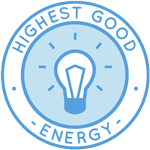 One Community is cooperatively building a world that works for everyone through Highest Good energy that is more sustainable, resilient, supports self-sufficiency and includes solar, wind, hydro and more:
One Community is cooperatively building a world that works for everyone through Highest Good energy that is more sustainable, resilient, supports self-sufficiency and includes solar, wind, hydro and more:
- Learn about the open source sustainable-energy foundations: Solar, Hydro, and Wind
- Explore our research into the most sustainable products and companies for saving water and energy: Insulation, Eco-laundry, Lightbulbs and Light Bulb Companies, Doors and Door Companies, Windows and Window Companies, Toilets, Faucets and Faucet Accessories, Urinals, and more.
This week, Muhammad Sarmad Tariq (Electrical Engineer) continued helping finish the Highest Good energy fully-off-grid vs. grid-tie comparisons. This week he reviewed various battery cost projections that are available online. He developed a normalized battery cost projection extending to 2050, indicating a 34% reduction in battery costs from 2022 levels based on the datasets projection from the NREL website and included in the document titled “Muhammad Sarmad Tariq and One Community Collaboration” within the WBS Complete Grid-tie vs Off-grid Cost Analysis and Rollout Report. Additionally, he examined information comparing off-grid and on-grid solar PV systems, including qualitative analyses conducted by solar PV companies. The team has made significant progress within One Community’s open-source framework, and Highest Good energy plays a central role in cooperatively building a world that works for everyone. Take a look at some of this work in the images below.
Viktoriia Zakharova (Administrative Assistant) continued her research to complete the update of the Most Sustainable Lightbulbs and Light Bulb Companies. This week, Viktoriia researched the most sustainable lighting fixtures for the Duplicable City Center, organized the fixture requirements spreadsheet, and identified potential alternative options. Additionally, she revised the sustainable lightbulb webpage, updated the sustainability rankings of lighting solutions companies, added explanatory comments, and rearranged the webpage content. The updated webpage was submitted for the second round of feedback. Beyond this, Viktoriia reviewed training assignments submitted by two volunteers, providing detailed feedback on their work. She also completed administrative tasks, including managing the weekly progress update summaries for the Highest Good Food. The Highest Good energy component is a foundation of One Community’s approach for cooperatively building a world that works for everyone. View examples of this work in the pictures provided below.
Yi-Ju Lien (Environmental Engineer) continued on her Highest Good energy water collection and hydro-energy exploration. This week she developed a spreadsheet to estimate the performance of stormwater management practices using the direct determination method. She used scenarios from the EPA’s stormwater management guidance as examples for these calculations. Additionally, she calculated the potential of the Earthbag Village site to retain the 95th percentile storm, aiming to achieve the 5 LEED points. Yi-Ju also began working on a LEED tutorial to explain the calculations and design details of each stormwater management practice. Water collection and maximizing the use of micro-hydro are important aspects of One Community’s open-source approach to Highest Good energy and building a world that works for everyone. Below is a collage of this work.
HIGHEST GOOD EDUCATION PROGRESS
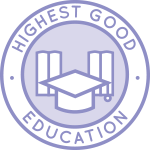 One Community is cooperatively building a world that works for everyone through the Highest Good education that is for all ages, applicable in any environment, adaptable to individual needs, far exceeds traditional education standards, and is more fun for both the teachers and the students. This component of One Community is about 95% complete with only the Open Source School Licensing and Ultimate Classroom construction and assembly details remaining to be finished. With over 8 years of work invested in the process, the sections below are all complete until we move onto the property and continue the development and open sourcing process with teachers and students – a development process that is built directly into the structure of the education program and everything else we’re creating too:
One Community is cooperatively building a world that works for everyone through the Highest Good education that is for all ages, applicable in any environment, adaptable to individual needs, far exceeds traditional education standards, and is more fun for both the teachers and the students. This component of One Community is about 95% complete with only the Open Source School Licensing and Ultimate Classroom construction and assembly details remaining to be finished. With over 8 years of work invested in the process, the sections below are all complete until we move onto the property and continue the development and open sourcing process with teachers and students – a development process that is built directly into the structure of the education program and everything else we’re creating too:
- Program Overview: Education Open Source Hub
- How the components work together in designing human orchestrated eco-abundance: How to use the Education for Life Program
- Lesson Plans for Life – Lesson Plans How-to
- Foundations of Outstanding Leaders, Teachers, and Communicators
- Curriculum for Life
- Teaching Strategies for Life
- Learning Tools and Toys for Life
- Evaluation and Evolution
This week, Apoorv Pandey (Mechanical Engineer) continued helping with the engineering details for the Ultimate Classroom part of the Highest Good Education component. An important factor in cooperatively building a world that works for everyone. He continued working on the final draft of the Structural Engineering Report for the Ultimate Classroom Project, focusing on the changes recommended by Jae. He worked on making the AutoCAD files more presentable, especially the detailing of each drawing. He is also working on logging all of his work in a video format for a varied explanation of all the work he’s done. He researched ways to simplify the explanation of technical tables, such as the static check table and the beam force detail summary, to make the content more accessible to a layperson. Additionally, Apoorv is reworking the formatting of certain sections and referencing other published materials on One Community’s website to guide his work. The One Community model of combining forward-thinking education with sustainably built classrooms like this is an excellent example of cooperatively building a world that works for everyone. This approach exemplifies cooperatively building a world that works for everyone by creating environments fostering collaboration and innovation. See the collage below for his work.
HIGHEST GOOD SOCIETY PROGRESS
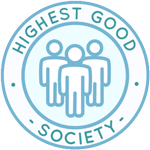 One Community is cooperatively building a world that works for everyone through a Highest Good society approach to living that is founded on fulfilled living, the study of meeting human needs, Community, and making a difference in the world:
One Community is cooperatively building a world that works for everyone through a Highest Good society approach to living that is founded on fulfilled living, the study of meeting human needs, Community, and making a difference in the world:
- Read the Highest Good Society overview a model in cooperatively building a world that works for everyone: Highest Good Society
- Learn about the model for fulfilled living and sharing: A Day in the Life
- Learn about the 4 economic models: RBE | For-profit | Non-profit | Entrepreneurship
- Learn about our open source community collaboration and management software: The Highest Good Network
This week, the core team completed over 64 hours managing One Community’s volunteer-work review not included above, emails, social media accounts, web development, new bug identification and bug-fix integration for the Highest Good Network software, and interviewing and getting set up new volunteer team members. They also shot and incorporated the video above that talks about cooperatively building a world that works for everyone and how cooperatively building a world that works for everyone is a foundation of the bigger picture of everything One Community is doing. The image below shows some of this work.
Anoushka Hazari (Data Analyst) continued working on code for automating and simplifying the Highest Good Network software promotion process. The simplification of the process is a success factor in cooperatively building a world that works for everyone. Achieving the PR reviews for the team were completed, along with the creation of a blog and a collage. Errors in the blog were corrected, and updates were made to the HGN spreadsheet and PR review table. A dashboard sketch was created, and a Loom video was prepared and sent to Jae to solicit feedback and suggestions. Jae provided input on the Figma dashboard, identifying areas for improvement. Work is ongoing to review and incorporate these suggestions to refine the design, with a focus on enhancing functionality and presentation. Additionally, adjustments based on feedback from the Loom video are being addressed to ensure all elements are properly aligned for a polished final version. This work helps One Community’s mission of cooperatively building a world that works for everyone and reinforces our commitment to cooperatively building a world that works for everyone. The following images show her work for the week.
Aravind Yuvraj (Cyber Security Professional) continued helping with the One Community website and Highest Good Network software stability and security. This week, the site was monitored to assess its performance, and the steps required to add a dummy version of HGN on Bluehost were reviewed. Adjustments were made to Wordfence settings to enhance security, including enabling two-factor authentication for all users and refining configurations to prevent unauthorized access and unknown attacks. Additionally, efforts were focused on optimizing Wordfence functionality and analyzing site traffic, particularly identifying patterns of access from different countries to ensure proactive protection measures. This work helps One Community’s mission of cooperatively building a world that works for everyone and reinforces our commitment to cooperatively building a world that works for everyone. The following images show his work for the week.
Chitra Siddharthan (Data Analyst And Team Administrator) focused on training for the Admin role, with her work evaluated by Jibin, Rishab, and Vishnu, who provided feedback on the training document. She incorporated their suggestions and made revisions accordingly. Following this, she was assigned to a team within the Highest Good Network and tasked with overseeing the completion of Phase 2 of the HGN Construction Management Software. Chitra also reviewed and familiarized herself with the “Congratulations, you’re an admin now!” document and began reading the “HGN Phase II: Materials, Equipment, Tools and Project Tracking System Outline – Team Collaboration” document. This work helps One Community’s mission of cooperatively building a world that works for everyone and reinforces our commitment to cooperatively building a world that works for everyone. The following images show her work for the week.
Christopher Powell (Grant Writer) continued helping with grant writing as a source of funding. He communicated with Jae about the Brutten Family Foundation LOI. After extensive discussion, Christopher chose to rewrite the LOI using updated information, as he was not satisfied with the original version. The revised version, now at 2.0, is focused on hiring new staff and is awaiting Jae’s feedback. Additionally, Christopher reviewed several Loom recordings to gain a clearer understanding of Jae, his vision, and his project. This work helps One Community’s mission of cooperatively building a world that works for everyone and reinforces our commitment to cooperatively building a world that works for everyone. The following images show his work for the week.
Feras Rehman (Data Analyst) continued working on developing One Community’s Mastodon account and strategy. He also managed his part of the One Community Updates Blog by reviewing and adding images to supplement the summary. He reviewed the blogs of Sneka, Ratna, Rahul, Jessica, and Zuqi, providing feedback on the errors identified. Five more Mastodon posts were scheduled on Buffer for the following week. Targeted strategies for Mastodon were developed and implemented, leading to a fourfold increase in post reach through optimized hashtag usage and improved post structuring. Images were also added to supplement the weekly summary, providing additional context to the updates. This work helps One Community’s mission of cooperatively building a world that works for everyone and reinforces our commitment to cooperatively building a world that works for everyone. The following images show his work for the week.
Praneeth Kruthiventi (Volunteer Data Analyst) continued helping manage the One Community Google Ads campaigns. This week, he focused on optimizing Google Ads campaigns by updating keywords to enhance relevance and analyzing the effects of bidding strategy adjustments on ad visibility. Effective online campaigns disseminate vital information in cooperatively building a world that works for everyone. He interviewed two candidates for developer roles, including Frontend, Backend, and Fullstack positions, and explored approaches for generating automated reports to monitor the performance of ongoing campaigns. Additionally, he reviewed training exercises completed by new volunteers and contributed to the hiring process for upcoming roles. This work helps One Community’s mission of cooperatively building a world that works for everyone and reinforces our commitment to cooperatively building a world that works for everyone. The following images show his work for the week.
Hritvik Mahajan (Data Analyst) focused on Figma development, marketing, and administrative tasks. He worked on designing the HGN social media scheduler using Figma, integrating ideas from YouTube tutorials, and preparing documentation to support the design process. Cooperatively building a world that works for everyone is not a one time but must be implemtented progression of phases. He also participated in frontend testing for Phase 1, which involved testing multiple pull requests, managing tags, resolving merge conflicts, creating Loom videos for feedback, and collaborating with team members on Slack to address necessary changes. For marketing, he managed Twitter/X posts by selecting high-engagement content, updating tracking sheets, and planning post schedules. Administrative responsibilities included reviewing training documents for several admin team members, identifying overlooked errors, and tagging supervisors for additional input. He also provided feedback on the Step 4 document for the blog, completed reviews, and gave detailed suggestions for improvements. This work helps One Community’s mission of cooperatively building a world that works for everyone and reinforces our commitment to cooperatively building a world that works for everyone. The following images show his work for the week.
Rahul Bavanandan (Data Analyst) continued working on several key projects within the Highest Good Network software, One Community’s Reddit presence, and administration; central in cooperatively building a world that works for everyone. He completed the review of the document of two new trainees and worked on the HGN Phase 2 Figma dashboard. He also continued his work on the HGN Phase 2 Evolution project, focusing on translating the Figma designs for the Phase 2 dashboard. Additionally, he contributed to One Community Global by curating content for the weekly progress update. This involved adding the weekly summaries and photo collages to the webpage, ensuring all information was accurately presented and aligned with the review table criteria. He also reviewed summaries and images submitted by team members, providing feedback to enhance the quality and clarity of their contributions. He completed steps 2 and 4, and the manager’s feedback. Images have been attached to supplement this summary. This work helps One Community’s mission of cooperatively building a world that works for everyone and reinforces our commitment to cooperatively building a world that works for everyone. The following images show his work for the week.
Shireen Kayal (Humanitarian Program Developer & Data Manager) continued her work on branding graphics for all of One Community. This week she created new graphics for both the Highest Good Energy Page and the For The Highest Good of All® philosophy page by creating clearer visual representations of key concepts. She redesigned several graphics, including the Open-Source Portal and a new image for conflict resolution, while revising the “Using Consensus in Decision Making” to eliminate an unnecessary white line. Shireen created two more logo variations within the consensus image to help with preference assessment. Additionally, she developed new versions of images related to “Conservation,” “Infrastructure,” and “Sustainable off-grid energy infrastructure” while enhancing the logo on five images for “Our Pledge page. This work helps One Community’s mission of cooperatively building a world that works for everyone and reinforces our commitment to cooperatively building a world that works for everyone. The following images show her work for the week.
Vatsal Mendpara (Security Analyst) performed cybersecurity testing on the One Community Global website, focusing on OWASP’s top 10 vulnerabilities, including SQL injection and broken authentication. Cooperatively building a world that works for everyone needs greater and enhanced security and safety. He completed all pending security testing tasks, attended a planning meeting with Jae to discuss current and upcoming assignments, and began optimizing WordPress settings. This optimization involved detailed performance analysis to identify areas for improvement, such as removing Nitropack, implementing a new cache plugin, performing ping tests before and after changes, reviewing existing resources, cleaning up unused optimization plugins, and preparing a justification for a refund. This work helps One Community’s mission of cooperatively building a world that works for everyone and reinforces our commitment to cooperatively building a world that works for everyone. The following images show his work for the week.
Venkata Jaya Pavan Naru (Volunteer Network And Cybersecurity Engineer) continued helping with the One Community website and Highest Good Network software stability and security. This week, he performed website speed tests, researched alternatives to Bluehost, and completed a hosting plan comparison spreadsheet. He also collaborated with Jae and the team on weekly tasks, performed server-based website tests, and worked on Phase 1 of the cybersecurity task. Additionally, Pavan focused on website maintenance and further testing to enhance performance. This work helps One Community’s mission of cooperatively building a world that works for everyone and reinforces our commitment to cooperatively building a world that works for everyone. The following images show his work for the week.
Yash Shah (Data Analyst and Team Administrator) continued his admin work and managed the social architecture component of the Highest Good Network software. He created a blog for Dev Dynasty, organized the weekly folder, prepared a collage, and edited the summary to include all team members. Tasks for deliverables 3 and 4 were added, with updates monitored by other team members. During the weekly meeting, issues raised by teammates were resolved, and updates on tasks were provided. Feedback from Jae’s video for deliverables 3 and 4 was reviewed, and necessary updates were made. Additionally, new team member Shreya was introduced to Phase 3, assigned design tasks in Figma, and guided through the feedback video to implement the required changes. This work helps One Community’s mission of cooperatively building a world that works for everyone and reinforces our commitment to cooperatively building a world that works for everyone. The following images show his work for the week.
ADMINISTRATION TEAM A-O
The Administration Team’s summary, covering their work administrating and managing most of One Community’s program for cooperatively building a world that works for everyone was managed by Muhammad Huzaifah (Administrative Assistant) and includes, Durgeshwari Naikwade (Data Analyst), Jessica Fairbanks (Administrative Assistant), Michael Juma (Administrative Assistant), Kishan Sivakumar (Administrative Assistant and Software Team Manager), Jibin Joby (Data Analyst), Vishnu Murali (Data Analyst), Wasim Akram (Administrative Assistant) and Olawunmi “Ola” Ijisesan (Administrative and Management Support).
This week, Durgeshwari scheduled the weekly meeting for the Google Analytics Team and researched SEO optimization methods, including integrating Rank Math Analytics with Google Analytics or maintaining the use of Google Analytics, Google Search Console, and Keyword Planner separately. She optimized in-page SEO for over 12 blogs and assigned them to team members. Jessica advanced her work on integrating Highest Good Food into small-scale organizations, with a focus on corporate gardens, revising her previous work on the topic, and completing regular administrative tasks. Enhanced administration effectively establishes a cooperatively building a world that works for everyone.
Jibin reviewed team contributions, provided feedback on onboarding training, updated blogs for SEO, and finalized PDFs after revisions. He also researched analytics dashboards and custom event strategies to improve efficiency and data insights. Kishan managed senior admin duties by reviewing volunteer documents, tracking progress, addressing requests, revisiting previously optimized pages based on feedback, and completing assigned SEO page edits and weekly blog tasks. Information updates on webpages and blogs give the trends in a cooperatively building a world that works for everyone. Michael led the energy team by updating weekly summaries, optimizing the #609 blog’s keyword density to improve its SEO ranking, addressing admin tracking feedback, and following up with team members on their tasks.
Huzaifah conducted blog audits, followed up on team member bios, managed deadlines, and ensured volunteers updated their task durations in the system. Ola resolved a website link issue, reviewed pull requests, monitored task completion, supported a manager with administrative tasks, reviewed spreadsheets and weekly reports, and identified candidates for promotion. Vishnu developed a plan for event tagging on community websites to enhance Google Analytics reporting, reviewed training documentation for new administrators, assessed team progress, and updated a blog with insights from team activities. Wasim focused on training for the One Community Global website, gaining familiarity with its structure, communication protocols, and project management tools in preparation for future contributions. One Community’s model for cooperatively building a world that works for everyone includes developing and maintaining a supportive administration team like this. You can see the work for the team in the image below.
ADMINISTRATION TEAM R-Z
The Administration Team’s summary, covering their work administrating and managing most of One Community’s ongoing process for cooperatively building a world that works for everyone was managed by Sneka Vetriappan (Data Analyst) and includes Rachna Malav (Data Analyst), Ratna Meena Shivakumar (Data Analyst and Admin), Rishabh Rao (Administrator), Saumit Chinchkhandi (Administrative Assistant and Software Engineer), Shrinivas Patil (Software Engineer), Tanmay Koparde (Industrial Engineer) and Zuqi Li (Administrative Assistant and Economic Analyst). This week, Rachna interviewed two candidates, documented meeting notes in the hiring team spreadsheet, checked emails and comments, and continued working on SEO page optimization. Ratna prepared the weekly summary, created blog post collages for various teams, and scheduled posts for Facebook and Instagram. Facebook and Instagram are social media platforms to promote cooperatively building a world that works for everyone. She also worked on optimizing blogs and began exploring the AI music task using Suno AI.
Rishabh uploaded and corrected the team Skye summary on WordPress, created a Facebook post for Sustainable Lives, and brainstormed engagement strategies. He provided feedback on the new admin training run and participated in an analytics meeting focused on performance metrics. Saumit completed frontend testing for numerous pull requests, collaborated with developers to resolve conflicts, managed pull request workflows for volunteers, and updated his WordPress page with a team summary and collage. Shrinivas finalized blogs 608 and 609, managed 28 people across two teams, and assisted with admin feedback by reviewing corrected PDFs and updating spreadsheets. He also tested pull requests in the development environment and provided detailed feedback to developers.
Sneka concentrated on time log management, feedback, and tutorial development for administration. She reviewed weekly blog entries, provided corrections, followed up on comments, uploaded summaries, and collages, and ensured alignment with review table conditions. Tanmay completed initial onboarding, familiarized himself with the administrative process, and worked on several checklists and tasks to understand the workflow. Zuqi organized the Graphic Design Team’s weekly summary, integrated feedback, reviewed collaborative documents for Google AdWords and Analytics, and researched metrics to improve blog performance and SEO. One Community’s model for cooperatively building a world that works for everyone includes developing and maintaining a supportive administration team like this. You can see the work for the team in the image below.
GRAPHIC DESIGN TEAM
The Graphic Design Team’s summary was managed by Zuqi Li (Administrative Assistant and Economic Analyst) and included Anusha Tariq (Graphic Designer), Aurora Juang (Graphic Designer), Junyuan Liu (Graphic Designer, UI/UX Designer), Jaime Yao (Creative Technologist) and Pranali Desai (Communication Designer), covering their work on graphic designs for cooperatively building a world that works for everyone. This week, Anusha created and optimized an announcement post for SEO, incorporating necessary changes and uploading it to the website. She also generated AI-enhanced images to complement the post’s text, edited two distinct social media posts in Photoshop to align with branding and content requirements, and organized and uploaded them to Dropbox for accessibility.
Aurora designed bio announcement materials, organized content in Google Documents, and tailored imagery based on each volunteer’s profession using Photoshop. She updated and posted bio announcements for volunteers completing a full cycle with One Community, writing necessary code and ensuring all details were accurate. Jaime designed volunteer announcement images for Adil, Vimarsh, Yash, Strallia, Praneeth, and Ziyi, as well as his announcement image, and completed Ziyi’s announcement website. He also worked on social media visuals for the theme “Together, we can make a difference for future generations,” including concepts such as “Migratory Birds in Flight,” “Sky of Hope,” and “Wildlife Crossing,” emphasizing sustainability, generational impact, and collaborative efforts. Cooperatively building a world that works for everyone; needs partnership and collaboration from like-minded parties.
Junyuan focused on creating social media content, completing three new images through an iterative design process, and began gathering resources and brainstorming ideas for future designs. Pranali developed web content for volunteer announcements and bios, editing announcements and profile images for software engineer volunteers using Adobe Photoshop. She uploaded the content to the One Community website, ensuring the inclusion of SEO information, and created two sets of website codes for each volunteer: one for the announcement and another for the collaborator’s page. See the Highest Good Society pages for more on how this contributes to cooperatively building a world that works for everyone. See the collage below to view some of their work.
HIGHEST GOOD NETWORK PROGRESS
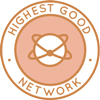 One Community is cooperatively building a world that works for everyone through open-source Highest Good Network® software which is a web-based application for collaboration, time tracking, and objective data collection. The purpose of the Highest Good Network is to provide software for internal operations and external cooperation. It is being designed for global use in support of the different countries and communities replicating the One Community sustainable village models and related components.
One Community is cooperatively building a world that works for everyone through open-source Highest Good Network® software which is a web-based application for collaboration, time tracking, and objective data collection. The purpose of the Highest Good Network is to provide software for internal operations and external cooperation. It is being designed for global use in support of the different countries and communities replicating the One Community sustainable village models and related components.
- Learn about our open-source community collaboration and management software: The Highest Good Network
This week, the core team continued their work on the Highest Good Network PRs testing, confirming the fixed PRs and resolving several issues. The confirmed fixes for several issues include adjusting formatting to reduce vertical space (#2750), implementing a MailChimp replacement (#2595), and improving load time when assigning a user to a project (#2727). Unresolved issues include the task column being too narrow, the table not stretching to the full page width on the PEOPLE REPORT PAGE UI for 375px and up (#2650), and the “Paused” and “Inactive” buttons appearing to duplicate functionality when adding a button to display paused tasks (#2817). Additionally, they reported an issue with a Core Team account not generating the correct required hours after accumulating more than five blue squares for failing to submit a Weekly Summary, and provided comments on PR#1104, questioning whether Core Team members should receive an additional required hour for their sixth blue square. We continue to focus on cooperatively building a world that works for everyone through iterative improvements and user-centric solutions. See the Highest Good Society and Highest Good Network pages for more on how this relates to cooperatively building a world that works for everyone. The collage below shows some of their work.
ALPHA SOFTWARE DEVELOPMENT TEAM
The Alpha Team’s summary, covering their work on the Highest Good Network software software was managed by Lin Khant Htel (Frontend Software Developer) and includes Carlos Gomez (Full-Stack Software Developer), Nanguan Lin (Software Developer), Rupa Rajesh Bhatia (Software Engineer), and Sheetal Mangate (Software Engineer). The Highest Good Network software is how we will manage and measure our processes for cooperatively building a world that works for everyone across our social architecture, construction, production, and maintenance processes. This week, Lin reviewed and approved PR #2880, enhancing understanding of the codebase and testing changes locally with all test cases passing. Lin also reviewed weekly summaries, photos, and videos from Alpha team members and assigned new tasks based on project priorities.
Carlos collaborated with Howard to address a time log submission issue, reconstructing frontend and backend code based on screenshots shared via Slack. Carlos also resolved an “Unknown operation GET_DATE” error in the front end by rebuilding the backend using specific npm commands. Nanguan focused on CreateNewBadgePopup.jsx, testing the implementation, and creating pull requests for solutions to identified errors. Nanguan also worked on WBS/WBSDetail/ImportTask/ImportTask.jsx, writing tests to ensure functionality. Rupa developed Pages 4, 5, and 6 for a multi-step form project, creating forms with sections for rating familiarity or interest in various design and review areas using React-controlled components. Definitely, cooperatively building a world that works for everyone requires incorporation of multiple components.
Rupa also managed state with onChange event handlers, implemented navigation with React Router, and applied custom CSS for consistent styling. She also reviewed summaries and evaluated work from Sheetal and Carlos, while gaining insights from Lin’s summary for learning purposes. Sheetal reviewed the monthlyDashboardDataReducer.js file to understand its functionality for writing test cases, including edge cases and various scenarios and monitored comments on PR #2876. See the Highest Good Society and Highest Good Network pages for more on how this relates to cooperatively building a world that works for everyone. View some of the team’s work in the collage below.
BINARY BRIGADE SOFTWARE DEVELOPMENT TEAM
The Binary Brigade Team’s summary overseeing advancements in the Highest Good Network software was managed by Vijay Anand Pandian (Full Stack Software Engineer) and includes Aaryaneil Nimbalkar (Software Developer), Anirudh Sampath Kumar (Software Developer), Ashish Nagaraju (Software Engineer), Ashmita Pandey (Software Engineer), Deepthi Kannan (Software Engineer), Huijie Liu (Software Engineer), Sandhya Adavikolanu (Software Developer), Sriram Seelamneni (Software Engineer), Xiaolu Li (Software Engineer) and Ziyu Chu (Volunteer Software Engineer). The Highest Good Network software is how we’ll be managing and objectively measuring our process for cooperatively building a world that works for everyone through our social architecture, construction, production, and maintenance processes.
This week, Aaryaneil developed unit tests for the userProjectMembersReducer, covering scenarios including returning the initial state when no action is provided, handling the GET_USER_PROJECT_MEMBERS action, and maintaining the current state for unknown actions. He also wrote tests for the wbsReducer, addressing cases such as returning the initial state for unknown actions and handling actions including FETCH_WBS_START, FETCH_WBS_ERROR, RECEIVE_WBS, ADD_NEW_WBS, ADD_NEW_WBS_ERROR, and DELETE_WBS. For the userTeamMembersReducer, he examined the initial state, the behavior of the GET_USER_TEAM_MEMBERS action, responses to unknown action types, and handling null states. Aaryaneil further validated the userProjectReducer by testing its ability to return the initial state, process the GET_USER_PROJECTS action, and preserve the current state for unknown action types. He also tested the userProfileByIdReducer.js reducer, focusing on initial state handling, actions such as GET_USER_PROFILE, EDIT_USER_PROFILE, CLEAR_USER_PROFILE, and GET_USER_TASKS, as well as verifying the functionality of the updateObject utility function and ensuring the original object remained unchanged. cooperatively building a world that works for everyone must also be validated using appropriate parameters.
Anirudh tested and verified multiple pull requests, focusing on functionality, edge cases, and bug fixes. He reviewed fixes for UI issues, such as the delete badge button on small screens (PR 2873) and user roles displayed in different modes (PR 2872). He validated unit tests for reducers like projectReportReducer (PR 2880) and timeEntriesReducer (PR 2871). Bug fixes included addressing the “Active” filter on the Projects page (PR 2865) and “Rehireable” status updates (PR 2866). He tested enhancements to the user setup process (PR 2881) and verified a status column addition (PR 2882). Anirudh also worked on a bug causing delays in reflecting account status changes on the User Management page, implementing a partial fix with ongoing work. Initiatives for cooperatively building a world that works for everyone need no delays to enhance effective implementation.
Ashish worked on Bug 1 from the Management Dashboard component, which involved adding a column header to a table. After completing the task, he submitted a pull request. He then began addressing Bug 37 in the Projects/Teams/Tasks/WBS component, which relates to an issue allowing the assignment of an end date earlier than the start date. Ashish reproduced the issue and is now in the process of analyzing and implementing the required code changes. Ashmita divided complex tasks into smaller sub-tasks, each designed to take between 40 and 60 hours to complete. She combined sections of the document to link each URL with its corresponding action items. Clear priorities were established, with a focus on urgent tasks such as building the basic framework. She identified task dependencies and sequenced work to align with the framework’s development. Uniformity is central when it comes to cooperatively building a world that works for everyone. Additionally, she reorganized the document into sub-sections to streamline task assignments and allow team members to claim tasks individually without delay.
Deepthi worked on optimizing the load performance of the earned dates feature in the featured badges section of the profile to improve functionality. She also addressed feedback on previous pull requests by implementing updates and corrections as needed. Additionally, she followed up with reviewers to facilitate re-reviews and progress toward merging the changes into the GitHub. Huijie has been mainly working on the subtask in the application page, which is the search by category function. Cooperatively building a world that works for everyone is effectively implemented in categories in order to accommodate many. She implemented the corresponding API in the backend to retrieve data and the frontend elements for the dropdown menu for users’ selection. She is now checking the redirect function for each job. Sandhya resolved a network error affecting an Axios GET request to the /volunteer stats endpoint, which retrieves data for Task Completion Analysis and Total Org Summary charts. She verified API configurations, tested with Postman, and used mock data to confirm the issue was API-related. Sandhya enhanced error handling with detailed messages and fallback mechanisms while collaborating with the backend team to address a date-parsing mismatch causing the error. After the fix, she retested the integration, ensured charts displayed real-time data, and added a loading spinner and retry logic for improved user experience.
Sriram focused on reviewing and addressing issues in an existing pull request related to sorting functionality in the Projects feature. He analyzed the previous code changes to understand the current behavior and worked on resolving bugs in the implementation. After encountering and resolving npm and Node version mismatch issues, he added the sort button to the project table, ensuring it updates as expected. Additionally, he reached out to the original author of the pull request to clarify requirements for sorting specific fields, such as “Edits,” to align the implementation with project expectations. Vijay reviewed several PRs, including adding a status column header in the Team Member Tasks tab (PR #2882), unit tests for the UserManagement.jsx file (PR #2762), and unit tests for the managingTeamsReducer file (PR #2876). He also reviewed changes that added user role display in the Tasks tab (PR #2872) and a fix for deleting badges under 1000px screen width (PR #2873). Vijay completed unit testing implementations for multiple files, including the weeklySummaryRecipientsReducer (PR #2884) and projectReportReducer (PR #2880). The shift in user role and responsiblities enahances cooperatively building a world that works for everyone.
Xiaolu completed unit tests for the ScheduleExplanationModal/ScheduleExplanationModal.jsx component. The tests validate the correct rendering of the modal title and content, ensure the proper display of the infringements list with dates and reasons, confirm the accurate rendering of time off requests, and verify that the “Close” button triggers the handleClose function. A new pull request was created for these updates. Ziyu began working on writing unit tests for a component: TimeOffRequestsTable/TimeOffRequestsTable.jsx. She created 5 test cases, providing mock data to ensure testing. These 5 tests passed on her local machine. Following this, Ziyu submitted a pull request for review. See the Highest Good Society and Highest Good Network pages for more on how this relates to cooperatively building a world that works for everyone. View some of the team’s work in the collage below.
BLUE STEEL SOFTWARE DEVELOPMENT TEAM
The Blue Steel Team’s summary, presenting their work on the Highest Good Network software was managed by Jingyi Jia (Software Engineer, Team Manager), and includes Dieu-Anh Trinh (Software Engineer), Ramakrishna Aruva (Software Engineer), and Supriya Sudini (MERN Stack Developer). The Highest Good Network software is how we’ll be managing and objectively measuring our process for cooperatively building a world that works for everyone through our social architecture, construction, production, and maintenance processes. This week, Ramakrishna resolved a bug related to data handling within a component. He delved into the data flow and manipulation logic to identify the root cause of the issue. After pinpointing the problem, he implemented a solution that effectively handles both active and inactive states, ensuring complete coverage.
Ramakrishna applied asynchronous programming techniques to enhance the efficiency and responsiveness of the application, conducting rigorous testing to confirm the reliability of the updates across all scenarios. Being responsive is an important factor in enhancing cooperatively building a world that works for everyone. Simultaneously, Jingyi resolved merge conflicts for PR #2804 and initiated a new pull request, PR #2890, to introduce a feature that prompts users for confirmation when logging intangible time, aimed at enhancing compliance with time tracking guidelines. In preparation for her impending departure, Jingyi updated all of her raised PRs with the latest development changes to avoid any potential bugs and ensure a seamless transition.
Additionally, Supriya enhanced the application’s header component by adding a conditional dropdown menu that only appears when navigating to specific project-related URLs. She implemented this feature using a React state hook to make the dropdown visible only under appropriate conditions, thereby improving the navigation’s context sensitivity and maintaining a clean interface. This dropdown provides direct access to detailed project information, improving user interaction and ensuring visual consistency across the application, including in dark mode settings. Dieu-Anh reviewed the unit test spreadsheet and found several issues, including an empty column H, missing “Route” sections, and incomplete “Has Unit Tests” entries despite task assignments. She identified inconsistent values in the “Has Unit Tests” column and recommended replacing it with a multiple-choice dropdown. See the Highest Good Society and the Highest Good Network pages to learn more on how their work contributes to cooperatively building a world that works for everyone. See below to view images of their work.
CODE CRAFTERS SOFTWARE DEVELOPMENT TEAM
The Code Crafters Team, covering their work on the Highest Good Network software, was managed by Summit Kaushal (Backend Software Developer) and includes Anoushka Gupta (Software Engineer), Ashrita Cherlapally (Software Engineer), Denish Kalariya (Software Engineer), Dhrumil Dhimantkumar Shah (Software Engineer), Humera Naaz (MERN developer), Muhideen Mustapha (Software Engineer), Muzammil Moahmmed (Software Engineer), Pavan Swaroop Lebakula (Software Engineer), Swaroop Udgaonkar (Software Engineer). The Highest Good Network software is how we’ll manage and objectively measure our process for cooperatively building a world that works for everyone through our social architecture, construction, production, and maintenance processes. This week, Swaroop updated the backend code by integrating changes from the development branch, modifying two files, writing three new functions, and adjusting three existing ones. He worked on improving screen layouts for iPads and smaller screens while researching alternative placement methods. Tasks included updating UserProfile infringements to include an array of reasons for blue square issuance and resolving placement issues for projects, people, and teams in the Reports section.
Summit debugged badge-assignment logic, focusing on streak drop-off issues, duplicate badge assignments, and cron job behaviors. He explored refactoring the code by adding conditions to verify badge eligibility and identifying edge cases requiring further testing. Anoushka tested badge functionalities, reviewed a bug document, and started developing a job search feature, implementing APIs to filter jobs by title, sort by recency, and retrieve summaries based on user interactions. Dhrumil resolved inaccuracies in the “Projects With Completed Hours” report and provided updates on pull requests during a team call. Cooperatively building a world that works for everyone is only achievable by maintaining accurate data and consistency in reporting. Humera reviewed the logic of the checkMostHrsWeek function to ensure proper badge count increments and new badge additions to MongoDB. She investigated a database error related to the myTeam schema, consulting teammates for insights. Muhideen tested multiple badge components using debugging tools and reviewed pull requests to verify bug fixes and implementations, covering various badge functionalities.
Denish addressed issues in the Volunteer Activities tab by refining the backend code to improve the retrieval and presentation of total volunteer hours, testing API calls, and debugging discrepancies in reported metrics. Pavan worked on the User Management page, adding a “Title” column and adjusting the “Role” column width, implementing changes across frontend and backend systems. Ashrita reviewed badge-related code changes to ensure proper functionality and debugged issues with the “Most Hours Worked” badge. She also began developing a badge management component to display user badge assignments, including features to view user details by hovering over badges. See the Highest Good Society and Highest Good Network pages for more on how this relates to cooperatively building a world that works for everyone. View some of the team’s work in the collage below.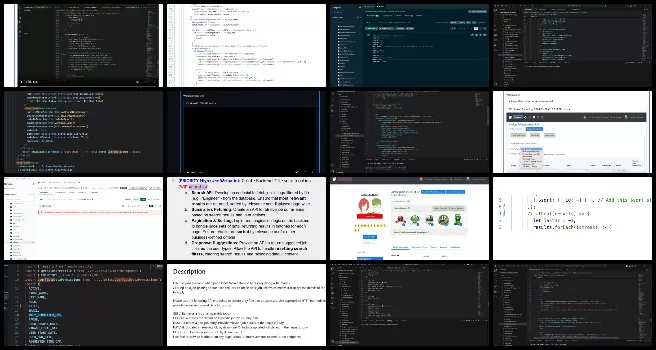
DEV DYNASTY SOFTWARE DEVELOPMENT TEAM
The Dev Dynasty Team’s summary, covering their work on the Highest Good Network software, was managed by Jatin Agrawal (Software Engineer) and includes Fangle Xi (Software Engineer), Nikita Kolla (Full Stack Developer), Nishita Gudiniye (Software Engineer), Sailavanya Narthu (Software Engineer), Shreya Vithala (Software Engineer) and Varun Elangovan (Software Engineer). The Highest Good Network software is how we’ll manage and objectively measure our process for cooperatively building a world that works for everyone through our social architecture, construction, production, and maintenance processes. This week, Fangle began researching the new API and discovered it may require support for company accounts and icons. The task is proving to be more complex than initially anticipated, especially since the API update cannot be directly used with account passwords for login. She has also been assisting a coworker with a code review. Jatin worked on implementing functionality to create various application question sets, developing both the frontend and backend components for the task. He created a customizable form to accommodate multiple job applications and prepared corresponding database models. Additionally, he wrote tests to ensure the models’ reliability and defined the necessary routes and controllers to support the feature.
Nishita worked on the “Team Stats – Comparison Needed” component in the total organization summary section, adding metrics to track and compare the number of users in teams versus those not in teams over time. She applied percentage changes, ensured data validation standards were met, refined data processing methods to improve the representation of team dynamics, and created a pull request for these changes. Nikita resolved issues with previously raised pull requests, addressing merge conflicts related to the React input components task and queries for the badge assignment task. She began work on a social media scheduler for Tumblr by researching the Tumblr API and developing an initial prototype for the component. Timed regular updates on the social media channel is a success factor in cooperatively building a world that works for everyone. Sailavanya addressed issues related to a blank page in the application caused by API token handling during CI builds, identifying the root cause by analyzing build logs and debugging the authentication flow. She updated token management logic to ensure proper handling in the CI pipeline, conducted testing to validate the fix, and documented additional failures in other components discovered during testing, providing recommendations for further analysis.
Shreya completed the User Management task by implementing sorting functionality to ensure newly added users appear at the top of the list upon refreshing, started a new Figma task as part of phase 3 documentation to work on prototyping designs, and verified the work of three team members in her role as a manager-in-training, reporting her assessments to Jatin. Varun verified the Anniversary Celebrated feature, which enables emails to be sent to individuals celebrating anniversaries, as well as the Global Volunteer Network Map feature, which displays a scalable map showing the locations of volunteers. He also updated all his findings in the Total Org Summary Google Sheets. See the Highest Good Society and Highest Good Network pages for more on how this relates to cooperatively building a world that works for everyone. View some of the team’s work in the collage below.
EXPRESSERS SOFTWARE DEVELOPMENT TEAM
The Expressers Team’s summary, covering their work on the Highest Good Network software, was managed by Christy Guo (Software Engineer) and includes Aishwarya Ramesh (Software Engineer), Faye Lyu (Software Engineer), Haoqing Zhu (Software Engineer), Howie Miao (Software Engineer), Rahul Trivedi (Software Developer), Reina Takahara (Software Developer), Shreya Laheri (Software Developer), and Strallia Chao (Software Engineer). The Highest Good Network software is how we’ll manage and objectively measure our process for cooperatively building a world that works for everyone through our social architecture, construction, production, and maintenance processes. This week, Aishwarya completed the showtrophyicon anniversaries functionality by implementing and integrating both frontend and backend logic. Christy worked on enhancing the ProjectTaskChart component in React, integrating features such as sorting tasks by date or hours and filtering tasks by completion status.
Faye addressed a BSON type bug, refactored code for improved efficiency, and validated pipeline updates using MongoDB and Postman. Haoqing focused on resolving formatting issues on the People Report page, specifically fixing bugs related to top alignment of components. Howie resolved a system date issue and implemented a hotfix to address actions in the development branch. Rahul advanced the HGN Form by finalizing Page 2 with various input types and started development on Page 3. Reina implemented tag management functionality and integrated Axios for handling HTTP requests. Shreya finalized phase 3 documentation by incorporating team feedback and organizing deliverables into actionable tasks. Strallia concentrated on backend tasks related to the Total Org Summary page. See the Highest Good Society and Highest Good Network pages for more on how this relates to cooperatively building a world that works for everyone. See the collage below to view the team’s work this week.
LUCKY STAR SOFTWARE DEVELOPMENT TEAM
The Lucky Star Team’s summary, covering their work on the Highest Good Network software, was managed by Anne Zhang (Software Engineer) and includes contributions from Chetan Sunku (Software Engineer), Koushica Bosadi Ulaganathan (Software Engineer), Nikhitha Kalinga (Software Engineer), T R Samarth Urs (Data Analyst), Vaibhavi Madhav Deshpande (Software Engineer), Yashwanth Pokala (Software Engineer) and Ziyan Wang (Software Engineer). This week, Chetan continued working on the issue related to time updates not automatically reflecting on the dashboard without a page reload, after completing a previous hotfix. He investigated the problem and sought assistance in the coding channel but did not receive any responses. Koushica worked on enhancing the functionality of the Dashboard’s Tasks tab by integrating Google Docs and Manager icons. She improved user interaction by adding distinct role colors, clickable profile links, and hover displays. She also reviewed and approved PR #2801, addressing issues with the Add Time Entry button and incorrect user profile data. Cooperatively building a world that works for everyone is automation-dependent for effective updates and dissemination.
Nikhitha resolved display issues in the Team Member Tasks section on smaller screens, fixing bugs where team member names were hidden and the section froze or shook during scrolling. She tested the changes under different user roles and across light and dark modes before submitting a pull request. Samarth managed a PR review team, evaluating their work, reviewing uploaded images, and providing feedback. He summarized the team’s work in a blog post, which included a collage of their images. Vaibhavi worked on action items for the HGN Phase III document, collaborating with teammates to define sub-deliverables and providing feedback to the UI team on integrating a poll tracking system in Figma. System tracking especially of tasks is important in enhancing cooperatively building a world that works for everyone.
Yashwanth focused on resolving bugs, fixing an issue with duplicate entries in the permission log table, and implementing design changes to improve its structure. He also addressed the “Missing Asterisk” bug and reviewed the overall implementation of the permission log feature. Ziyan identified and resolved an alignment issue with the Teams button and input field, traced the problem to a specific PR and code change, and updated the corresponding tasks in the documentation and the Phase 2 WBS Excel sheet. This week, Anne worked on fixing the member column filter bug in the Projects table, addressing an issue where the table could not be sorted by the number of active members. She encountered an error when clicking the sort button (ERR_INSUFFICIENT_RESOURCES) and attempted to resolve it using caching, but the issue persists. Anne also managed tasks within her team, Lucky Star, reviewed team photos and videos and submitted weekly summaries. Learn more about how the Highest Good Society and Highest Good Network measures and assists in cooperatively building a world that works for everyone in the Highest Good Network open source hub. The collage below shows a compilation of the work from this team.
MOONFALL SOFTWARE DEVELOPMENT TEAM
The Moonfall Team’s summary, covering their work on the Highest Good Network software was managed by Satya Shanthi Tadiparthi (Team Manager), and includes Bhavya Prakash (Software Engineer), Calvin Liu (PR Team), Navya Sri Ankireddy (PR Team), Newell Newell (PR Team I-N), Nikhil Giri (Software Engineer), Rachana Zha (Software Engineer), Rashmitha Yadav (Software Engineer), Shashank Kumar (Software Engineer), Swathi Dharma Sankaran (Software Engineer), Vedant Gandhi (Software Engineer), and Yili Sun (Software Engineer). This week, Bhavya reviewed documentation to identify potential tasks and explored different schemas. She engaged the community forum to address a lead badge bug, while examining the GitHub repository for insights and testing solutions. Calvin submitted materials for One Community Global recognition and worked on optimizing system performance. He addressed Bug 21, involving the “Add Intangible Time Entry” feature. Navya implemented a new “Tracking Button” permission for advanced management and positioned it under “User Management” to enhance access control and streamline updates. Newell updated PHP from 8.2 to 8.3 and resolved WordPress plugin issues. He completed backend development for a leaderboard system and achieved a website benchmark score of 100.
Nikhil addressed frontend and backend issues related to the “Add New User” popup by implementing toast notifications and asynchronous email operations, while analyzing PR conflicts and resolving layout issues on the Project Report Page. Rachana worked on implementing gzip compression in an Express.js application and created a GitHub branch for the enhancement. She assisted with workspace setup issues. Rashmitha reviewed multiple PRs and tested implemented features. She uploaded related screenshots. Satya reviewed and tested PRs for functionalities like TimeOffRequestsTable and User Management, managed team summaries, and reported on weekly progress. Shashank resolved a button alignment issue and tested the “Final Day” button but delayed the PR due to pending clarifications. Swathi addressed a UI jump issue in the tasks module by updating JavaScript and CSS and ensured resource alignment. She updated headers to display project names dynamically. Vedant fixed a dark mode issue in the project delete modal and raised a related pull request. He addressed test failures. Yili resolved issues affecting non-Owner/Admin accounts with edit permissions, fixed related unit tests, resolved merge conflicts, and addressed freezing issues caused by active buttons. See the Highest Good Society and Highest Good Network pages for more on how this relates to cooperatively building a world that works for everyone. Below is a collage for the team’s work.
REACTONAUTS SOFTWARE DEVELOPMENT TEAM
Reactonauts’ Team’s summary, covering their work on the Highest Good Network software, was managed by Vijeth Venkatesha (Software Engineer) and includes Dhairya Mehta (Software Engineer), Gmon Kuzhiyanikkal (Software Engineer), Haoyue Wen (Software Engineer), Khushi Jain (PR Team I-N), Mohan Gadde (Software Engineer), Nikhil Pittala (Software Engineer), Pallavi Thorat (PR Team O-Sh), Peterson Rodrigues (Full-Stack MERN Stack Developer), Rishitha Mamidala (Software Engineer), Saniya Farheen (Software Engineer), Sharadha Shivakumar (Software Engineer), and Vikram Badhan (Software Engineer). This week, Dhairya worked on the “Fix Projects find user function” task and identified the root cause of an issue affecting user discovery in the projects section. She developed a sort and search function to optimize user assignment processes. Gmon addressed the addition of bell notifications for task deadlines and resolved 404 errors. He completed work on adding active/inactive team numbers in the team page and created a new pull request (PR 2850) while awaiting final approval for PR 2609. Haoyue enhanced the FAQ tool by improving user search functionality and created a structured database for FAQs. She implemented features to log unanswered questions, send email notifications, and configure permissions. Khushi reviewed and updated the Phase 3 document by resolving comments, integrating feedback, and collaborating with team members to ensure accuracy and clarity in both content and visuals.
Mohan optimized the project list’s organization and resolved visibility toggle issues in user profiles. He addressed merge conflicts related to the team auto-save feature. Nikhil reviewed 12 pull requests involving frontend, backend, and unit testing tasks to ensure code quality and functionality. He made updates to the removeTaskFromUser function, focusing on simplifying logic, refining mapping, and improving integration between frontend and backend systems. Peterson improved the “My Team” filter in the “Leaderboard” table by enhancing the dropdown menu’s appearance, scroll functionality, and team member display. Rishitha implemented a percentage toggle feature for the People Report and added tooltips. She enhanced the display of percentage labels in charts. Saniya resolved a bug and submitted relevant screenshots and recordings. She requested Git access to create a pull request. Sharadha addressed a screen-shaking issue in the team member task section for smaller screens and verified functionality across user roles and devices. She created PR 2888. Vijeth identified load delay issues and data retention problems when switching dashboards. He conducted meetings, gathered updates, and managed team operations. See the Highest Good Society and Highest Good Network pages for more on how this relates to cooperatively building a world that works for everyone. Below is a collage for the team’s work:
SKYE SOFTWARE DEVELOPMENT TEAM
Skye Team’s summary covering their work on the Highest Good Network was managed by Rishabh Rao (Administrator) and Luis Arevalo (Software Engineer) and the team includes Abi Liu (Software Developer), Laura Cohen (Software Engineer), Sai Preetham (Full Stack Developer), Snehal Dilip Patare (Software Engineer), Yao Wang (Software Engineer) and Zhimin Liang (Full Stack Developer). The Highest Good Network software is how we’ll manage and objectively measure our process for cooperatively building a world that works for everyone through our social architecture, construction, production, and maintenance processes.
This week, Abi worked on debugging a query that, while no longer throwing errors, was still not returning correct results. He focused on researching, analyzing the problem, and consulting documentation to achieve a non-error response and identify potential solutions. Additionally, he reviewed and merged pull requests submitted by teammates to ensure smooth integration of their changes into the project. Laura finalized hard-coding the permission presets file to address back-end authorization issues and integrated it into the permission change modal by updating useEffects and related functions. She met with her manager to troubleshoot back-end issues and decided to update the back-end herself to resolve problems affecting the front end. Laura also fixed minor modal bugs to improve user-friendliness, reached her 80-hour milestone to qualify as an official team member, and completed her bio for the website by cooperatively building a world that works for everyone.
Yao worked on addressing a 401 error code associated with a LinkedIn post feature by analyzing router and controller implementations with input from the team lead, although the issue remained unresolved. Yao also started testing environment variables and implementing schedule posts and posts with media functionalities. Snehal resolved a merge conflict for PR2801, which was delayed by site performance issues and is now awaiting approval, addressed a failing test case in member.test.jsx for PR2862 with all test cases now passing and pending approval, and began developing a new feature to generate an auto-poster for Facebook and Facebook groups for cooperatively building a world that works for everyone.
Zhimin focused on front-end development for the YouTube auto-poster project, implementing components to interact with the backend. While working on the front end. Zhimin identified logic errors in the backend and plans to address these issues while connecting the front end and back end to ensure functionality. Sai Preetham worked on pull requests #2816 and #2864, resolving merge conflicts and fixing issues with the search functionality per project requirements, verifying that updates worked as intended. Sai also prepared the weekly summary and organized Dropbox images for the project cooperatively building a world that works for everyone’s documentation.
Luis worked on creating new warnings and making adjustments to the “get special warnings” route to ensure compatibility with updated data. He implemented functionality that allows users to assign warnings based on the button clicked, accounted for the current user’s warnings, and made adjustments for issuing a blue square and a warning. Additionally, he began working on functionality for a button that issues warnings for both “no summary” and “not enough hours.” See the Highest Good Society and the Highest Good Network pages to learn more about how their work contributes to cooperatively building a world that works for everyone. See below for the work done by the group.
SOFTWARE PR REVIEW TEAM A-K
The PR Review Team’s summaries for team members’ names starting with A-K and covering their work on the Highest Good Network software was managed by Anoushka Hazari (Data Analyst). The Highest Good Network software is a foundation of what we’ll be using to measure our results for cooperatively building a world that works for everyone. This week’s active members of this team were: Abdelmounaim Lallouache (Software Developer), Carl Bebli (Software Engineer) and Kurtis Ivey (Full Stack Developer). They reviewed all the Highest Good Network PRs (Pull Requests) shared in this week’s update. Learn more about how the Highest Good Network will measure and assist in cooperatively building a world that works for everyone in the Highest Good Network open source hub. The collage below shows a compilation of the work from this team.
SOFTWARE PR REVIEW TEAM L-Sg
The PR Review Team’s summary for team members’ names starting with L-Sg and covering their work on the Highest Good Network software was managed by Saumit Chinchkhandi (Administrative Assistant and Software Engineer). The Highest Good Network software is a foundation of what we’ll be using to measure our results of cooperatively building a world that works for everyone. This week’s active members of this team were: Nahiyan Ahmed (Full Stack Software Developer), Nathan Hoffman (Software Engineer), and Pratyush Prasanna Sahu (Software Engineer). They reviewed all the Highest Good Network PRs (Pull Requests) shared in this week’s update. Learn more about how the Highest Good Network measures and assists in cooperatively building a world that works for everyone in the Highest Good Network open source hub. The collage below shows a compilation of the work from this team.
SOFTWARE PR REVIEW TEAM Sh-Z
The PR Review Team’s summary for team members’ names starting with Sh-Z and covering their work on the Highest Good Network software was managed by Olawunmi “Ola” Ijisesan (Administrative and Management Support) and Samarth Urs (Administrative Assistant and Data Analyst). The Highest Good Network software forms the foundation for measuring our results in cooperatively building a world that works for everyone. This week’s active members of this team were: Sujith Reddy Sudini (Mern Stack Developer, Full Stack Developer, Software Developer) and Neeharika Koniki (Software Engineer, Developer). They reviewed all the Highest Good Network PRs (Pull Requests) shared in this week’s update. Learn more about how the Highest Good Network will measure and assist in cooperatively building a world that works for everyone through the Highest Good Network open-source hub. The collage below shows a compilation of the work from this team.
AND WE PRODUCED THIS WEEKLY UPDATES BLOG – CLICK HERE TO SUBSCRIBE
FOLLOW ONE COMMUNITY’S PROGRESS (click icons for our pages)
INVESTOR PAGES
GET INVOLVED
DONATE | WAYS ANYONE CAN HELP | MEMBERSHIP
CLICK HERE FOR ALL PAST UPDATES
One Community Welcomes Sai Preetham Dongari to the Software Development Team!
Posted on November 25, 2024 by One Community Hs
One Community welcomes Sai Preetham Dongari to the Software Development Team as our newest Volunteer/Consultant!
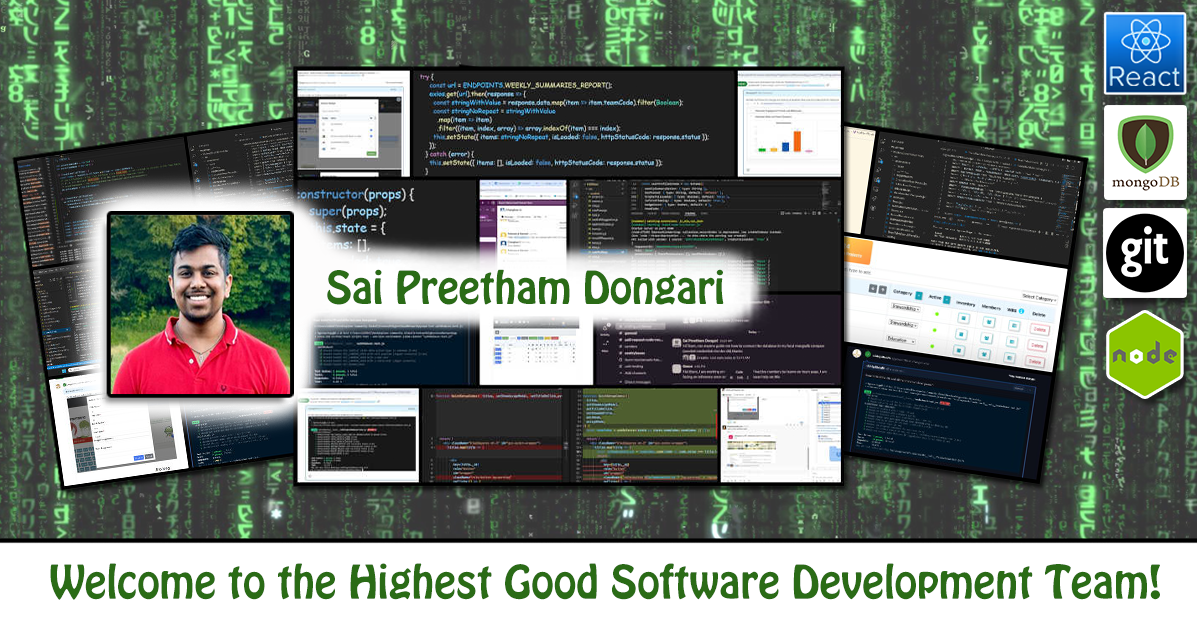
Sai Preetham is a versatile and highly skilled software developer with expertise in Python, Java, Spring, Spring Boot, Docker, Hibernate, Jenkins, React.js, Node.js, Express.js, MongoDB, Angular, Redis, MySQL, AWS, and agile methodologies. He has successfully built seamless, scalable solutions by integrating robust front-end and back-end systems. His contributions at One Community and working on the Highest Good Network include delivering impactful features like archive/unarchive functionality, advanced search capabilities, and enhanced state management, along with comprehensive time log tracking, seamless API integration, and UI/UX improvements. Sai Preetham actively reviews 5-10 pull requests (PRs) weekly across both front-end and back-end, ensuring high code quality and smooth integration.
WELCOME TO THE TEAM SAI PREETHAM!
FOLLOW ONE COMMUNITY’S PROGRESS (click icons for our pages)
INVESTOR PAGES
GET INVOLVED
One Community Welcomes Reina Takahara to the Software Development Team!
Posted on November 23, 2024 by One Community Hs
One Community welcomes Reina Takahara to the Software Development Team as our newest Volunteer/Consultant!
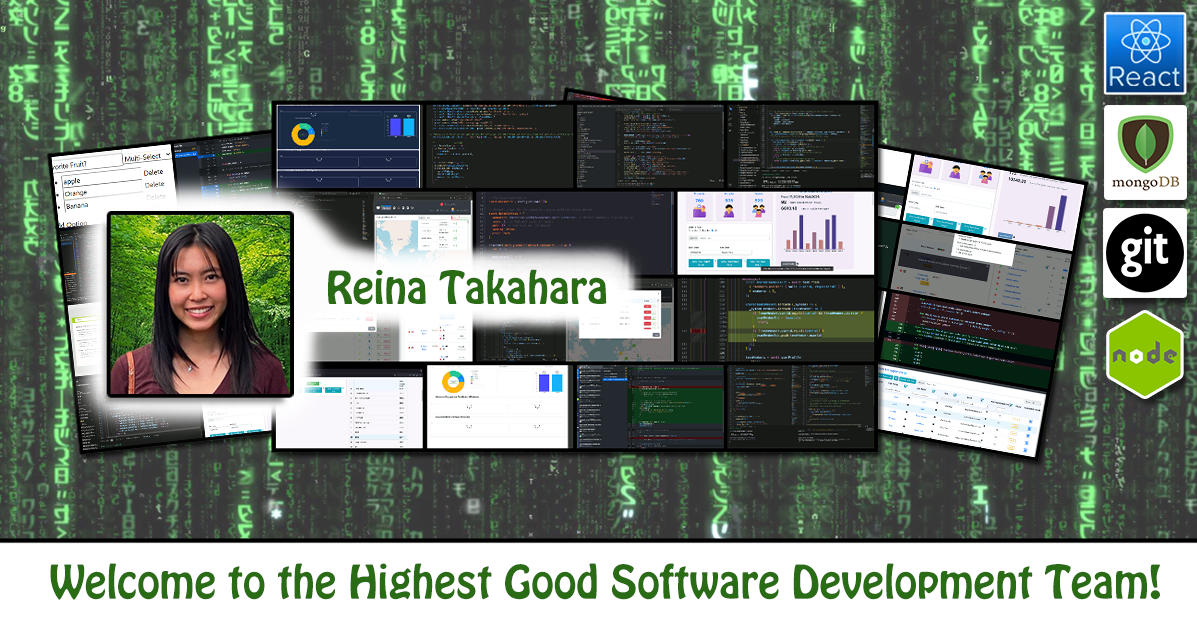
Reina is currently a senior at Oregon State University, majoring in Computer Science with a focus in Web and Mobile Development. Over the course of her studies, she has completed advanced coursework in areas such as Web Development, Cloud Applications, and Database Management Systems. She has also gained valuable practical experience through internships and tutoring roles in full-stack development at organizations like Huntington Ingalls Industries, the National Security Agency, and Oregon State University. As a member of the One Community Highest Good Network software team, Reina began by writing algorithms to efficiently sort and filter lists, including team codes, badges, and dates. Later, she shifted her focus to front-end development, working on features such as permission management, which enabled users to delete their own time entries. This project also gave her hands-on experience with backend systems and database integration.
WELCOME TO THE TEAM REINA!
FOLLOW ONE COMMUNITY’S PROGRESS (click icons for our pages)
INVESTOR PAGES
GET INVOLVED
One Community Welcomes Anil Karathra to the Mechanical Engineering Team!
Posted on November 23, 2024 by One Community Hs
One Community welcomes Anil Karathra to the Mechanical Engineering Team as our newest Volunteer/Consultant!
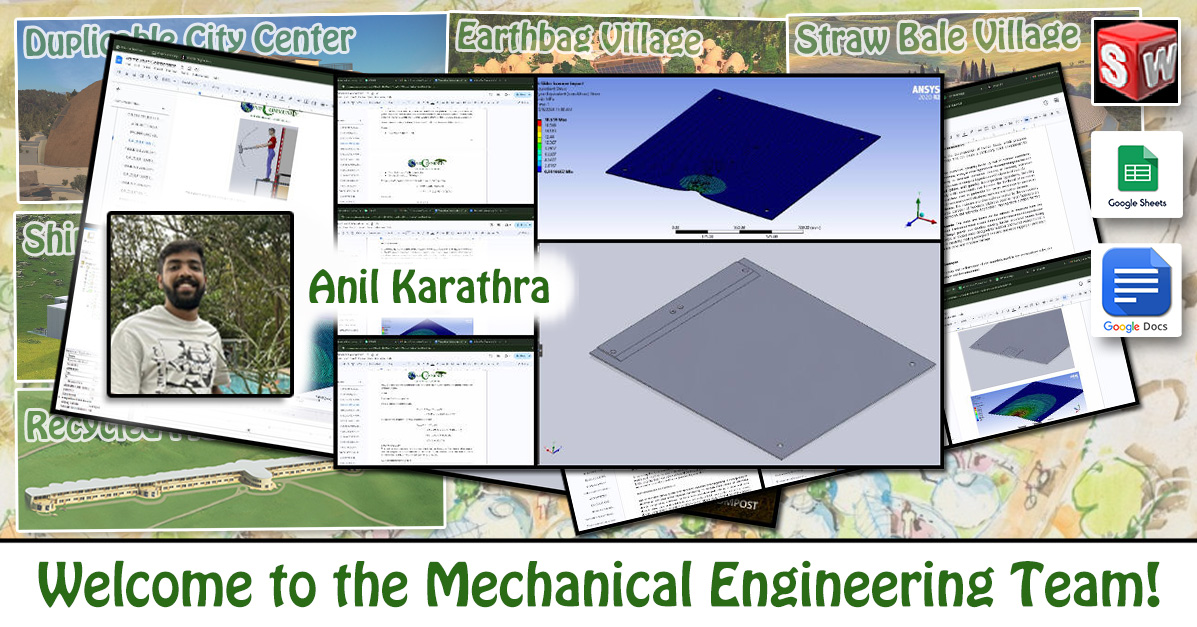
Anil has over 2 years of experience across various mechanical engineering disciplines, including product design, prototyping, and process improvement. He has demonstrated success in leading cross-functional teams and working in fast-paced environments on complex engineering projects. Anil believes in designing efficient systems that optimize resources and contribute to sustainability, with a focus on improving manufacturability and reducing costs. As part of the One Community team, Anil is responsible for mechanical design verification, creating engineering documentation standards, and currently leads the Vermiculture Toilet design team.
WELCOME TO THE TEAM ANIL!
FOLLOW ONE COMMUNITY’S PROGRESS (click icons for our pages)
INVESTOR PAGES
GET INVOLVED
One Community Welcomes Arnob Mutsuddi to the Mechanical Engineering Team!
Posted on November 23, 2024 by One Community Hs
One Community welcomes Arnob Mutsuddi to the Mechanical Engineering Team as our newest Volunteer/Consultant!
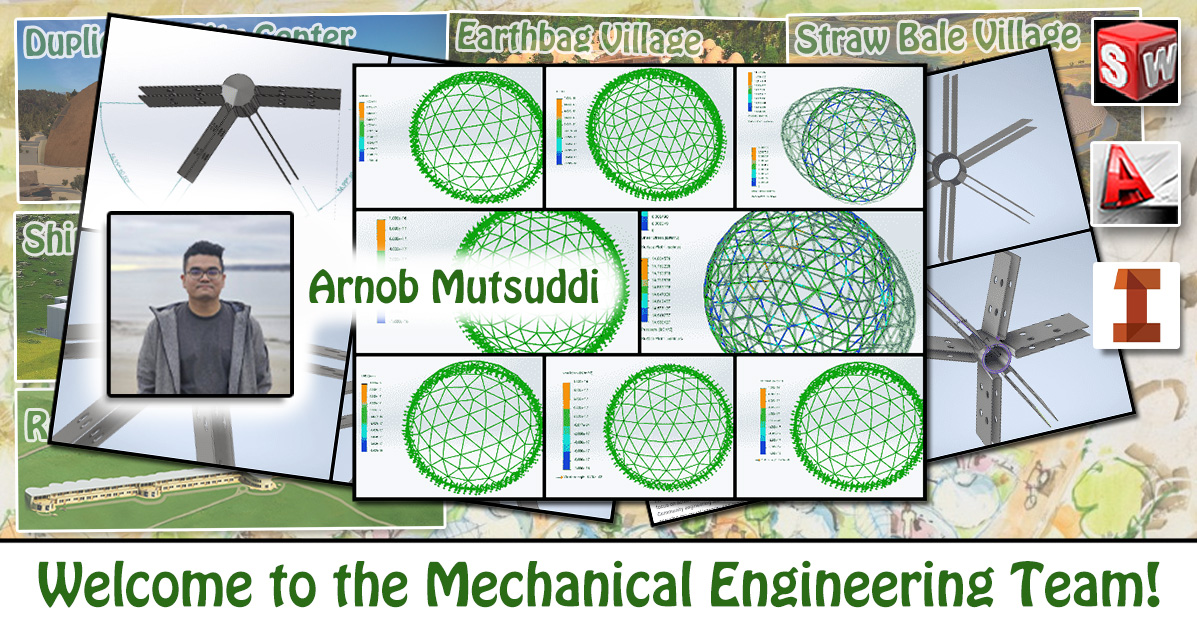
Arnob is a mechanical engineer with 3 years of hands-on experience in CAD software such as SolidWorks and AutoCAD, alongside proficiency in FEA tools like Ansys. He has a solid track record in product development, specializing in structural, CFD, and thermal analysis. Arnob excels in the design and optimization of mechanical systems, with a strong focus on achieving both high performance and safety standards. As a key contributor to the One Community engineering team, Arnob led the mechanical design efforts for geodesic domes, ensuring structural integrity and optimizing load-bearing capacity. He leveraged 3D CAD platforms, including Autodesk Inventor and SolidWorks, to produce detailed models of structural components and mechanical systems. As a member of the One Community team, Arnob is overseeing the prototyping and testing, conducting comprehensive stress analyses and selecting appropriate materials for the Duplicable City Center metal hub connectors, ensuring they meet rigorous safety and performance criteria.
WELCOME TO THE TEAM ARNOB!
FOLLOW ONE COMMUNITY’S PROGRESS (click icons for our pages)
INVESTOR PAGES
GET INVOLVED
One Community Welcomes Viktoriia Zakharova to the Administration Team!
Posted on November 23, 2024 by One Community Hs
One Community welcomes Viktoriia Zakharova to the Administration Team as our newest Volunteer/Consultant!
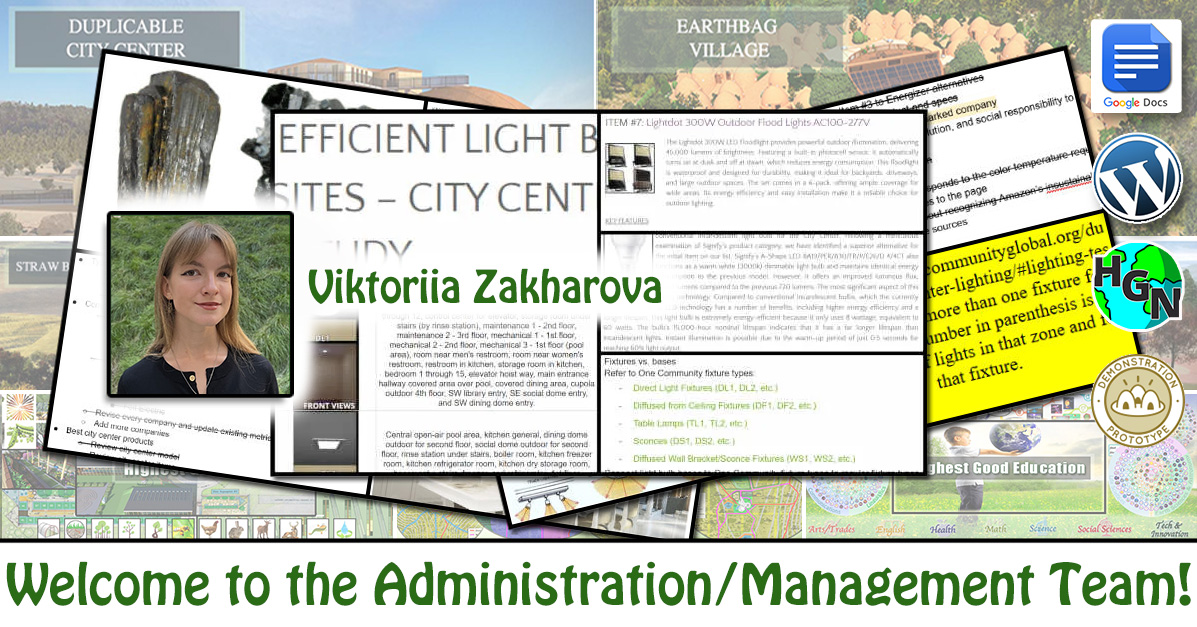
Viktoriia is a college graduate with four years of project management experience in sustainability and technology. She has demonstrated flexibility and commitment in working on complex projects that address intersectional challenges in technology and environmental research. Viktoriia believes in the importance of considering social and economic factors in environmental issues while prioritizing integrity in goal-setting and developing effective climate crisis solutions. Her passions include leveraging technology for social and environmental good, community organizing, and waste management and she aims to support her academic interests in environmental issues with hands-on professional experience in the sustainability field. As a member of the One Community team, Viktoriia has contributed as a team administrator and to completing research on the Most Sustainable Lightbulbs and Light Bulb Companies and lighting fixtures and companies.
WELCOME TO THE TEAM VIKTORIIA!
FOLLOW ONE COMMUNITY’S PROGRESS (click icons for our pages)
INVESTOR PAGES
GET INVOLVED
One Community Welcomes Tasmia Hasan to the Mechanical Engineering Team!
Posted on November 23, 2024 by One Community Hs
One Community welcomes Tasmia Hasan to the Mechanical Engineering Team as our newest Volunteer/Consultant!
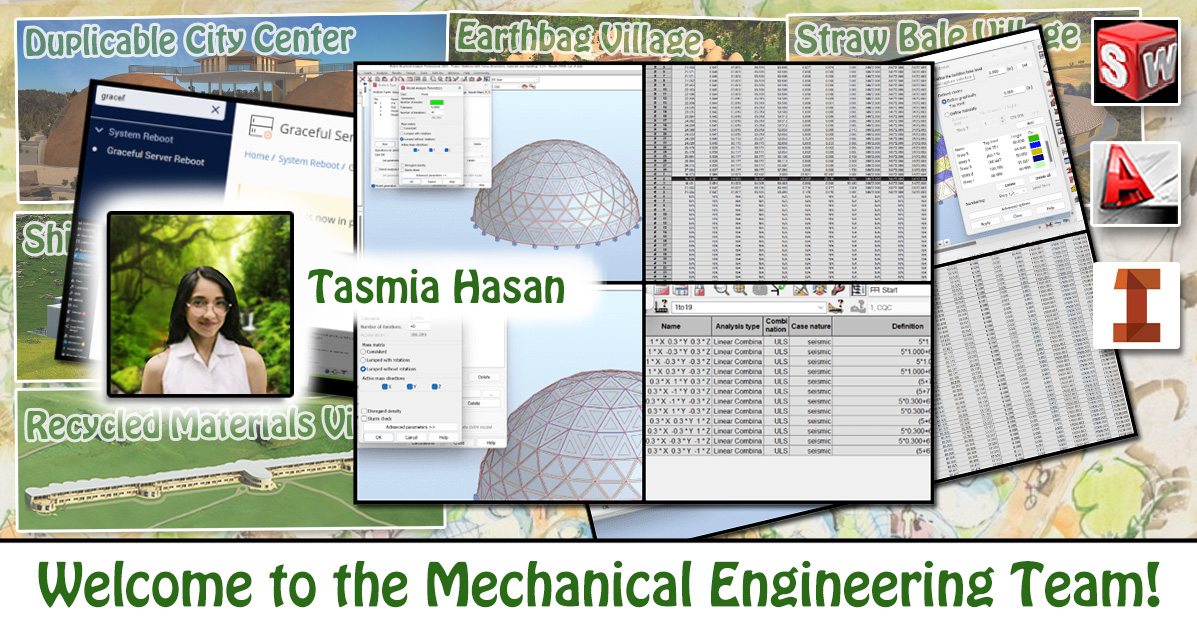
Tasmia has about one year of professional experience in the engineering space, spanning various projects, from engineering design to analytics. She thrives in technical environments where she can contribute to innovative solutions and values collaboration with peers and mentors. She is passionate about sustainability and believes in the importance of integrating environmentally conscious engineering practices. At One Community, she has contributed to the Duplicable City Center project, conducting analyses on structural designs, including load and seismic testing, and looks forward to continuing her work on such engaging projects.
WELCOME TO THE TEAM TASMIA!
FOLLOW ONE COMMUNITY’S PROGRESS (click icons for our pages)
INVESTOR PAGES
GET INVOLVED
Thanks for your Contributions to our Software Development Team Ambika Kabra!
Posted on November 21, 2024 by One Community Hs
One Community thanks Ambika Kabra for her contributions as a Volunteer/Consultant on the Software Development Team!
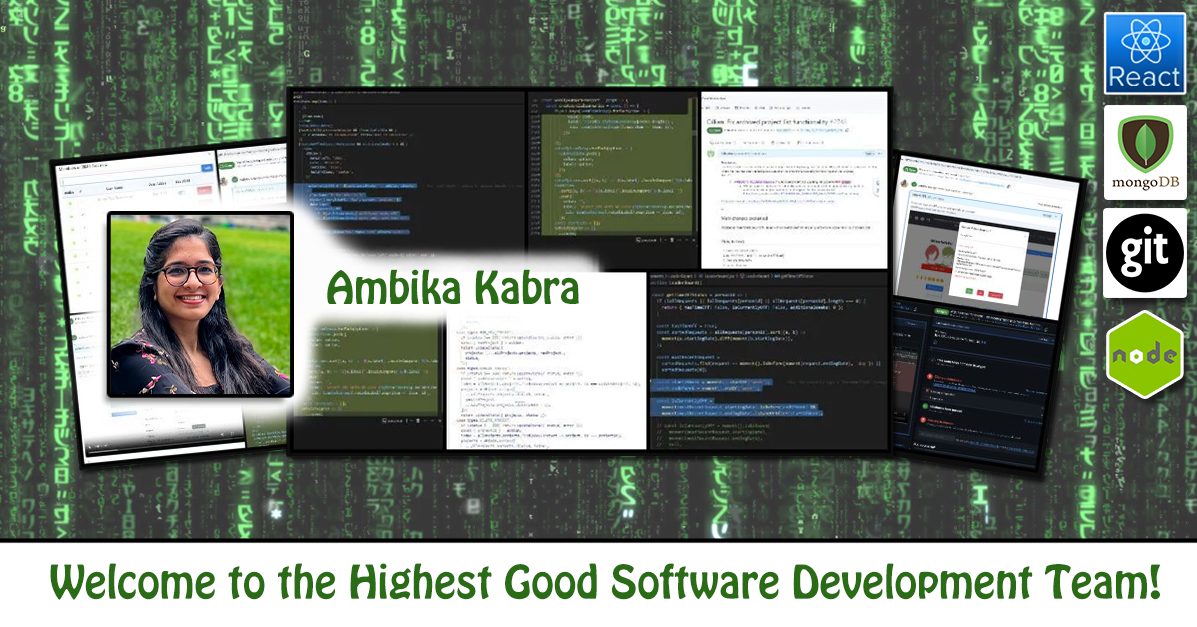
Ambika has over 5 years of professional experience in software development and holds a Master of Science in Computer Science degree from Northeastern University. She has demonstrated success in optimizing and modernizing large-scale systems, including refactoring codebases and implementing features that enhance user experience. Ambika is skilled in programming languages such as Java and JavaScript, and frameworks like Node.js, React, and Spring Boot. She specializes in developing and maintaining scalable, responsive, and user-friendly web applications. She is a proven collaborator and proactive team player who values continuous learning and collective growth. She believes in leveraging technology to create meaningful, positive impact and is passionate about sustainability. While a member of the One Community team working on the Highest Good Network software, Ambika has contributed by implementing security improvements, enhancing the volunteer time tracking system, and optimizing workflows for core teams.
WELCOME TO THE TEAM AMBIKA!
FOLLOW ONE COMMUNITY’S PROGRESS (click icons for our pages)
INVESTOR PAGES
GET INVOLVED
One Community Welcomes Satya Shanthi to the Software Development Team!
Posted on November 20, 2024 by One Community Hs
One Community welcomes Satya Shanthi to the Software Development Team as our newest Volunteer/Consultant!
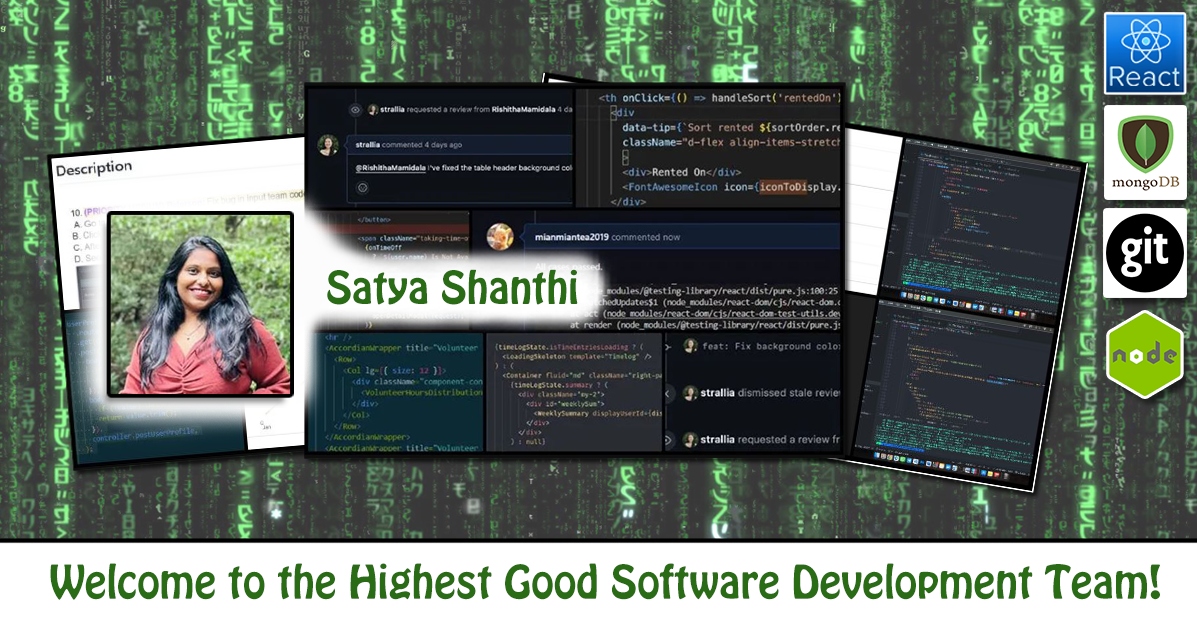
Satya, a Full-Stack Developer, has 3 years of experience specializing in JavaScript, React, Java, and backend technologies like Node.js, Express, and Spring. A strong believer in efficiency and user-centered design, she has developed seamless and efficient web applications, including a personal budget tracker available on GitHub, which helps users effectively manage their finances with an intuitive and easy-to-use interface. Known for a calm and polite demeanor, Satya is always eager to learn new technologies to enhance technical skills, build innovative solutions and deliver scalable, robust applications. Her portfolio, which includes professional experience and all key projects, can be found here. As a member of the One Community team, she has contributed to creating dynamic solutions on Highest Good Network software, focusing on optimizing the layout of the Teams page and addressing responsive design issues to ensure better functionality across different screen sizes.
WELCOME TO THE TEAM SATYA!
FOLLOW ONE COMMUNITY’S PROGRESS (click icons for our pages)
INVESTOR PAGES
GET INVOLVED
Ongoing Path to Making No-Impact Living Mainstream – One Community Weekly Progress Update #609
Posted on November 18, 2024 by One Community Hs
At One Community, we are creating an ongoing path to making no-impact living mainstream to regenerate our planet and create a world that works for everyone. Our all-volunteer team is focused on sustainable approaches to food, energy, housing, education, economics, and social architecture. By open sourcing and free sharing the complete process, we aim to build a self-replicating model that inspires a global collaboration of teacher/demonstration hubs, all for “The Highest Good of All.” Together, we are evolving sustainability and fostering global stewardship practices that promote fulfilled living and lasting positive change.
- Here’s our ongoing path to making no-impact living mainstream project overview
- Here’s our world-change methodology
- Here’s how this becomes self-replicating
- Here’s how we are open source and free-sharing all the do-it-yourself designs
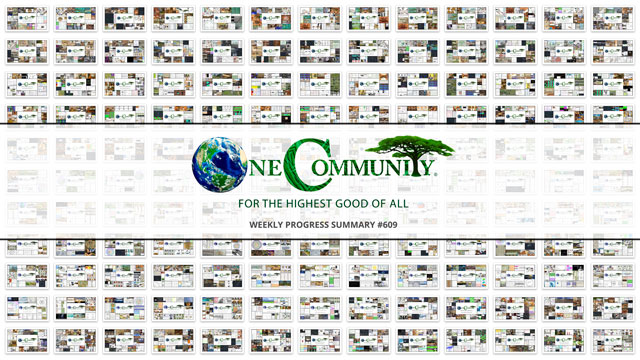
OUR MAIN OPEN SOURCE HUBS OF THE ONGOING PATH TO MAKING NO-IMPACT LVING MAINSTREAM
Click on each icon to be taken to the corresponding Highest Good hub page.
One Community’s physical location will forward this movement and ongoing path to making no-impact living mainstream as the first of many self-replicating teacher/demonstration communities, villages, and cities to be built around the world. This is the November 18th, 2024 edition (#609) of our weekly progress update detailing our team’s development and accomplishments in the ongoing path to making no-impact living mainstream.
Ongoing Path to Making
No-Impact Living Mainstream
One Community Progress Update #609
DONATE | COLLABORATE | HELP WITH LARGE-SCALE FUNDING
CLICK HERE IF YOU’D LIKE TO RECEIVE AN EMAIL EACH WEEK WHEN WE RELEASE A NEW UPDATE
YOU CAN ALSO JOIN US THROUGH SOCIAL MEDIA
ONE COMMUNITY WEEKLY UPDATE DETAILS
HIGHEST GOOD HOUSING PROGRESS
 One Community is creating an ongoing path to making no-impact living mainstream through Highest Good housing that is artistic and beautiful, more affordable, more space efficient, lasts longer, DIY buildable, and constructed with healthy and sustainable materials:
One Community is creating an ongoing path to making no-impact living mainstream through Highest Good housing that is artistic and beautiful, more affordable, more space efficient, lasts longer, DIY buildable, and constructed with healthy and sustainable materials:
- Learn about the crowdfunding campaign part of this ongoing path to making no-impact living mainstream: Our Upcoming Crowdfunding Campaign
- Learn about the different village models: 7 Sustainable Village Models
- Visit the open source portals for the first two villages as parts of this ongoing path to making no-impact living mainstream: Earthbag Village OS Hub | Straw Bale Village OS Hub
This week, Adil Zulfiquar (Engineer) continued working on the Vermiculture Toilet engineering and designs for an ongoing path to making no-impact living mainstream. He focused on the Vermiculture Transportation Solutions Report, involving revisions to include additional resources, references, and detailed information on vermiculture structures, along with the addition of relevant images. The section on narrow-body trailers was expanded, titles were reorganized for better clarity, and formatting adjustments were made to enhance readability and presentation. The Earthbag Village is the first of 7 to be built as the housing component of One Community’s open source model for an ongoing path to making no-impact living mainstream. See below for some of the pictures related to work.
Akshit Sethi (Architectural Designer) continued working on updating the Earthbag Village SketchUp and AutoCAD layouts. Akshit updated the base drawing set for the EarthBag Village essential in the ongoing path to making no-impact living mainstream, refining layers for improved readability, and preparing the drawings for publication. He shared the updated PDFs and AutoCAD files with the team for alignment and worked on finalizing the 3D model based on the revised CAD file, focusing on completing the final details to achieve a cohesive design. The Earthbag village is the first of 7 villages to be built as part of One Community’s open source model for an ongoing path to making no-impact living mainstream. See his work on the in the collage below.
Anil Karathra (Mechanical Engineer) continued helping complete the Vermiculture Toilet engineering and designs. He focused on creating and uploading weekly summaries with screenshots, and final adjustments were made to the vermiculture collaboration document. The master task list was updated to include new team members in the ongoing path to making no-impact living mainstream. The collaboration document was reorganized and reformatted to integrate research findings from Adil and refined based on recent feedback. A weekly team meeting was attended, and the slider FEA analysis was redone as a multi-step process to capture a stress-strain curve, with the analysis incorporated into the document. Additionally, documentation was edited based on suggestions from Manjiri, and work commenced on compiling a spreadsheet for the bill of materials. The approach for an ongoing path to making no-impact living mainstream enables the development of innovative solutions that are both environmentally friendly and effective. See below for some of the pictures related to the work.
Avery Hamilton (Mechanical Designer) continued working on finalizing the interior of the Earthbag Village 4-dome home design as a strategy for the ongoing path to making no-impact living mainstream. Avery added a floor drain for the spa space and a wall hydrant for the spa equipment. He integrated family types into Revit to generate schedules for new fixtures, routed refrigerant lines for mini-split systems, created details for pipe penetrations, and reselected the range hood. The Earthbag village is the first of 7 villages to be built as part of One Community’s open source model for an ongoing path to making no-impact living mainstream. See the work in the collage below.
Charles Gooley (Web Designer) continued working on the Aircrete Engineering and Research: Compression Testing, Mix Ratios, R-value, and More page. Charles updated the Aircrete Engineering and Research page focused on compression testing, mix ratios, R-value, and related topics. He documented the engineering processes, research, resources, and tools used to validate the safety of discrete designs and structures key in the ongoing path to making no-impact living mainstream. Tasks included verifying that no content was lost after a website crash and linking the tables of contents using anchor links for the Initial Trial Phase and Final Testing Phase sections. Aircrete is an alternative we’re exploring for the Earthbag Village, a foundational part of One Community’s open-source model for an ongoing path to making no-impact living mainstream. Take a look at some of the work in the images below.
Joseph Osayande (Mechanical Engineer) continued helping finish the Vermiculture Toilet engineering and design details. Joseph focused his efforts on revising the ongoing path to making no-impact living mainstream; main document for the Waste Removal System (WRS), including updates to values, enhanced readability, and the addition of diagrams to illustrate key concepts and support the design phase. Considerations were documented regarding potential external forces that might impact the connection to the main chamber, addressing any remaining concerns before moving forward with the build. The Earthbag Village is the first of 7 to be built as the housing component of One Community’s open source model for an ongoing path to making no-impact living mainstream. See some of his work in the collage below.
Karthik Pillai (Mechanical Engineer) continued helping finish the Vermiculture Toilet engineering and helping with the Earthbag Village 4-dome home roof plan. Karthik focused on the four-dome cluster roof project, addressing key structural elements central in the ongoing path to making no-impact living mainstream. He completed live load calculations and corrected discrepancies from a previous finite element analysis that used incorrect load values to ensure alignment with project requirements. Additionally, he refined the roof design with guidance from Michaela to enhance functionality and performance. Progress was also made on the vermiculture toilet design project, with ongoing adjustments to meet design specifications and improve operational effectiveness. The Earthbag Village is the first of 7 to be built as the housing component of One Community’s open source model for an ongoing path to making no-impact living mainstream. See the work in the collage below.
Michaela Silva (Architect) continued working on finalizing the interior details for the Earthbag Village 4-dome home design. Michaela facilitated meetings with Avery to address MEP (Mechanical, Electrical, and Plumbing) issues and with Karthik to review roof design details. She suggested positioning the mini-split units above bedroom doors to enable the ongoing path to making no-impact living mainstream routing refrigerant lines and power through the ceiling and into the main roof structure via a bump-out in the loft space. Additionally, she researched options for the roof deck finish and reviewed relevant structural codes. The Earthbag Village is the first of 7 villages to be built as part of One Community’s open source model for an ongoing path to making no-impact living mainstream. See her work in the collage below.
DUPLICABLE CITY CENTER PROGRESS
 One Community is creating an ongoing path to making no-impact living mainstream through a Duplicable and Sustainable City Center that is LEED Platinum certified/Sustainable, can feed 200 people at a time, provides laundry for over 300 people, is beautiful, spacious, and saves resources, money, and space:
One Community is creating an ongoing path to making no-impact living mainstream through a Duplicable and Sustainable City Center that is LEED Platinum certified/Sustainable, can feed 200 people at a time, provides laundry for over 300 people, is beautiful, spacious, and saves resources, money, and space:
- Learn about this ongoing path to making no-impact living mainstream building and its function: Duplicable City Center Open Source Hub
This week, Adithya Bhalaji (Mechanical Engineer) explored various types of dormer designs available in the market and studied commonly used materials for windows and dormer construction, focusing on their insulation properties for the dormer interior. He brainstormed potential dormer designs based on aesthetic and functional requirements, developing concept sketches for consideration. Additionally, Adithya worked on designing components such as window frames, glass elements, and the overall exterior structure of the dormer, utilizing SolidWorks software. The resulting images were uploaded to Dropbox and a copy was also saved in Google Docs for reference. The Duplicable City Center represents a fundamental element of One Community’s open-source approach, dedicated to an ongoing path to making no-impact living mainstream. View examples of this work in the pictures provided below.
Arnob Mutsuddi (Mechanical Engineer) continued working on Duplicable City Center structural engineering model and details. His work focused on completing design alterations for the hub connector in row 4, addressing GD&T issues with the side struts and middle ring, and finalizing the row 4 hub connector design with GD&T verification. Efforts transitioned to the hub connector design for row 6, with progress made on the middle ring. A team meeting was held, during which guidance was provided to a team member on the hub connector design. The Duplicable City Center is a foundational part of One Community’s open-source model, which excels in an ongoing path to making no-impact living mainstream. This approach is integral to their mission through innovative and scalable solutions. See some of this work in the pictures below.
Chris Blair (GIS Technician/Horticulturist) continued working with GIS data as part of One Community’s Permaculture Design which includes the location of the Duplicable City Center. He completed scaling, digitizing, and georeferencing the villages and community center based on revised area measurements of their footprints. Using these accurately scaled footprints, he analyzed and placed them in optimal locations on the property, considering level ground and solar aspects. Additionally, Chris reworked the slope map to increase detail and applied the clump tool to group areas with similar slopes, improving the map’s clarity. Within One Community’s open-source framework, the Duplicable City Center plays a central role in the ongoing path to making no-impact living mainstream. The images below showcase some of the work.
Faeq Abu Alia (Architectural Engineer) continued his work on the Duplicable City Center kitchen renders. He refined the Duplicable City Center kitchen model in SketchUp by implementing feedback, addressing design issues, and incorporating elements such as food items and human figures to enhance visual realism. In Lumion, he adjusted materials, added more human figures, and worked on three paths for kitchen walkthrough videos, rendering essential shots to improve the presentation. These updates were focused on aligning the model with project feedback and enhancing the overall quality of the visual experience. The Duplicable City Center represents a fundamental element of One Community’s open-source approach, dedicated to an ongoing path to making no-impact living mainstream. View examples of the work in the pictures provided below.
Jason Bao (Architectural Designer) continued working on producing renders for the Duplicable City Center library. This week he focused on setting up and rendering scenes for the library of the Duplicable City Center to showcase its ongoing path to making no-impact living mainstream versatility as a multi-purpose room. Modifications to the SketchUp model included adding books, toys, and other amenities to bookshelves and arranging furniture to create realistic settings. Scenes depicting a sports night, movie night, class gathering, and reading session were developed. In Lumion, adjustments were made to lighting, object placements, and render settings, with final renders uploaded to Dropbox for review. The Duplicable City Center is a foundational part of One Community’s open-source model, which excels in an ongoing path to making no-impact living mainstream. This approach is integral to their mission through innovative and scalable solutions. See some of this work in the pictures below.
Mohammed Maaz Siddiqui (Architect) continued working on the outdoor landscape areas for the Duplicable City Center; ongoing path to making no-impact living mainstream project. He focused on developing the front landscape area of the Duplicable City Center by integrating trees based on permaculture plans, and selecting and planting specified or similar species to align with design requirements. He enhanced the landscape’s volume by increasing tree density and incorporating undergrowth to reduce the appearance of emptiness. Additional plants, trees, and flowers were added to create a more vibrant and engaging environment. Changes were made to the landscape based on review feedback to refine the overall scene. Within One Community’s open-source framework, the Duplicable City Center plays a central role in an ongoing path to making no-impact living mainstream. The images below showcase some of this work.
Nika Gavran (Industrial Designer) continued her work on the Duplicable City Center dormer window installation plans. She focused on expanding the final document for the ongoing path to making no-impact living mainstream; dormer window instructions, progressing with the next steps in the assembly, primarily involving the window’s exterior. With the window now fully assembled, she began refining the renders by removing shadows and adding graphics, such as arrows, to ensure the instructions were clear and easy to follow. As a foundational component of One Community’s open-source strategy, the Duplicable City Center is designed for an ongoing path to making no-impact living mainstream. The images below showcase some of this work.
Sanket Basannavar (Mechanical Engineer) continued working on the Duplicable City Center spa cover as part of the City Center Natural Pool and Eco-spa Designs. This week, he continued his research on the structure and materials used in spa covers currently available in the market. The design of the spa cover was completed, and static stress analysis was performed, showing minimal displacement under a 200 lbs load and low stress on the cover. A static thermal analysis was also conducted, but the results were less favorable, with a low R-value indicating insufficient thermal resistance. Within One Community’s open-source framework, the Duplicable City Center plays a central role in the ongoing path to making no-impact living mainstream. The images below showcase some of this work.
Tasmia Hasan (Design Engineer) continued her work on the structural engineering of the Duplicable City Center. She adjusted the angle of the steel struts to 66.18 degrees using trial-and-error methods to address alignment challenges in the structure. During a group meeting, she collaborated with the team to review design modifications and explore potential areas for further optimization. Tasmia also worked closely with Arnob to identify an improved approach for refining the design, focusing on structural integrity and practicality. She conducted additional evaluations to ensure that the adjustments met project specifications and supported the overall objectives of the work. As a foundational component of One Community’s open-source strategy, the Duplicable City Center is designed for the ongoing path to making no-impact living mainstream. You can see examples of this work in the following images.
Yan Zu (Architectural Designer) continued her work on the greenhouse area of the Duplicable City Center. This week, she enhanced the greenhouse exterior by adding diverse plants and people to create a natural atmosphere. Stones were placed around the pond to improve its appearance and integrate it better with the surroundings. The four-tiered platform was populated with people to showcase interaction and activity, highlighting its functionality. An animation was created to demonstrate the platform’s design features, structural details, and how it integrates with the surrounding environment, providing a clear representation of the space. Within One Community’s open-source framework, the Duplicable City Center plays a central role in our ongoing path to making no-impact living mainstream. The images below showcase some of this work.
Yancong E (Architectural Designer) continued working on the Duplicable City Center project. He updated the outdoor view analysis floorplan to reflect the latest revisions, ensuring alignment with the current plan. He refined the overall analysis description and adjusted the formatting for consistency with the website. Additionally, Yancong conducted individual floor analyses, detailing room-specific information and identifying those eligible for points. The Duplicable City Center represents a fundamental element of One Community’s open-source approach, dedicated to creating an ongoing path to making no-impact living mainstream. This innovative initiative aims to showcase how creating patterns of positive change can transform urban spaces into more sustainable and community-oriented environments. You can see examples of this work in the following images.
HIGHEST GOOD FOOD PROGRESS
 One Community is creating an ongoing path to making no-impact living mainstream through Highest Good food that is more diverse, more nutritious, locally grown, and sustainable, and part of our open source botanical garden model to support and share biodiversity:
One Community is creating an ongoing path to making no-impact living mainstream through Highest Good food that is more diverse, more nutritious, locally grown, and sustainable, and part of our open source botanical garden model to support and share biodiversity:
- Learn about the structures of an ongoing path to making no-impact living mainstream: Hoop House Hub | Aquapini & Walipini Open Source Hub
- See what we’ll be growing: Gardens & Hoop Houses | Large-scale Structures | Food Forest | TA
This week, the core team continued their research on the Earthbag Village Tools, Equipment, and Materials/Supplies list and initiated the review of necessary tools for the Apiary Tools, Equipment, and Materials/Supplies list. Additionally, they added photos to the weekly summary and reviewed an electrical drawing for the Earthbag Village, providing recommendations and suggestions for updating the subpanel and its contents. The Earthbag Village is the first of 7 to be built as the housing component of One Community’s open source model for an ongoing path to making no-impact living mainstream. See below for some of the pictures related to this work.
Jay Nair (BIM Designer) continued working on Aquapini and Walipini Planting and Harvesting lighting and HVAC design. He focused on revising the lighting specifications for the greenhouse project to account for the 6,000-foot elevation of the site. Adjustments were made to the lighting requirements for various plant species, considering the increased solar radiation and temperature variations associated with high-altitude environments. A lighting schedule was developed to ensure the accurate implementation of these specifications. Additionally, research was conducted on the plumbing needs for Walipini 1, including water supply, drainage, and irrigation systems, to support optimal plant growth and facility operations. The Highest Good Food initiative is a key component of One Community’s open source plans, dedicated to an ongoing path to making no-impact living mainstream, and exemplifies the organization’s commitment through innovative design and implementation. Below are some of the images showcasing this work.
Purva Borkar (Landscape Architect) continued her work on creating an outdoor merge of a food-producing ecosystem and people spaces for the Aquapini and Walipini Planting and Harvesting structures. She worked on a CAD drawing of a landscape design centered around a rain garden designed to manage stormwater overflow. The project integrated sustainable features with passive recreation spaces, including pathways, seating areas, and gathering zones. The design incorporated diverse plantings and natural elements to enhance biodiversity and support stormwater filtration. Additional visuals included diagrams and a constructed boardwalk pathway, emphasizing accessibility and the integration of built and natural environments. As part of One Community’s open source efforts, the Highest Good Food initiative embodies a commitment to an ongoing path to making no-impact living mainstream. The images below offer a glimpse into these ongoing efforts.
Surya Teja Anumolu (Volunteer Mechanical Engineer) continued his work on the Highest Good Food most sustainable construction and agricultural equipment. He focused on creating Aquapini and Walipini Planting and Harvesting footprint drawings to identify areas at each level that could be categorized as usable and walkable. Using the master AutoCAD file from the OneCommunity Dropbox folder, he produced five distinct drawings, including layouts for the underground level, floor level, walkable areas, and a landscaping plan, with the latter also providing area annotations in multiple units. The Highest Good Food initiative is a key component of One Community’s open-source plans, dedicated to an ongoing path to making no-impact living mainstream. This approach is critical to ensure alignment with the initiative’s goals. See his work in the collage below.
Syahrina Maulida Majid (Volunteer Nutritionist) continued working on creating menu implementation tutorials as a part of One Community’s Transition Food Self-Sufficiency Plan. She worked on menu implementation by refining and testing the master recipe template. She developed step-by-step instructions for a tutorial to guide users on data input, adapting the template to different dietary needs, and interpreting its outputs. Observations from earlier testing were integrated to address potential challenges and enhance the tutorial’s clarity. Additionally, she documented examples to provide practical context, ensuring the tutorial is accessible and applicable to a variety of users. The Highest Good Food initiative plays a crucial role in One Community’s open source plans, with the aim of an ongoing path to making no-impact living mainstream. Her work is showcased in the collage below.
Vatsal Tapiawala (Mechanical Engineer) continued working on integrating ideas from Paul Wheaton’s Truly Passive Greenhouse” designs into the Aquapini/Walipinis structures. He worked on key aspects of the project, including designing a 3-foot-deep lowered walkway for Walipini 1 to improve thermal efficiency. He used the energy analytical model in Revit to analyze the performance of Walipini 1 and refine its design. Additionally, Vatsal began addressing the process of calculating heating and cooling loads using Revit. The Highest Good Food initiative is a key component of One Community’s open source plans, dedicated to an ongoing path to making no-impact living mainstream. See his work in the collage below.
Ziyi Chen (Landscape Designer) continued working on the design of the outdoor spaces for the Aquapini/Walipinis structures. She finalized tree species selections, refined planting models, and advanced the plant design along the southeastern road with a focus on creating a visually engaging and sensory-rich environment. Mint was included along the roadside to encourage sensory interaction, while fruit-bearing plants such as lingonberries were placed further back to add functional and visual interest. Four-season plants like dogwood were positioned to ensure year-round appeal, featuring red branches visible in winter without interfering with shade. Groundcover plants, including Ophiopogon japonicus and ceanothus, were chosen for slopes in the Zenapini area due to their adaptability to well-drained soil and suitability for local conditions. Human models were also incorporated into the design to evaluate the layout’s appearance at human scale. The Highest Good Food initiative is a key component of One Community’s open source plans, dedicated to an ongoing path to making no-impact living mainstream. See her work in the collage below.
HIGHEST GOOD ENERGY PROGRESS
 One Community is creating an ongoing path to making no-impact living mainstream through Highest Good energy that is more sustainable, resilient, supports self-sufficiency and includes solar, wind, hydro and more:
One Community is creating an ongoing path to making no-impact living mainstream through Highest Good energy that is more sustainable, resilient, supports self-sufficiency and includes solar, wind, hydro and more:
- Learn about the open source sustainable energy foundations: Solar, Hydro, and Wind
- Explore our research into the most sustainable products and companies for saving water and energy: Insulation, Eco-laundry, Lightbulbs and Light Bulb Companies, Doors and Door Companies, Windows and Window Companies, Toilets, Faucets and Faucet Accessories, Urinals, and more.
This week, Sarmad Tariq (Electrical Engineer) continued helping finish the Highest Good energy component and evaluating grid-tie vs off-grid solar design. This week he reviewed all the introductory documents and previously published web pages to understand HGN and its end goal. These included websites for solar microgrid setup, solar incentive rates, and a phased Duplicable City Center project rollout. Moreover, Sarmad looked at different projections of battery prices and the future trend of battery prices according to different models provided by NREL and other organizations. The team has made significant progress within One Community’s open-source framework, the Duplicable City Center plays a central role in the ongoing path to making no-impact living mainstream. Take a look at some of this work in the images below.
Viktoriia Zakharova (Administrative Assistant) continued her research to complete the update of the Most Sustainable Lightbulbs and Light Bulb Companies. This week, Viktoriia researched sustainable materials for lighting fixtures, verified quantities in the original Duplicable City Center spreadsheet, and read scientific literature on sustainable fixtures, noting key highlights. She also scheduled and conducted hiring interviews with three volunteer candidates, and reviewed the progress of the Highest Good Food team, provided comments, created collages, and published updates on her WordPress page. Additionally, Viktoriia reviewed the work of other administrators, added missing pictures and people omitted from the blog to her page. The Duplicable City Center represents a fundamental element of One Community’s open-source approach, which is dedicated to the ongoing path to making no-impact living mainstream. View examples of this work in the pictures provided below.
Yi-Ju Lien (Environmental Engineer) continued her work on the Highest Good energy LEED points related to stormwater retention. This week she worked on data collection and spreadsheet development to meet the LEED requirement through Option 1: Retaining the 95th Percentile Storm onsite. She gathered over 30 years of daily data from the monitoring station to ensure an unbiased analysis developed functions to filter out invalid data and calculated the percentile rainfall. She also created visualizations and refined the summary table to check whether the selected site met the required stormwater retention facility size. The Duplicable City Center represents a fundamental element of One Community’s open-source approach, which is dedicated to the ongoing path to making no-impact living mainstream. Below is a collage of this work.
HIGHEST GOOD EDUCATION PROGRESS
 One Community is creating an ongoing path to making no-impact living mainstream through Highest Good education that is for all ages, applicable in any environment, adaptable to individual needs, far exceeds traditional education standards, and more fun for both the teachers and the students. This component of One Community is about 95% complete with only the Open Source School Licensing and Ultimate Classroom construction and assembly details remaining to be finished. With over 8 years of work invested in the process, the sections below are all complete until we move onto the property and continue the development and open sourcing process with teachers and students – a development process that is built directly into the structure of the education program and everything else we’re creating too:
One Community is creating an ongoing path to making no-impact living mainstream through Highest Good education that is for all ages, applicable in any environment, adaptable to individual needs, far exceeds traditional education standards, and more fun for both the teachers and the students. This component of One Community is about 95% complete with only the Open Source School Licensing and Ultimate Classroom construction and assembly details remaining to be finished. With over 8 years of work invested in the process, the sections below are all complete until we move onto the property and continue the development and open sourcing process with teachers and students – a development process that is built directly into the structure of the education program and everything else we’re creating too:
- Program Overview: Education Open Source Hub
- How the components work together in designing human orchestrated eco-abundance: How to use the Education for Life Program
- Lesson Plans for Life – Lesson Plans How-to
- Foundations of Outstanding Leaders, Teachers, and Communicators
- Curriculum for Life
- Teaching Strategies for Life
- Learning Tools and Toys for Life
- Evaluation and Evolution
This week, Apoorv Pandey (Mechanical Engineer) continued helping with the engineering details for the Ultimate Classroom part of the Highest Good Education component. He continued working on the final draft of the Structural Engineering Report for the Ultimate Classroom Project, focusing on the changes recommended by Jae. He worked on making the AutoCAD files more presentable, especially the detailing of each drawing. He is currently logging all of his work in a video format for a varied explanation of all the work he’s done. He researched ways to simplify the explanation of technical tables, such as the static check table and the beam force detail summary, to make the content more accessible to a layperson. Additionally, Apoorv is reworking the formatting of certain sections and referencing other published materials on One Community’s website to guide his work. The One Community model of combining forward-thinking education with sustainably built classrooms like this is an excellent example of an ongoing path to making no-impact living mainstream. This approach exemplifies by creating environments fostering collaboration and innovation. See the collage below for his work.
HIGHEST GOOD SOCIETY PROGRESS
 One Community is creating an ongoing path to making no-impact living mainstream through a Highest Good society approach to living that is founded on fulfilled living, the study of meeting human needs, Community, and making a difference in the world:
One Community is creating an ongoing path to making no-impact living mainstream through a Highest Good society approach to living that is founded on fulfilled living, the study of meeting human needs, Community, and making a difference in the world:
- Read the Highest Good society overview: Highest Good Society
- Learn about the model for fulfilled living and sharing as part of One Community’s ongoing path to making no-impact living mainstream: A Day in the Life
- Learn about the 4 economic models that are part of our ongoing path to making no-impact living mainstream: RBE | For-profit | Non-profit | Entrepreneurship
- Learn about our open source community collaboration and management software: The Highest Good Network
This week, the core team completed over 64 hours managing One Community’s volunteer-work review not included above, emails, social media accounts, web development, new bug identification and bug-fix integration for the Highest Good Network software, and interviewing and getting set up new volunteer team members. They also shot and incorporated the video above that talks about One Community and how this ongoing path to making no-impact living mainstream is a foundation of the bigger picture of everything One Community is doing. The image below shows some of this work.
Anoushka Hazari (Data Analyst) continued working on code for automating and simplifying the Highest Good Network software promotion process. This week, she fixed the mix-up between the PR review table and the HGN spreadsheet was resolved with guidance from the manager. The blog was completed, a collage was created, and the PR review table for the week was finalized, awaiting managerial review. Suggestions were provided to team members on their upcoming tasks. Work continued in automating the PR promotion messages, addressing errors in the process, and creating a new Google Console key to reconnect the Google Sheet. Additionally, a Slack bot named “Promotion App” was developed to automate and improve the process of sending promotion messages within Slack channels. This involved troubleshooting code errors and exploring new functionalities to enhance efficiency. The automation for Slack notifications was completed and made fully functional, and a Loom video was recorded to clarify questions about the HGN Google Sheet of PR reviews. Feedback from the manager was incorporated into ongoing tasks. Images were added to the Week 7 Dropbox folder, and all work was double-checked before submission on Slack. This work helps One Community’s mission and reinforces our commitment to the ongoing path to making no-impact living mainstream. The following images show her work for the week.
Christopher Powell (Grant Writer) continued helping with grant writing as a source of funding. This week, he completed a rough draft of the Brutten Family Foundation Letter of Intent (LOI), addressing key questions related to the project’s objectives and the reasons for its funding. He submitted the draft to Jae for feedback, which was reviewed and will be considered further in the coming week. The LOI required extensive research on One Community, including gathering detailed information on the organization and its primary project, with additional work planned to finalize the content. This work helps One Community’s mission and reinforces our commitment to the ongoing path to making no-impact living mainstream. The following images show his work for the week.
Feras Rehman (Data Analyst) continued working on developing One Community’s Mastodon account and strategy. He also managed his part of the One Community Updates Blog by reviewing and adding images to supplement the summary. Sneka, Ratna, Saumit, and Yash were reviewed, and feedback was provided on identified errors. Five more Mastodon posts were scheduled on Buffer for the upcoming week. Targeted Mastodon strategies were developed and implemented, resulting in a fivefold increase in post reach through optimized hashtag usage and improved post structuring. This work helps One Community’s mission and reinforces our commitment to the ongoing path to making no-impact living mainstream. The following images show his work for the week.
Praneeth Kruthiventi (Volunteer Data Analyst) continued helping manage the One Community Google Ads campaigns. He optimized the active Google Ads campaigns by updating keywords and descriptions to enhance their relevance. He interviewed two candidates for Software Developer roles and scheduled two additional interviews for the following week. Praneeth also explored methods for generating automated reports to monitor the performance of ongoing Google Ads campaigns. Additionally, he reviewed training exercises completed by new volunteers and contributed to the hiring process for upcoming positions. This work helps One Community’s mission and reinforces our commitment to the ongoing path to making no-impact living mainstream. The following images show his work for the week.
Rahul Bavanandan (Data Analyst) continued working on several key projects within the Highest Good Network software, One Community’s Reddit presence, and administration. He continued his work on the HGN Phase 2 Evolution project, focusing on translating Figma designs for the Phase 2 dashboard. He also engaged with diverse posts on Reddit to enhance his comment karma and contributed original content across various subreddits to establish a strong presence, refining and formatting a document outlining an effective Reddit strategy. Rahul continued building his Reddit presence by actively engaging in conversations across various subreddits. Rahul curated content for the weekly progress update, which involved adding weekly summaries and photo collages to the webpage. He also reviewed summaries and images submitted by team members, provided constructive feedback, and reviewed the work of two others in the Step 4 Document. Additionally, he filled out the Step 2, Step 4, and HGN Questionnaire (Responses) documents. This work helps One Community’s mission and reinforces our commitment to the ongoing path to making no-impact living mainstream. The following images show his work for the week.
Shireen Kayal (Humanitarian Program Developer & Data Manager) continued her work on branding graphics for all of One Community. She focused on preparing for upcoming tasks by researching the One Community website, particularly the Highest Good Energy page. She also updated and improved the Week 13 folder by replacing images with newer versions, adjusting URLs, and eliminating double dashes. Additionally, Shireen created new designs for the “Our Values” section on the Our Pledge page and developed fresh images for social media and the website. This work helps One Community’s mission and reinforces our commitment to the ongoing path to making no-impact living mainstream. The following images show her work for the week.
Vatsal Mendpara (Security Analyst) began working on a new task assigned through the website, focusing on preparing a detailed report on individual user usage of the HGN application for time logging. He analyzed resources utilized by the HGN application across both servers and started creating a checklist for testing website security mechanisms. Additionally, Vatsal worked on compiling a report about the usage of the HGN application across both servers and developed a checklist detailing critical points for web application testing, initiating work on those points. He also progressed on a checklist for server security, documenting all identified bugs and potential vulnerabilities. Finally, Vatsal began testing the web security of onecommunityglobal.org, creating reports on vulnerabilities in alignment with the OWASP Top 10. This work helps One Community’s mission and reinforces our commitment to the ongoing path to making no-impact living mainstream. The following images show his work for the week.
Venkata Jaya Pavan Naru (Volunteer Network And Cybersecurity Engineer) continued helping with the One Community website and Highest Good Network software stability and security. He tested website speed tests to ensure stability and consistent performance, with results showing an “A” grade across all servers. He also reset the server and performed phase 1 of a cybersecurity task. Monitored website health, participated in a meeting with Gavin to discuss upcoming cybersecurity implementations for HGN, and worked on a new cybersecurity proposal. This work helps One Community’s mission and reinforces our commitment to the ongoing path to making no-impact living mainstream. The following images show his work for the week.
Yash Shah (Data Analyst and Team Administrator) continued his admin work and managed the social architecture component of the Highest Good Network software. He worked on tasks related to HGN Phase 3 allocated to teammates, with specific action items segregated and organized. Assistance was provided to Khushi with Figma, including resolving comments and aligning designs with requirements. A weekly meeting for Phase 3 was facilitated, during which Shreya and Vaibhavi were assigned to provide input from the development side. Additionally, he also created a blog for Dev Dynasty, organizing the weekly folder, providing feedback, and preparing the summary for the week in the manager’s absence. This work helps One Community’s mission of an ongoing path to making no-impact living mainstream and reinforces our commitment to the ongoing path to making no-impact living mainstream. The following images show his work for the week.
ADMINISTRATION TEAM A-O
The Administration Team’s summary, covering their work administrating and managing most of One Community’s ongoing path to making no-impact living mainstream was managed by Muhammad Huzaifah (Administrative Assistant) and includes, Durgeshwari Naikwade (Data Analyst), Jessica Fairbanks (Administrative Assistant), Michael Juma (Administrative Assistant), Kishan Sivakumar (Administrative Assistant and Software Team Manager), Jibin Joby (Data Analyst), Vishnu Murali (Data Analyst) and Olawunmi “Ola” Ijisesan (Administrative and Management Support). This week, Durgeshwari collaborated with the Google Analytics team to update the strategy for a Google Ads campaign, initiated market research, and explored search engine console features for a marketing strategy. She also created LinkedIn posts and contributed to the Binary Brigade for the One Community Weekly Progress Update #608. Jessica completed administrative duties, created a collage, reviewed progress updates of team members, and provided feedback to fellow administrators. She also advanced the Highest Good Food infrastructure plan by researching and adding information on corporate gardens.
Jibin did his part helping create an ongoing path to making no-impact living mainstream as he attended the Google Analytics meeting, participated in strategy discussions, reviewed team work, and expanded his knowledge through videos. He researched dashboard layouts and reporting to enhance the analytics setup and improve data-driven insights. Kishan completed senior admin tasks, reviewed volunteer documents, tracked progress, addressed requests, and conducted SEO page reviews. He also completed a weekly blog and revisited optimized pages based on feedback. Michael managed the energy team, provided feedback on their progress, and researched the design and budgeting aspects of a Google AdWords campaign.
Huzaifah contributed to administrative tasks, conducted a blog audit, followed up on team bios, and focused on deadline management by coordinating task updates with volunteers. Ola did her part helping create an ongoing path to making no-impact living mainstream as she oversaw PR review managers, ensured task completion, monitored reporting through HGN spreadsheets, and provided feedback on PR reviews. Vishnu planned event tagging for improved Google Analytics reporting, participated in a meeting to outline next steps, reviewed team contributions, and updated the blog to align with project objectives. One Community’s model for an ongoing path to making no-impact living mainstream includes developing and maintaining a supportive administration team like this. You can see the work for the team in the image below.
ADMINISTRATION TEAM R-Z
The Administration Team’s summary, covering their work administrating and managing most of One Community’s ongoing process for the ongoing path to making no-impact living mainstream was managed by Sneka Vetriappan (Data Analyst) and includes Rachna Malav (Data Analyst), Ratna Meena Shivakumar (Data Analyst and Admin), Riddhisha Chitwadgi (Administrative Assistant), Rishabh Rao (Administrator), Saumit Chinchkhandi (Administrative Assistant and Software Engineer), Shrinivas Patil (Software Engineer) and Zuqi Li (Administrative Assistant and Economic Analyst). This week, Rachna interviewed three candidates, recorded meeting notes in the hiring team spreadsheet, and responded to emails. She also worked on SEO pages and assignments. Ratna focused on preparing the weekly summary, creating collages for blog posts, and scheduling social media posts for One Community’s Facebook and Instagram. She also had a discussion with Jae regarding the AI music project and reviewed and updated blog descriptions.
Riddhisha worked on video tutorials for blog transfer and prepared a tracking spreadsheet. She met with the analytics team, created documentation for using the spreadsheet, and transferred Blog #608 while performing SEO tasks, including keyword integration. Rishab completed the administrative tasks for Team Skye, uploading the team summary and collage to WordPress. He also gained access to the One Community Fan Page and Sustainable Lives Facebook page to strategize user engagement. Rishab did his part contributing our ongoing path to making no-impact living mainstream as he participated in his first meeting with the Google Analytics team. Saumit handled frontend testing for multiple pull requests, collaborating with developers to resolve conflicts. He also managed the review workflow for volunteers, updated his WordPress page with the team summary and collage, and reviewed Yash’s WordPress page, implementing feedback. Shrinivas provided feedback for Team Moonfall, worked on Blog #608, and assisted Sara with the admin feedback spreadsheet. He reviewed PDFs, corrected them, and managed the HGN PR review tracking spreadsheet. He organized urgent tasks and helped improve the tracking process.
Sneka also did her part contributing our ongoing path to making no-impact living mainstream as she reviewed and provided feedback on teammates’ work, including weekly blog entries and summaries, addressing errors to maintain quality. She updated the SEO page, added weekly summaries and collages to the webpage, and ensured clear communication throughout the team’s tasks. Zuqi organized the weekly summary for the Graphic Design Team, reviewed other admins’ summaries, and researched metrics for blog performance tracking. She also reviewed Google AdWords and Google Analytics documents to improve her understanding of these tools. One Community’s model for an ongoing path to making no-impact living mainstream includes developing and maintaining a supportive administration team like this. You can see the work for the team in the image below.
GRAPHIC DESIGN TEAM
The Graphic Design Team’s summary was managed by Zuqi Li (Administrative Assistant and Economic Analyst) and included Aurora Juang (Graphic Designer), Junyuan Liu (Graphic Designer, UI/UX Designer) and Jaime Yao (Creative Technologist), covering their work on graphic designs for an ongoing path to making no-impact living mainstream. This week, Aurora finalized the layout for the company’s presentation deck, completing internal sections such as the team profile, visual guidelines, and style sheets. She submitted these for review to Jae, incorporated the feedback, and made the necessary updates. Aurora also watched video tutorials to create custom icons for the contributor directory, edited images for the organization’s online volunteer showcase, and designed promotional assets by creating social media posts using the brand’s Instagram templates.
Jaime created an announcement image and a website for Viktoriia Zakharova. He also developed social media visuals based on previously outlined concepts, including “A Canvas of Change” and “Collaborative Spiral” for the theme “Collaborate and find solutions that reflect the needs and aspirations of all,” and “Solar Panel Eiffel Tower,” “Solar Great Wall,” and “Solar Sydney Opera House” for the theme “Sustainable practices are keys to building a brighter future for our planet.” Junyuan focused on creating social media content, gathering images, and exploring various design options, which resulted in three new social media images. He also began sourcing images and considering design ideas for the next image and participated in a meeting with Yash and others to assess potential adjustments for HGN Phase 3. See the Highest Good Society pages for more on how this contributes to an ongoing path to making no-impact living mainstream. See the collage below to view some of their work.
HIGHEST GOOD NETWORK PROGRESS
 One Community is creating an ongoing path to making no-impact living mainstream through open source Highest Good Network® software that is a web-based application for collaboration, time tracking, and objective data collection. The purpose of the Highest Good Network is to provide software for internal operations and external cooperation. It is being designed for global use in support of the different countries and communities replicating the One Community sustainable village models and related components.
One Community is creating an ongoing path to making no-impact living mainstream through open source Highest Good Network® software that is a web-based application for collaboration, time tracking, and objective data collection. The purpose of the Highest Good Network is to provide software for internal operations and external cooperation. It is being designed for global use in support of the different countries and communities replicating the One Community sustainable village models and related components.
- Learn about our open-source community collaboration and management software: The Highest Good Network
This week, the core team continued their work on the Highest Good Network PRs testing, confirming the fixed PRs and resolving several issues. They confirmed fixes for several issues including Hours Status (#2535), title summary on the profile page (#2700), timer layout changes (#2820), opening teams in a new tab (#2589), and team code autocomplete in mobile view (#2839). Unresolved issues included UI problems on the People Report page for 375px and up (#2650), checkbox and label alignment in the PieChart section (#2505), vertical space usage in formatting (#2750), date mismatches in reports and user management (#2798), button spacing adjustments (#2795), report loading time improvements (#2780), and adding a reminder to save changes modal on the permissions management page (#2309).
Additionally, they logged five tangible hours for ‘CoreTeam TesterAgain’ to test hours accumulation over five blue squares. The test confirmed that the absence of a Weekly Summary Report should generate a sixth blue square and add one extra hour to the required hours for Core Team accounts. We continued to focus on the ongoing path to making no-impact living mainstream through iterative improvements and user-centric solutions. See the Highest Good Society and Highest Good Network pages for more on how this relates to the ongoing path to making no-impact living mainstream. The collage below shows some of their work.
ALPHA SOFTWARE DEVELOPMENT TEAM
The Alpha Team’s summary, covering their work on the Highest Good Network software software was managed by Lin Khant Htel (Frontend Software Developer) and includes Carlos Gomez (Full-Stack Software Developer), Nanguan Lin (Software Developer), Rupa Rajesh Bhatia (Software Engineer), and Sheetal Mangate (Software Engineer). The Highest Good Network software is how we will manage and measure our processes for an ongoing path to making no-impact living mainstream across our social architecture, construction, production, and maintenance processes.
This week, Lin reviewed and approved PR #2871, becoming more familiar with the codebase and testing the changes on his local machine, where all test cases passed. Lin also reviewed weekly summaries, photos, and videos submitted by his Alpha team members. Carlos collaborated with Howard on addressing a time log submission issue, reviewing initial bug reports on the ongoing path to making no-impact living mainstream; but was unable to reproduce the reported problems. Carlos requested a detailed video recording with audio to gather additional information, awaiting further input from Howard. Rupa worked on managerial tasks by reviewing team member summaries and evaluating completed work, including contributions from Lin, Nanguan, Carlos, and Sheetal.
Concurrently, Rupa developed Pages 1, 2, and 3 of a multi-step form in React, focusing on controlled components for efficient state management and capturing user data such as name, professional title, experience, and expertise. React Router was utilized for navigation between pages, with the structure and functionality established and styling in progress. Development also began on Pages 4 through 7, emphasizing consistent form handling and user experience. Sheetal concentrated on state management with Redux in React, reviewing the managingTeamsReducer.js file to deepen her understanding and support writing test cases. She also worked on a pull request for a new test file, ensuring compliance with best practices by consulting the “How to Create a Good PR” document. See the Highest Good Society and Highest Good Network pages for more on how this relates to the ongoing path to making no-impact living mainstream. View some of the team’s work in the collage below.
BINARY BRIGADE SOFTWARE DEVELOPMENT TEAM
The Binary Brigade Team’s summary overseeing advancements in the Highest Good Network software was managed by Vijay Anand Pandian (Full Stack Software Engineer) and includes Aaryaneil Nimbalkar (Software Developer), Anirudh Sampath Kumar (Software Developer), Ashish Nagaraju (Software Engineer), Ashmita Pandey (Software Engineer), Deepthi Kannan (Software Engineer), Huijie Liu (Software Engineer), Sai Venkatesh Voruganti (Volunteer Software Engineer), Sandhya Adavikolanu (Software Developer), Sriram Seelamneni (Software Engineer), Xiaolu Li (Software Engineer) and Ziyu Chu (Volunteer Software Engineer). The Highest Good Network software is how we’ll be managing and objectively measuring our process for an ongoing path to making no-impact living mainstream through our social architecture, construction, production, and maintenance processes.
This week, Aaryaneil prepared reports on changes in PR 972, the implementation of PR 1106, and the impact of PR 1105. He completed testing and reviews for frontend issues, including project title sorting (#2849), dropdown display (#2848), lint fixes (#2847, #2846), and updates from Rishitha (#2845), Nikita (#2854, #2853), Xiaolu (#2852), Sam (#2851), and Gmon (#2850). He also reviewed backend PRs from Shreya (#1141), Ashish (#1140), Jatin (#1139, #1116), Sai Venkatesh (#1130), Carlos (#1128), Luis (#1123), and Huijie (#1115). Additionally, Aaryaneil developed test cases for `ownerMessageReducer.js` and `popupEditorReducer.js`. Anirudh reviewed and tested three pull requests: PR 2851 (lint fixes on the summary bar), PR 2859 (unit tests for roleReducer.js), and PR 2861 (new reports icon on the profile page). He validated code changes, ran tests, and ensured expected functionality. Additionally, he revisited PR 2753 to confirm updates were effective and started investigating a new bug on the User Management page related to account status display after activation or deactivation without reloading. His initial work included analyzing the code and starting a fix. Ashish worked on Bug 24 from the User Profile Component, implementing a feature to provide a warning when attempting to change the rehireable status for protected accounts. The code was completed and pushed, and a pull request was raised. Ashish then proceeded to address Bug 1 from the Management Dashboard Component, which involved adding a column title to a table. The implementation was completed and tested, and a pull request is pending.
Ashmita focused on improving the code quality in the `src/components/TaskEditSuggestions`directory of the HighestGoodNetworkApp. She employed ESLint and other automated code formatting tools to address numerous linting errors. Her efforts enhanced the maintainability and consistency of component files, ensuring a more robust and uniform codebase across the entire application. Deepthi merged PR 2760 and worked on PR 2842 to improve the load responsiveness of the featured badges page, aiming to remove the “Do Not Review” tag. She also addressed issues with PR 2246 related to the weekly summaries page, incorporating input from the team manager. Additionally, Deepthi worked on progressing other existing PRs by addressing feedback and facilitating re-reviews to move them closer to completion. Huijie submitted the pull requests for the meeting scheduling bell notification task, including frontend PR 2878 and backend PR 1154. She improved various functionality details and changed the notification format from a card to a modal. Additionally, she began reviewing the requirements and started working on a new task to implement a search-by-category bar in the application.
Sai addressed a warning in the `loadAsyncData` function of the Timelog component due to `null` values in a controlled `<select>` component. The issue was caused by `defaultTabValue`, derived from asynchronous data, sometimes being `null`. He resolved this by applying a fallback—`defaultTabValue`—to default to an empty string. He also updated the `setInitialTab` function to ensure `defaultTabValue` is always a valid string, eliminating the warning and stabilizing the component’s behavior. Sandhya enhanced the HGN Software Development project by adding a Task Completion Analysis Bar Chart and updating the Total Organization Summary Dashboard. She implemented a bar chart using React and Recharts, visualizing volunteer data from an API and categorizing it by Active, New, and Deactivated Volunteers. Sandhya integrated the chart into the dashboard, creating Redux actions, updating reducers, and developing utility functions for accurate data formatting. She ensured seamless data flow and real-time updates via Redux. Unit tests were written to handle edge cases and verify the new features, improving dashboard functionality and reliability. Sriram worked on resolving the issue of incorrect data appearing in certain fields upon refresh in the “fixing others’ dashboard view” pull request. He made significant progress toward completing this fix and reviewed his two related pull requests to ensure they functioned as intended, addressing ambiguities in the bug descriptions and aligning the solutions with project requirements.
Vijay reviewed weekly summaries from Binary Brigade team members, compiled the team’s summary, and attached relevant screenshots to the project repository. He reviewed several PRs, including fixes for time logs not updating after viewing another user’s dashboard (PR #2843), visibility issues in Dark Mode for the header row and badge confirmation messages (PR #2857), and issues in the User Management page (PR #2856). Additional reviews included resolving the “Active” filter issue on the projects page (PR #2865), addressing name overflow in dashboard card titles (PR #2864), and adding a “Reports” icon to the individual user’s profile page for the people report section (PR #2861). Vijay also completed unit testing implementations for the `timeEntriesReducer` file (PR #2871) and the `roleReducer` file (PR #2859). Xiaolu began working on unit tests for the ScheduleExplanationModal/ScheduleExplanationModal.jsx component. A branch was created for this task, and progress was documented with screenshots of the code. Xiaolu also recorded a weekly summary video detailing the work completed and uploaded both the images and the video to the designated Dropbox folder for review. Ziyu began working on unit tests for the TimeOffRequestsTable/TimeOffRequestsTable.jsx component. She selected five test cases to validate the component’s structure, functionality, and hooks. Ziyu wrote the specific test code for all five cases. However, during execution, some test cases failed. See the Highest Good Society and Highest Good Network pages for more on how this relates to an ongoing path to making no-impact living mainstream. View some of the team’s work in the collage below.
BLUE STEEL SOFTWARE DEVELOPMENT TEAM
The Blue Steel Team’s summary, presenting their work on the Highest Good Network software was managed by Jingyi Jia (Software Engineer, Team Manager), and includes Cillian Ren (Software Engineer), Ramakrishna Aruva (Software Engineer), and Supriya Sudini (MERN Stack Developer). The Highest Good Network software is how we’ll be managing and objectively measuring our process for developing an ongoing path to making no-impact living mainstream through our social architecture, construction, production, and maintenance processes.
This week, Supriya enhanced the functionality of the Tasks Tab by modifying the TeamMemberTask.jsx file to display user roles beneath names, excluding the Volunteer role. Roles such as Owner, Admin, Core Team, Manager, and Assistant Manager are now visible. After integrating this feature, which supports both light and dark modes, she committed her changes and opened a pull request for peer review. Jingyi finalized a feature development that introduces a confirmation modal when users log intangible time, aiming to convert it to tangible. This model was designed to ensure compliance with time-tracking protocols, in the ongoing path to making no-impact living mainstream, and offers three succinct response options to streamline user interactions.
Cillian addressed an issue within the Highest Good Network project, correcting the display of the “End Date” on the profile page, which showed “Invalid date” when deactivating an account. His solution involved pinpointing and rectifying the code responsible for updating the deactivation date. His modifications were validated through tests and summarized in a detailed pull request. Meanwhile, Ramakrishna resolved a backend issue by implementing the “R” icon with CSS instead of external libraries, ensuring the solution adhered to project requirements. He also engaged in reviewing documentation and tracking issues, selecting a new task for development. See the Highest Good Society and the Highest Good Network pages to learn more on how their work contributes to developing an ongoing path to making no-impact living mainstream. See below to view images of their work.
CODE CRAFTERS SOFTWARE DEVELOPMENT TEAM
The Code Crafters Team summary, covering their work on the Highest Good Network software, was managed by Akilan Kumaran (Software Engineer) and includes Dhrumil Dhimantkumar Shah (Software Engineer), Pavan Swaroop Lebakula (Software Engineer), Summit Kaushal (Backend Software Developer), Swaroop Udgaonkar (Software Engineer), Muzammil Moahmmed (Software Engineer), Anoushka Gupta (Software Engineer), Ashrita Cherlapally (Software Engineer), Denish Kalariya (Software Engineer), Humera Naaz (MERN developer) and Muhideen Mustapha (Software Engineer). The Highest Good Network software is how we’ll manage and objectively measure our process for an ongoing path to making no-impact living mainstream through our social architecture, construction, production, and maintenance processes.
This week, Swaroop incorporated recent updates from the development branch and created a new branch to resolve merge conflicts related to project creation notifications. He modified the AddProject.jsx and projects.js files to address infinite loading issues and manage the notification feature while reviewing team members’ work and maintaining communication as part of his manager-in-training role in the ongoing path to making no-impact living mainstream projects. Pavan focused on adding a “Title” column and resizing the “Role” column on the User Management page, considered a medium-priority task, and requested the closure of the bell icon bug due to changes in task scope, continuing to improve the Dashboard’s bell icon functionality.
Summit worked on enhancing the streak badge aggregation system, addressing delays caused by empty badge collections, and proposed fixes for inconsistencies in streak increments, all as part of the ongoing path to making no-impact living mainstream. He collaborated with Bhavya on a lead team badge database issue, assisted Muhideen, Ashrita, and others with badge testing and related processes, and further troubleshot streak badge behavior. Humera supported Bhavya in resolving a MongoDB aggregation error related to the Team Lead Badge, identifying schema issues within the myTeam schema that impacted data handling.
Anoushka improved the “Most Hours in a Week” badge functionality by refining logic, adding error handling, and implementing badge assignment checks. Ashritha reviewed a bugs and functionalities document, set up debugging tools, and fixed badge count issues in various badge tests, including the “Most Hours in a Week” and “checkNoInfringementStreak.” Denish enhanced the volunteer hour reporting system by updating the backend code to distinguish between “Assigned Hours” and “Total Hours Worked,” making changes to query parameters and response structures, and testing updates using Postman. Dhrumil submitted a pull request and, with guidance from his manager, began tackling a challenging new bug—all contributing to the ongoing path to making no-impact living mainstream. Muhideen joined the development team and tested several badge component functionalities using debugging tools, Postman, and MongoDB, covering aspects like checking Personal Max and other badge criteria.
Ambika worked on tasks related to HGN Software Development, including configuring email settings for a Mailchimp replacement, evaluating announcement functionalities, and reviewing the broadcast feature. She resolved a team calendar cropping issue in the Reports section by assessing feedback and identifying outdated comments and shared updates on bug documentation for the task component start date and “i” icon in weekly summaries. This work helps One Community’s mission of an ongoing path to making no-impact living mainstream. The collage below shows the work for this week.
DEV DYNASTY SOFTWARE DEVELOPMENT TEAM
The Dev Dynasty Team’s summary, covering their work on the Highest Good Network software, was managed by Jatin Agrawal (Software Engineer) and includes Ajay Kumar Reddy Inavolu (Software Engineer), Crystal Low (Software Engineer), Fangle Xi (Software Engineer), Mrinalini Raghavendran (Software Engineer), Sailavanya Narthu (Software Engineer), Shreya Vithala (Software Engineer), Nikita Kolla (Full Stack Developer), Nishita Gudiniye (Software Engineer) and Varun Elangovan (Software Engineer). The Highest Good Network software is how we’ll manage and objectively measure our process for an ongoing path to making no-impact living mainstream through our social architecture, construction, production, and maintenance processes.
This week, Jatin worked on resolving a bug affecting the functionality of the invisibility toggle button and addressed a new issue on the job application page to develop an application form template. The template is designed to enable owners to create distinct question sets for various job positions described by the organization. Ajay reviewed his pull requests, addressed feedback, modified a sorting function, and resolved merge conflicts to prepare the branch for integration. He refrained from starting new tasks in light of his impending departure to avoid complications from unresolved issues. This is important in the success of the ongoing path to making no-impact living mainstream.
Fangle participated in a discussion group about task APIs, particularly those for Instagram publishing, and completed planned API tasks, but noted that the old Instagram APIs have been deprecated and need integration with the Facebook development platform. She reviewed the project status with the team and plans to collaborate with colleagues on the new API integration. Sailavanya addressed an issue with API token handling in CI builds, identifying missing tokens during the build process that caused blank screens and blocked user access. She updated token management logic, conducted manual and automated tests to verify the solution, and documented findings for unresolved issues that required further testing of the ongoing path to making no-impact living mainstream.
Shreya worked on improving the responsiveness of the header component on smaller screens, making CSS adjustments to prevent the disappearance of the header logo, and restructured HTML for better alignment of navigation links. She also verified the work of three colleagues as part of her managerial training and reported findings about the ongoing path to making no-impact living mainstream to Jatin. Nikita addressed bugs with badge category counts and assignments, identifying and fixing issues in the backend and frontend code to restore functionality and ensure accurate category count displays.
Nishita worked on the “Team Stats – Comparison Needed” component in the Volunteer Roles and Team Dynamics section, focusing on analyzing metrics related to the number of users in teams versus those not in teams and tracking these figures over time. She reviewed requirements to ensure percentage changes were applied accurately and adhered to data validation standards of the ongoing path to making no-impact living mainstream. Varun reviewed Total Org Summary features, identifying discrepancies in hour ranges for the Volunteer Hours Distribution Pie Chart and suggested adjustments for accuracy. He flagged backend errors affecting the Work Distribution Bar Chart and Role Distribution Pie Chart and debugged an issue with saving user profiles when the start date was earlier than the creation date. See the Highest Good Society and Highest Good Network pages for more on how this relates to an ongoing path to making no-impact living mainstream. View some of the team’s work in the collage below.
EXPRESSERS SOFTWARE DEVELOPMENT TEAM
The Expressers Team’s summary, covering their work on the Highest Good Network software, was managed by Christy Guo (Software Engineer) and includes Aishwarya Ramesh (Software Engineer), Faye Lyu (Software Engineer), Haoqing Zhu (Software Engineer), Howie Miao (Software Engineer), Rahul Trivedi (Software Developer), Reina Takahara (Software Developer), Shreya Laheri (Software Developer), and Strallia Chao (Software Engineer). The Highest Good Network software is how we’ll manage and objectively measure our process for the ongoing path to making no-impact living mainstream through our social architecture, construction, production, and maintenance processes.
This week, Aishwarya worked on implementing the showtrophyicon anniversaries functionality for the project, handling both the frontend and backend aspects. She focused on integrating these components into the existing system, addressing the display issues of the trophy icon on the weekly report summaries page as well as on the ongoing path to making no-impact living mainstream and dashboard page. Christy worked on improving the ProjectTaskChart component in React. She added functionalities like sorting tasks by date or hours and filtering tasks based on their completion status. Additionally, she reviewed PRs #2859, #2876, and #2852. Faye worked on the HGN software development project, handling issues with the frontend and backend installations by reinstalling them multiple times to resolve an unknown problem in the ongoing path to making no-impact living mainstream. She added the Cheerio package to a new branch and implemented functions like calculateGrowthPercentage and getTotalVolunteer.
Haoqing, addressed formatting issues on the People Report page, focusing on the top alignment of various components. She resolved the problem and organized three or four boxes into a single line. Additionally, she reproduced the scenario depicted in the provided video, contributing to the ongoing path to making no-impact living mainstream. Howie focused on a range of tasks, including helping team members and resolving the double confirmation bug. He provided support to Carlos by explaining how to update the system date, sharing relevant insights from past issues, and outlining future actions.
Rahul completed the development of Page 1 for the HGN Developer’s Form, focusing on improved UI elements and a responsive design across different devices, contributing to the ongoing path to making no-impact living mainstream. He made adjustments to the UI styling and restructured the data collection and storage methods to enhance data processing and usability. Reina relocated the tag deletion function she had previously implemented to a different page as part of the phase 2 implementation. She modified API calls to resolve connection issues on the new page and ensure proper functionality.
Shreya finalized the phase 3 document, integrating feedback from team members Jae and Yash. She revised the Figma file for phase 3 and expanded the accompanying documentation, aligning it with project requirements. Strallia focused on the backend for the Total Org Summary page by adding documentation comments to her code changes, testing edge cases with different input dates, and resolving API errors. She updated the response format to return numeric data types and submitted her commits to PR 1145. See the Highest Good Society and Highest Good Network pages for more on how this relates to the ongoing path to making no-impact living mainstream. See the collage below to view the team’s work this week.
LUCKY STAR SOFTWARE DEVELOPMENT TEAM
The Lucky Star Team’s summary, covering their work on the Highest Good Network software, was managed by Anne Zhang (Software Engineer) and includes contributions from Chetan Sunku (Software Engineer), Koushica Bosadi Ulaganathan (Software Engineer), Nikhitha Kalinga (Software Engineer), T R Samarth Urs (Data Analyst) ,Shefali Mittal (Volunteer Software Engineer), Vaibhavi Madhav Deshpande (Software Engineer), Yashwanth Pokala (Software Engineer) and Ziyan Wang (Software Engineer). The Highest Good Network software is how we’ll manage and objectively measure our process for an ongoing path to making no-impact living mainstream through our social architecture, construction, production, and maintenance processes.
Chetan continued to work on resolving the issue with time updates on the dashboard, which prevents logged time from automatically reflecting without a page reload. After implementing a prior hotfix, he resumed investigating potential solutions on the ongoing path to making no-impact living mainstream and sought assistance from the coding channel. Koushica enhanced the Tasks Tab on the Dashboard by incorporating Google Docs and Manager role icons, using a team roles object for organized role management. She also reviewed PRs for updates and page responsiveness and began implementing a task for new Google Docs symbol integration.
Nikhitha addressed display issues in the Team Member Tasks section of the Dashboard, focusing on resolving bugs affecting smaller screens and collaborating with a teammate to ensure functionality across user roles. Samarth managed a PR review team, assessed the quality of reviews, provided document feedback, and compiled a blog post summarizing their work about the ongoing path to making no-impact living mainstream; which included a collage of team images. Shefali updated a testing sheet for a merged pull request, resolved conflicts in PR #2783, reviewed the bug document, and developed test cases for the Volunteering Time tab.
Vaibhavi contributed to the HGN Phase III document by refining deliverables and structuring collaborative frameworks to enhance system tracking and management. This is important in the ongoing path to making no-impact living mainstream. Yashwanth worked on resubmitting design changes, addressed error label issues in the “Create a New User” form, and advanced the task for individual permissions tracking. Ziyan resolved a bug affecting start date logic and fixed data validation in the Media Folder for the Add New GST form, submitting PR #2867 and beginning work on task #209. Anne focused on resolving the member column filter bug in ProjectTableHeader and Projects files, using async wait functionality for API calls, while managing tasks for the Lucky Star team, reviewing photos and videos, and submitting weekly summaries. Learn more about how the Highest Good Society and Highest Good Network will measure the ongoing path to making no-impact living mainstream in the Highest Good Network open-source hub, See their work on the collage below.
MOONFALL SOFTWARE DEVELOPMENT TEAM
The Moonfall Team’s summary, covering their work on the Highest Good Network software was managed by Satya Shanthi Tadiparthi (Team Manager), and includes Calvin Liu (PR Team), Newell Newell (PR Team I-N), Nikhil Giri (Software Engineer), Rachana Zha (Software Engineer), Rashmitha Yadav (Software Engineer), Saurabh Shetty (Software Engineer), Shashank Kumar (Software Engineer), Swathi Dharma Sankaran (Software Engineer), Vedant Gandhi (Software Engineer), and Yili Sun (Software Engineer). The Highest Good Network software is how we’ll manage and objectively measure our process for an ongoing path to making no-impact living mainstream through our social architecture, construction, production, and maintenance processes.
This week, Calvin improved the dark mode styling for a table component in CheckTypes.jsx. He has made adjustments to background and row colors, hover effects, and table headers, with dynamic style switching based on the darkMode state. Newell has reviewed Azure hosting plans to optimize costs and set up a demo backend for an HGN app. He resolved encoding issues and improved MySQL performance using Releem. He has explored paginated searches for virtual dashboard lists.
Nikil has resolved a bug with invitation link handling in a user management system and identified backend delays causing popup issues. He reviewed several pull requests for UI functionality and collaborated with Ziyan to address a save button issue. Rachana worked on gzip compression for API response optimization within a REST API framework for the ongoing path to making no-impact living mainstream. She has configured middleware in Express.js and explored library options. Rashmitha has reviewed and tested multiple pull requests for features like dark mode compatibility, reliable status changes, and active filters, documenting findings and uploading screenshots. Satya has focused on unit tests and validated features. She resolved linting issues and managed end-of-week reporting. Saurabh has debugged hour count update delays in task progress sections. He has aimed for consistent real-time behavior across all platform sections.
Shashank diagnosed a bug and reviewed the code architecture. He has made adjustments, and prepared for thorough testing before finalizing a solution. Swathi has tested and debugged Task component issues related to the ongoing path to making no-impact living mainstream; that is, `replaceAll` compatibility, event handling, and CSS transitions, addressing discrepancies in expected behaviors. Vedant has resolved dark mode bugs for a project delete modal and addressed a failing test case. He has begun fixing misalignment issues in Phase 1 checkboxes. Yili has refined permission handling for user accounts and updated access rules for specific roles. She adjusted password reset permissions and submitted pull requests to implement these changes. See the Highest Good Society and Highest Good Network pages for more on how this relates to the ongoing path to making no-impact living mainstream. Below is a collage of the team’s work.
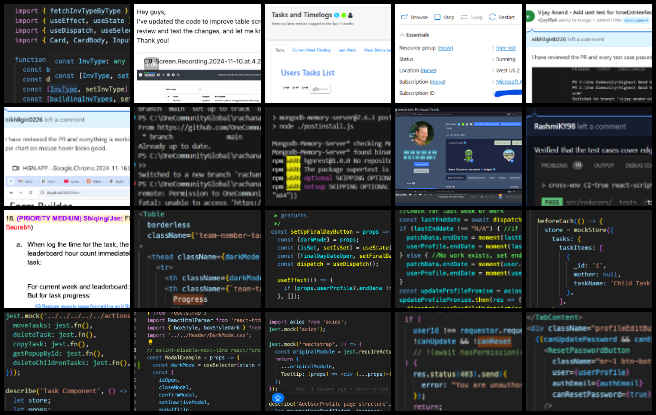
REACTONAUTS SOFTWARE DEVELOPMENT TEAM
Reactonauts’ Team’s summary, covering their work on the Highest Good Network software, was managed by Vijeth Venkatesha (Software Engineer) and includes Dhairya Mehta (Software Engineer), Gmon Kuzhiyanikkal (Software Engineer), Haoyue Wen (Software Engineer), Khushi Jain (PR Team I-N), Mohan Gadde (Software Engineer), Nikhil Pittala (Software Engineer), Pallavi Thorat (PR Team O-Sh), Peterson Rodrigues (Full-Stack MERN Stack Developer), Rishitha Mamidala (Software Engineer), Saniya Farheen (Software Engineer), Sharadha Shivakumar (Software Engineer), and Vikram Badhan (Software Engineer). The Highest Good Network software is how we’ll manage and objectively measure our process for an ongoing path to making no-impact living mainstream through our social architecture, construction, production, and maintenance processes.
This week, team members focused on a range of tasks that contributed to One Community’s ongoing path to making no-impact living mainstream. Dhairya has worked on enhancing the “Find User” function in the Projects section by identifying root issues and developing a sort and search feature to improve user assignments. Gmon completed work on adding active/inactive team numbers on the team page and submitted PR 2850 for review. He began addressing a new task related to bell notifications for task deadlines and encountered a 404 error in the process. Haoyue made significant progress on the FAQ tool and implemented a structured database with search functionality, an admin management page for tracking FAQs, and permissions settings. Khushi updated the Phase 3 document by resolving comments and incorporating feedback. She equally collaborated with Jae and Yash for approvals.
Mohan documented an issue with the project archive functionality, where the interface froze after setting a project to inactive. He indicated a need for further investigation in the ongoing path to making no-impact living mainstream. Nikhil reviewed 12 pull requests across front-end and back-end tasks and performed unit testing to ensure code quality and functionality. Pallavi has submitted a pull request for a previous task and began addressing a bug in the Admin Dashboard’s deadline check-in functionality. She focused on backend interactions to resolve the issue. Peterson enhanced the “Team Code” input with autosave functionality and streamlined the process. He also improved the user experience to enhance the ongoing path to making no-impact living mainstream.
Rishitha completed the active filter for the project page and raised a pull request. She began working on a percentage toggle for the People Report. Saniya implemented changes on a teammate’s dashboard and resolved functionality issues around the ongoing path to making no-impact living mainstream. She continued bug investigations for future updates. Sharadha addressed freezing and visibility issues in the Team Member Tasks section and tested updates across roles and screen modes, while debugging a screen shake issue on smaller displays. Vijeth supported the team by addressing website load time issues and gathered updates in weekly meetings. He resolved ongoing team challenges. See the Highest Good Society and Highest Good Network pages for more on how this relates to the ongoing path to making no-impact living mainstream. Below is a collage of the team’s work.
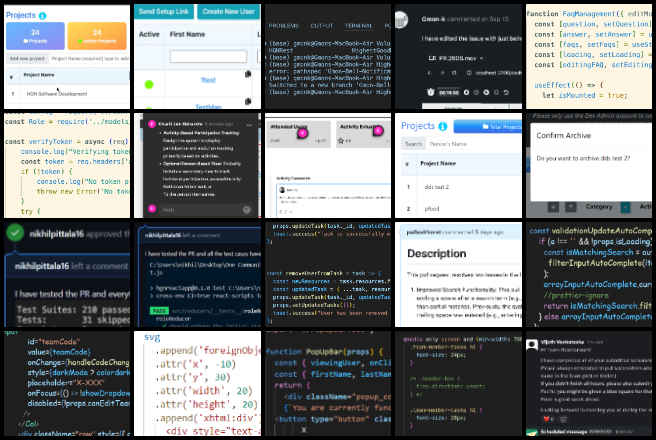
SKYE SOFTWARE DEVELOPMENT TEAM
Skye Team’s summary covering their work on the Highest Good Network was managed by Rishabh Rao (Administrator) and Luis Arevalo (Software Engineer) and the team includes Laura Cohen (Software Engineer), Sai Preetham Dongari (Full Stack Developer), Snehal Dilip Patare (Software Engineer), Yao Wang (Software Engineer) and Zhimin Liang (Full Stack Developer). The Highest Good Network software is how we’ll manage and objectively measure our process creating an ongoing path to making no-impact living mainstream through our social architecture, construction, production, and maintenance processes.
This week, Laura worked on troubleshooting issues with the permission change modal by refining the process for filtering permissions for users and preset roles on an ongoing path to making no-impact living mainstream. She encountered challenges due to incomplete back-end logic for front-end permissions, which led her to explore alternative methods for retrieving and applying permissions for the current user. Yao continued developing a LinkedIn alternative, adding media upload functionality to the front end to support posting media. While addressing a persistent 401 error, he tested the issue using curl and replaced the environment file with a directly embedded token in the backend code, though the error remained unresolved. Snehal created a branch named Snehal_delete_0members_from_project and submitted PR#2862, which faced a failing test due to an issue with the delete button on the member’s page. She also started addressing a User Management bug to fix the table layout and reduce the size of the Role column executing the ongoing path to making no-impact living mainstream.
Zhimin worked on the backend code for her local environment, defining routes to handle requests for scheduling and posting videos, implementing functions for scheduling posts and uploading videos to YouTube, setting up the Express server in the app.js file, and connecting it to MongoDB. She did not complete her hours and plans to begin working on frontend code locally. Sai Preetham addressed a name alignment and truncation issue in the ongoing path to making no-impact living mainstream; summarybar.jsx and summarybar.css files as part of the HGN Software Development project. He implemented code changes, tested various scenarios, raised a Pull Request (PR) with descriptions and reproduction steps, reviewed PR suggestions for previous assignments, searched for new tasks, awaited feedback from Jae on ongoing items, and completed updates related to the weekly summary and Dropbox tasks.
Luis worked on creating new warnings and addressed issues with the route for fetching special warnings, which was not functioning correctly or returning the appropriate warnings. After debugging, he was able to complete and post new warnings triggered by the buttons in the ongoing path to making no-impact living mainstream model. He plans to finalize the functionality of the remaining button, ensuring both buttons work as intended. Additionally, he ensured that clicking the button displayed the modal, replicating the behavior of issuing a warning when a user received more than three warnings. See the Highest Good Society and the Highest Good Network pages to learn more about how their work contributes to the ongoing path to making no-impact living mainstream. See below for some of the work done by the group.
SOFTWARE PR REVIEW TEAM A-K
The PR Review Team’s summaries for team members’ names starting with A-K and covering their work on the Highest Good Network software were managed by Anoushka Hazari (Data Analyst) to achieve the ongoing path to making no-impact living mainstream. The Highest Good Network software is a foundation of what we’ll be using to measure our results for the ongoing path to making no-impact living mainstream. This week’s active members of this team were: Abdelmounaim Lallouache (Software Developer), Anjineyulu Annavarapu (Software Developer), Audrey Trinh (Software Engineer Intern) and Carl Bebli (Software Engineer). They reviewed all the Highest Good Network PRs (Pull Requests) shared in this week’s update. Learn more about how the Highest Good Network will measure and assist in the ongoing path to making no-impact living mainstream in the Highest Good Network open source hub. The collage below shows a compilation of the work from this team.
SOFTWARE PR REVIEW TEAM L-Sg
The PR Review Team’s summary for team members’ names starting with L-Sg and covering their work on the Highest Good Network software was managed by Saumit Chinchkhandi (Administrative Assistant and Software Engineer). The Highest Good Network software is a foundation of what we’ll be using to measure our results of the ongoing path to making no-impact living mainstream. This week’s active members of this team were: Nahiyan Ahmed (Full Stack Software Developer), Nathan Hoffman (Software Engineer), Pratyush Prasanna Sahu (Software Engineer) and Samarth Bhadane (Software Engineer). They reviewed all the Highest Good Network PRs (Pull Requests) shared in this week’s update. Learn more about how the Highest Good Network measures and assists in the ongoing path to making no-impact living mainstream in the Highest Good Network open source hub. The collage below shows a compilation of the work from this team.
SOFTWARE PR REVIEW TEAM Sh-Z
The PR Review Team’s summary for team members’ names starting with Sh-Z and covering their work on the Highest Good Network software was managed by Olawunmi “Ola” Ijisesan (Administrative and Management Support) and Samarth Urs (Administrative Assistant and Data Analyst). The Highest Good Network software is a foundation of what we’ll be using to measure our results of an ongoing path to making no-impact living mainstream. This week’s active members of this team were: Sujith Reddy Sudini (Mern Stack Developer, Full Stack Developer, Software Developer), Neeharika Koniki (Software Engineer, Developer), and Yiyun Tan (Software Engineer). They reviewed all the Highest Good Network PRs (Pull Requests) shared in this week’s update. Learn more about how the Highest Good Network will measure and assist in the ongoing path to making no-impact living mainstream in the Highest Good Network open source hub. The collage below shows a compilation of the work from this team.
AND WE PRODUCED THIS WEEKLY UPDATES BLOG – CLICK HERE TO SUBSCRIBE
FOLLOW ONE COMMUNITY’S PROGRESS (click icons for our pages)
INVESTOR PAGES
 One Community
One Community